List of Documentary Movie Reviews
(For optimum viewing, adjust the zoom level of your browser to 125%.)
21 Up (1977)
Rate:
3
Viewed:
6/14

6/14:
21 Up is more of the same from 7 Plus Seven: repeated footage,
mundane interviews, and dearth of profound insights.
Among the interviewees, Bruce Balden comes across as the most bizarre and awkward. When Symon was asked for
his strengths and weaknesses, I wish he would point-blank say, "Well, I am dumb."
Meanwhile, I suspect several others having a drug problem which may be revealed in later installments...if they
do ever open up. Also, because a great many seem to suffer from poor diets, their skin appearance and hair are
ghastly and/or have lost the luster.
A criticism I have with the entire Up series is I only get to see a snapshot of the interviewees' frame of
mind at that particular time, but there's zero explanation of why or how they've become who they are after seven
years. If they can explain themselves, then it'll be easy for me to understand.
Another is I, just like the last time, have no clue what it is the hell they're talking about. The three preppy
boys are full of themselves by riding on the coattails of conceit. Their vocabulary range is
limited which is littered with "sort of," "quite," "really," and "anyway."
Notice how each installment ends the same way: "Give me a child until he is seven and I will give you
the man. This has been a glimpse of Britain's future." I'll like to remedy it to "Give me a happy child until
he is seven and I will give you the depressed man. This has been a glimpse of Britain's bleak future."
All in all, I think the aforementioned problems have a lot to do with living in England where it rains
frequently and everybody is taxed heavily to cover the royal family's lavish lifestyle.
28 Up (1984)
Rate:
9
Viewed:
6/14

6/14:
28 Up is a dramatic improvement over the last two installments.
It's refreshing to see how most of everybody have grown up and look mature. However, the three snotty
prep boys are still full of themselves. Unsurprisingly, two of them refused to appear in this. Oh, come on,
John...I wanted to hear your superior pearls of flaunty wisdom about a wealth of topics.
I understand Neil the most given his lack of motivation in life. He seems to have overanalyzed the meaning of
life although he's an intelligent person who's highly capable of success by putting his mind into it. That's
why, in contrast, Tony, Symon, and Paul are able to lead fulfilling lives because they don't have to think too
much on a daily basis.
As for Symon, I'm annoyed by the interviewer's intrusive questions because it's been clear he found Symon's
perspective of life disappointing. The joint interview with three women, who look considerably aged by at
least fifteen years, is strange to listen to. I wonder if there's a hidden, subtle message going on, or maybe
they're too English to say: "Our lives suck." If that's the case, they should announce it already. What's
nice about this installment is, instead of the same repeated footage, there are new ones.
All in all, 28 Up is much better.
35 Up (1991)
Rate:
3
Viewed:
6/14

6/14:
Oh, how tired I am of the repeated footage that has become uh...overwhelming.
To steal Symon's words, my mind is going dead. At this point, I've memorized each of the participants' quotes
when they were 7, 14, 21, and 28. And if I hear "greens" one more time, I will hit somebody with a saucepan.
Ah, John...how nice. He decides to be the shameless humanitarian by coming back to bring attention to the plight
of Bulgaria. So, pray tell me...is this a ploy for a lordship or a knighthood? As for everybody else, save for
Neil, they've immersed themselves nicely into their plastic, mundane, and boring lives. Hence, I feel ready to
give up because there's nothing much to discover.
All in all, who cares about the Up series?
42 Up (1998)
Rate:
2
Viewed:
6/14

6/14:
Well, there's nothing new going on with most participants in 42 Up.
The biggest reason why everybody is very reserved is that they don't see the need to reveal anything about
themselves to the public, hence the bland gists of their lives.
But at least, good going for Bruce and Neil. They've turned out well. Bruce is truly a role model and an
example for all. Of course, as expected, John is too good of an aristocrat to appear in this installment. I'll
miss his pearls of arrogant widsom.
Andrew finally shows his true colors by coming full circle and is what I thought from the get-go:
an asshole. At least, he can be proud for shagging a "Yorkshire lass," whatever the fuck that means.
All in all, 42 Up is a waste of my time.
49 Up (2005)
Rate:
2
Viewed:
6/14

6/14:
Once again, there's nothing new to learn from 49 Up.
Everybody is going through the motions and remains guarded as usual, having become full-fledged stiffs. The
interview with Jackie, a name I hadn't cared to learn until now, is awkward to listen to. John comes back for
this one and is still the same seven-year-old twit.
Suzy is one of the few whom I haven't commented in my past reviews because she always reveals nothing; in fact,
her interviews should be limited to thirty seconds for each installment since what's there to talk about? She's
monotonously the same every single time.
Then, the strangest thing happened. Suzy got animated about how she was hurt by the feelings that were stirred
up in regard to her past. Well, all I could think of is: "What the fuck is she talking about?" In other words, I
don't know anything about her except she was born into money, is married to Rupert, and has three children.
All in all, 49 Up has left me bored to tears.
56 Up (2012)
Rate:
2
Viewed:
6/14

6/14:
Once again, it's the same as usual in 56 Up.
After surviving eight installments, I've now declared the novel experiment a massive failure. Sure, it's nice
in theory and should've worked out well, but the execution has been piss-poor. The time invested into this series
is also incredible; this is literally forty-nine years in the making.
So, why did it fail? Michael Apted is the problem. He doesn't ask the right questions, present each of the
participants the right way, or know how to interview properly. After forty-nine years of getting to know them,
I honestly have no clue who they are.
So, why do I continue watching despite the negatives? Well, it's their physical changes that I find to be the
most interesting. I guess, at this point, the race is on: who's going to die first? (2016 Author Note:
It turned out to be Lynn the librarian.)
All in all, I don't care about the Up series anymore.
7 Plus Seven (1970)
Rate:
4
Viewed:
6/14

6/14:
There are three things that came to my mind while watching 7 Plus Seven:
1. How depressed the participants are.
2. How full of themselves they sound.
3. How some of them refuse to look directly toward the camera.
I was once 14, but I was never any of that or saw the same behaviors in my peers. So, it must be England after
all? At least, Michael Apted does the smart thing: remind me constantly who's who by showing their faces
when they were seven years old.
All in all, hopefully it'll be better in the next installment.
The '85 Bears (2016)
Rate:
7
Viewed:
9/25

9/25:
Almost every football city wishes to have an '85 Bears of its own, so Chicago is really lucky.
That was the best team ever in NFL history. Think of the 50's Cleveland Browns, the 60's Green Bay Packers,
the 70's Pittsburgh Steelers, the 1972 undefeated Miami Dolphins, the 80's San Francisco 49ers, the 90's Dallas
Cowboys, and Tom Brady's New England Patriots. The '85 Bears would've beaten them all if given the chance.
Why? It begins with the 46 defense that was created by Buddy Ryan. As a result, the Bears allowed 12.4 points
and 258 yards per game with 54 takeaways total. Six defensive players made All-Pro. During the playoffs, they
had two shutouts in three games and outscored its opponents 91 to 10. Remarkably, for the whole season, the
Bears were missing two top defensive players, Al Harris and Todd Bell, due to contract disputes.
The '85 Bears ranges from okay to decent, but it doesn't answer the basic question: what made the team so
great? Instead, the whole thing feels like ESPN wanting to cash in its immortality. Therefore, there
has to be a better documentary than this. Plenty of stuff are missing such as the Super Bowl Shuffle, the
"Bill Swerski's Superfans" skit on Saturday Night Live, and the constant two words to summarize the entire
1985 season: Da Bears.
Here's a good question: was the 46 defense the best ever? That's hard to say. I always point out to the
Philadelphia Eagles defense of 1991 that was also built by Buddy Ryan although he was fired the year before.
The season went in the toilet once Randall Cunningham suffered torn ACL during the first week. Afterwards, they
had no offense at all, so the defense picked up the slack by allowing 15.3 points and 222 yards per game with
48 takeaways total. Almost half of the starting defense made All-Pro.
Remember the "guarantee" that Joe Namath made prior to Super Bowl III and the New York Jets shocked
the Baltimore Colts? He gets some of the credit, but most is due to Buddy Ryan for his 4-3 defense.
Preston Pearson admitted the Colts took the Jets lightly because the AFL was a Mickey
Mouse league, but they were totally unprepared for the defense. How about the Purple People Eaters? That's
Buddy Ryan's work. Therefore, why isn't he in the Hall of Fame?
All in all, real football fans know there's more to the 1985 Chicago Bears than what's shown in
The '85 Bears.
9.79* (2012)
Rate:
7
Viewed:
9/25

9/25:
Ben Johnson versus Carl Lewis...1988 Seoul, Korea...the greatest 100 meters final in Olympics history.
And we know the rest of the story. 9.79* recreates the race and the controversy afterwards, but this
is ESPN. The channel lies, obfuscates the truth, and doesn't tell every side of the story all the time. That's
because it has to play nice with others in order to keep getting the TV deals and any other valuable content,
especially from the NFL.
In truth, Carl Lewis cheated. In 1987, he wore braces (at age 26!) due to taking human growth hormone (HGH),
hence his feminine looks. That's why Carl Lewis looked gay. The USA Track & Field (USATF) [formerly The Athletics
Congress (TAC)] and the United States Olympic Committee (USOC) knew all about it and went to great lengths to
cover up everything because he was a huge cash cow. During the 1988 Olympics trials, Carl Lewis failed three
drug tests for pseudoephedrine, ephedrine, and phenylpropanolamine and should've been banned from competing.
Nearly all sprinters in the 100m finals were tested positive for drugs before or afterwards.
What does that mean? Calvin Smith was probably one of the two clean sprinters at the time and should've won
the gold medal with the silver going to Robson da Silva. That's it. Six out of eight
cheated to make into the 100m final of 1988 Olympics Games. The documentary just won't tell anyone that, so
you're better off reading Richard Moore's
The Dirtiest Race in History: Ben Johnson, Carl Lewis and the 1988 Olympic 100m Final. Carl Lewis
once said, "Who cares I failed drug test?" But the idiot doesn't realize he helped ruin the sport for good along
with Florence Griffith Joyner. Don't get me started with Usain Bolt...what he did is impossible without drugs.
All in all, you may enjoy watching 9.79*, but it's not the full story of what really went down.
Affluenza (1997)
Rate:
9
Viewed:
2/09
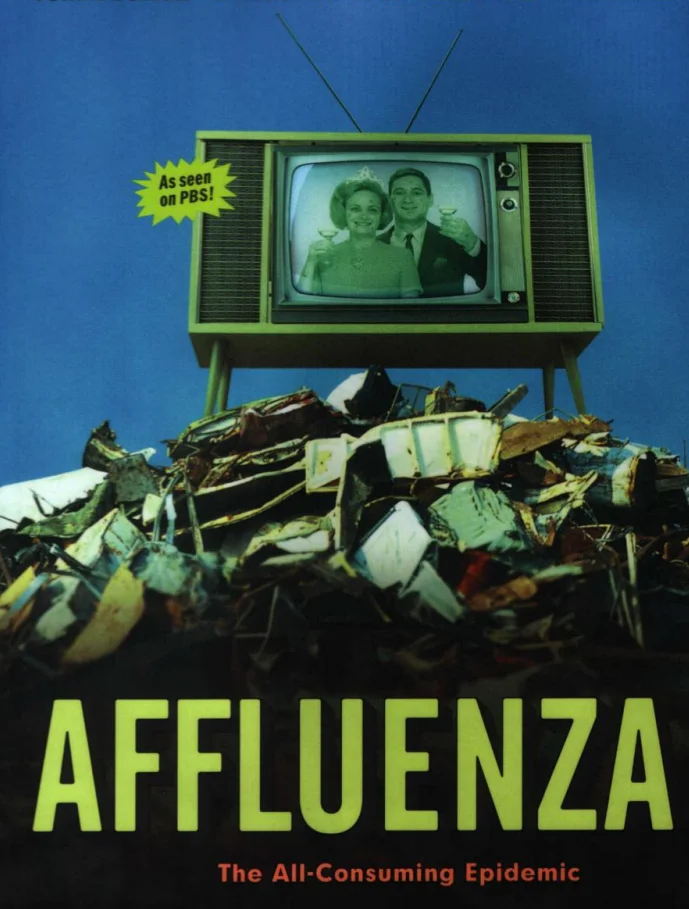
2/09:
I read the book Affluenza some while ago when I was in college and thought it was a brilliant summary of the sorry
state the United States of America is currently in.
Fast track to now, the situation hasn't changed that much. How the film perfectly foresaw the chaos of today. It's why
I keep saying the word "affluenza."
I was thinking of which year it was made in when the producers shot the footage because the presentation seemed
chilling in terms of predicting the problems. At the same time, I thought of a great idea by introducing students the
concept of amortization and letting them watch how the interest on some principal could balloon rapidly.
That's how easy for the credit card companies, realtors, banks, and car dealers to make so much money by taking advantage of the
power of mathematics through interest theory. Therefore, Affluenza is a perfect display of the problem at its face value
although it fails to explain the mathematical side.
I like the ideas of how buying stuff harms the planet we live in and how lucky we are to have one country of its kind,
which is the United States, because having more of them in the world will spell doom for everybody. At the end, a tip is
offered about voluntary simplicity. Unfortunately, I'm not interested in that lifestyle because it's like going back
to 17th century. I'm satisfied with shopping for items, so this way, I won't have to waste my time making them. Hence, it's
the whole point of the Industrial Revolution.
All in all, Affluenza is a great documentary that needs a longer running time.
Aka Charlie Sheen (2025)
Rate:
6
Viewed:
10/25

10/25:
Aka Charlie Sheen is mostly a waste of time.
Out of three long hours, about ten minutes is filled with useful facts. The rest is talk, druggie stories,
and lots of pointless video clips from the past. No depth is ever achieved. Conspicuously absent is Charlie
Sheen's long, long history of violence against women which goes back to the 80's. In one author's book, he
called him "Sperminator."
All of the stuff that went on during the last thirty years for Charlie Sheen, I failed to pay attention.
"Winning"? Ha! It's more like, "Wasting." He completely fell off the map after 1994 by doing no notable films
in the leading man role. Being shown some clips of Two and a Half Men, a TV sitcom I've never watched in
my life, it's low-quality crap with zero comedy.
When I saw Charlie Sheen's face in the documentary, he's almost unrecognizable with a fried brain. I was
even more shocked by Denise Richards' appearance given that she's currently 54. The woman is so ugly that all of
the plastic surgeries have done a number on her face. Brooke Mueller's face (who???) is half-paralyzed
with her nose almost gone. If there's anyone I want to laugh at, it's Sean Penn as the pseudo-poet. What
a fucking joke he is.
Anyway, a few things I didn't expect to hear are Charlie Sheen addressing the long-standing accusations that he
raped Corey Haim during the filming of Lucas, confessing to be diagnosed as
HIV-positive, and admitting to having sex with men. The first part, I don't feel he did it. Also, Corey
Feldman's credibility is 100% shot, and he's a proven liar. It's more likely Dominick Brascia of
Friday the 13th Part V: A New Beginning or another guy who did.
All in all, if there's anybody who can provide the answers that will instantly explain everything about
Charlie Sheen's downfall, it's Martin Sheen and Emilio Estevez, but they refused to participate in
Aka Charlie Sheen.
Alien Autopsy: (Fact or Fiction?) (1995)
Rate:
6
Viewed:
6/23

6/23:
I came across this documentary by learning about it in Cyril H. Wecht's book Grave Secrets: Leading Forensic
Expert Reveals Startling Truth About O.J. Simpson, David Koresh, Vincent Foster, and Other Sensational Cases.
A news team at Fox obtained a rare 17-minute video of an alien autopsy that's supposedly shot in 1947, and they
asked Wecht, a famed forensic pathologist, to judge its authenticity. He concluded the whole thing was a clever
hoax. Even special effects makeup artist Stan Winston had to say so although he wished to learn how they did it.
It turned out the video was a complete fake, having been done recently in London. So, there you have it:
everybody got fooled in 1995. Oh, yeah...the whole UFO bullshit thing in New Mexico? It was a
nuclear-test surveillance balloon as part of a highly classified project (Project Mogul) although the
military's cover story was a weather balloon to mislead the public on purpose because of the ongoing Cold War with
the Russians. After the 1947 incident, everybody forgot about it until the 70's that revived the whole thing in a
big way which explains how we got to this point.
The camera work is atrocious: always moving and sometimes out of focus at critical moments with terrible actors for
doctors. One reviewer said, "Twenty years ago I was a Motion Picture Specialist in the US Marine Corps. There are
rules for documenting high profile and secret events and situations. Specifically you lock your camera down on a
tripod with the best angle of view to the subject as possible. You hold the shot and always work toward clarity."
Exactly...just check out any of the old footage during WWII.
Anyway, have fun visiting Roswell, New Mexico, a huge tourist trap if there's one. All you will see is stores
selling useless alien crap. Those who believe in this stuff are profoundly gullible. By the way, Roswell isn't
where it happened but 80 miles northwest (near Corona which is between Kirtland and Fort Summer).
All in all, you've got to love these people putting up a straight face while telling rubbish on
Alien Autopsy: (Fact or Fiction?) with heavy drama that's supplied by Jonathan Frakes.
And the Oscar Goes To... (2014)
Rate:
7
Viewed:
12/16
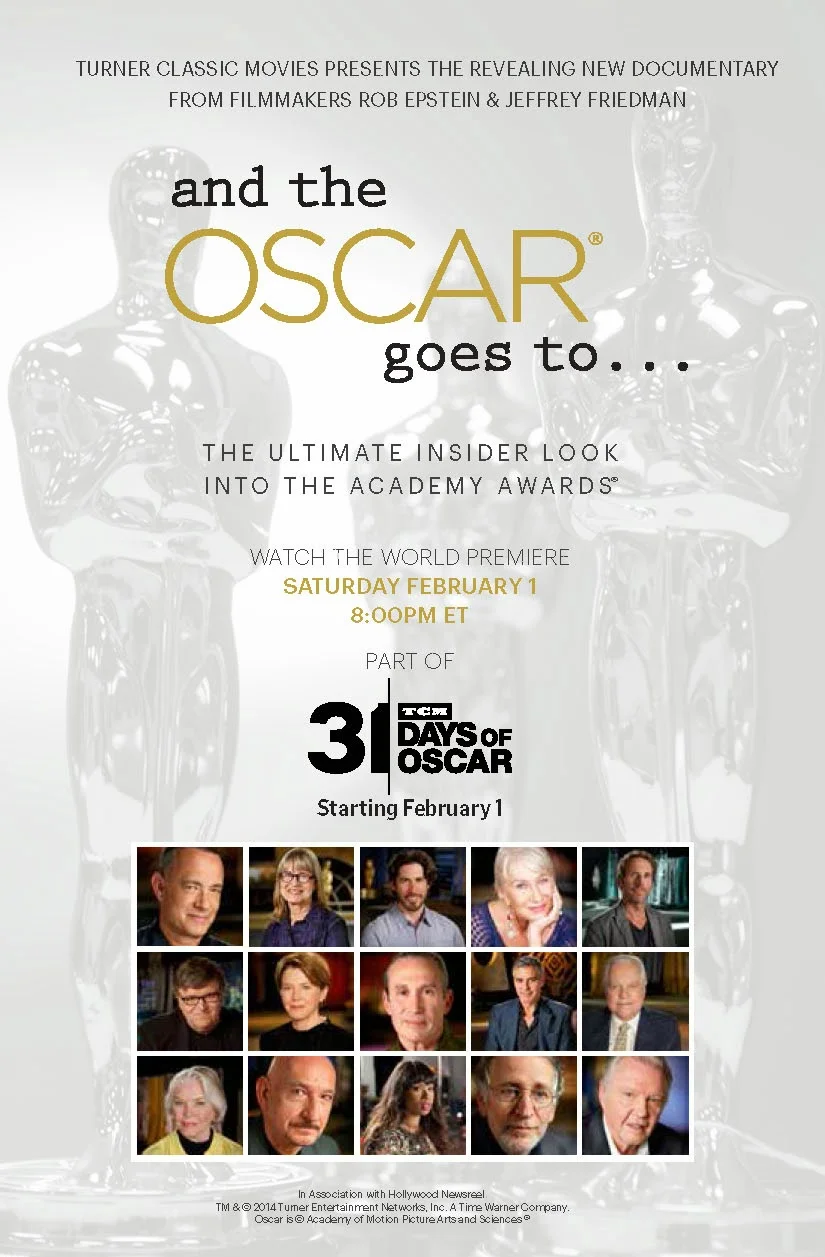
12/16:
And the Oscar Goes To... brings back a lot of memories, and there are clips of many films that are nice to see.
However, I wish they're confined to movies that are at least twenty years old. The recent stuff is the reason
why the Oscars aren't the same anymore because the quality of cinema has gone down big time the last fifteen years.
Another negative is the absence of several famous moments such as what happened with Jack Palance, Cuba Gooding, Jr., and
Louise Fletcher. When Marlon Brando's Oscar win for On the Waterfront was shown,
it looks chopped up. His acceptance
speech was short but special that should have set an example for future winners of how to get it right.
The most spontaneous moment ever in Oscars history is Roberto Benigni's walk over the chairs. It's, once again,
garbled in the documentary. Worse, the dark side of the Academy Awards isn't presented as there were campaigns
by stars to drum up voter support for the coveted award. A good example is Humphrey Bogart's completely
undeserved win for The African Queen over Marlon Brando of
A Streetcar Named Desire.
Another infamous incident is the snub of Hoop Dreams for Best Documentary in 1995. Anyone
who has seen the basketball documentary knows it was a definite Oscar winner. From IMDb:
"According to Roger Ebert, after the film failed to receive an Oscar nomination for Best Documentary, he and Gene Siskel
learned about the nominating process. He said that members of the Academy's documentary committee held flashlights when they
watched documentaries, and anyone who had 'given up' could wave it against the screen. The movie was turned off if a majority
waved their flashlights. Hoop Dreams (1994) was turned off after 15 minutes."
Really? 15 minutes? Is it because everybody in the documentary was black? Here's another one:
"When the film failed to be nominated for Best Documentary, even though it was nominated for Best Film Editing,
Entertainment Weekly ran a story about how the Academy of Motion Picture Arts and Sciences selected
documentary nominations. Most of the voting members were not documentary filmmakers, and many worked against
nominating the film. As a result, the rules were changed to allow documentary filmmakers to vote in that category."
Now, you know why the awards show is a joke today. Many Oscar-worthy performances and films have gone unnoticed in the
past while there are scores of undeserving Oscar winners. The main reason is politics. An example of what I'm talking about
is Sean Penn's Best Actor win for Milk over The Wrestler's Mickey Rourke because
the former was heavily connected while the latter had burned bridges with so many.
Elsewhere, there's too much of Jane Fonda (ugh!), Helen Mirren, Tom Hanks, Steven Spielberg, Cher, etc. This is as liberal
as it gets. Why can't they get more famous people to drop a line or two to keep the documentary balanced as much
as possible? Am I correct to say there are almost no black, Hispanic, or Asian commentators in this? There you go: racism has
always played a huge part in the Academy of Motion Picture Arts and Sciences. Here's a pop quiz: name a black movie that won
Best Picture during the 20th century. You can't because there isn't any. Nope, it wasn't
The Color Purple which got robbed big time, winning exactly zero out of eleven nominations.
All in all, although worth watching for nostalgia, And the Oscar Goes To... is a one-sided documentary.
Athlete A (2020)
Rate:
9
Viewed:
4/23
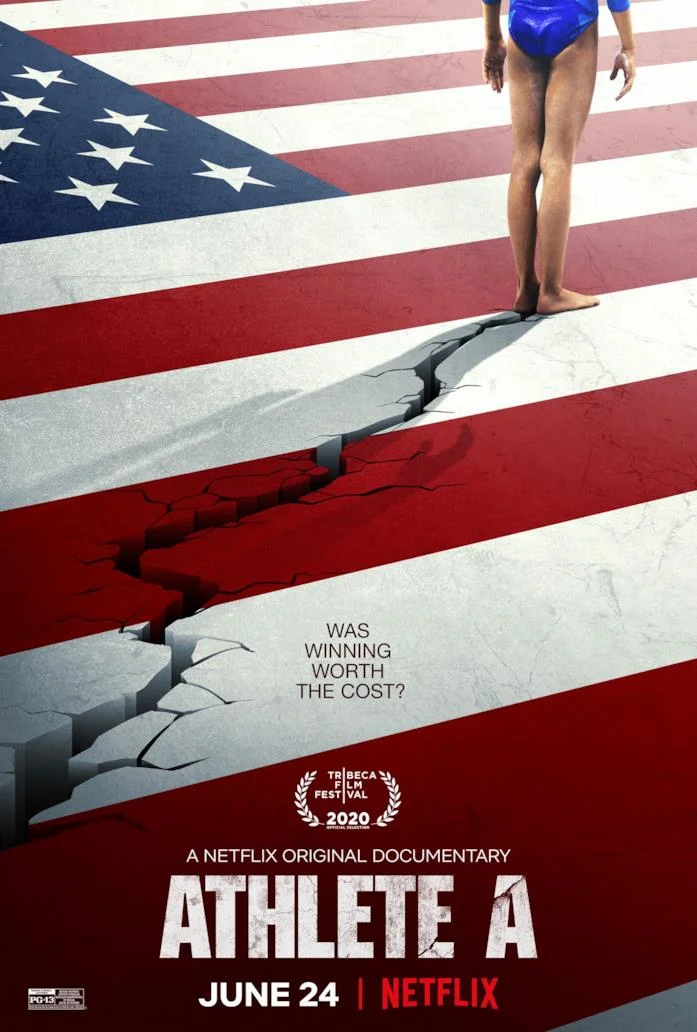
4/23:
Athlete A is a solid documentary that details the sex abuse among female gymnastics at the hands of team doctor Larry
Nassar while USA Gymnastics did nothing about it.
When the news first broke in 2016, I didn't care. Moreover, I wasn't moved when it was revealed over 500 female
gymnasts were sexually abused. My thought at the time is exactly the same as today, even after completing Athlete A:
it's all about being on the Olympics team and nothing else matters.
That's why the sex abuse lasted for so long. These females put up with it because they only cared about making the
team. It's like an actress putting her career on a pedestal for so long, even for decades; by the time the Hollywood
offers have finally dried up, she decides the next course of action is to get back at the abusers. Think about it: what if
her career worked out, would she still have said anything? Of course not. Hence, there's no sympathy from me.
If the female victims actually cared what's happening to them, they would've reported it immediately. Of course, this means
giving up everything they worked for. No Olympics, no sponsorships, no money, no nothing...it's back to their shitty
life with nothing much going on. That's why they put up with the sex abuse; it's simple as that. By the way, the
makeup job on the females, gymnasts or not, are horrendous.
All in all, if you missed the story about the USA Gymnastics sex abuse scandal and are at least a bit curious,
Athlete A will get you speeded up.
The Battle Over Citizen Kane (1996)
Rate:
8
Viewed:
12/15

12/15:
The Battle Over Citizen Kane is a documentary that tells a story of two giants on a collision course
against each other to test their gigantic egos: Orson Welles and William Randolph Hearst.
The former emerged as the winner although he would pay the price dearly while the latter faded away in history
like sand in the wind. Anybody who has seen plenty of cinema knows
Citizen Kane is genius: an encyclopedia of camera tricks that are
impossible to duplicate.
The documentary explains how the film came to fruition and the controversy it generated. The more you learn
about the backstory, the easier it is to appreciate Citizen Kane.
All in all, The Battle Over Citizen Kane is an important historical documentary.
Beyond the Mat (1999)
Rate:
7
Viewed:
2/20
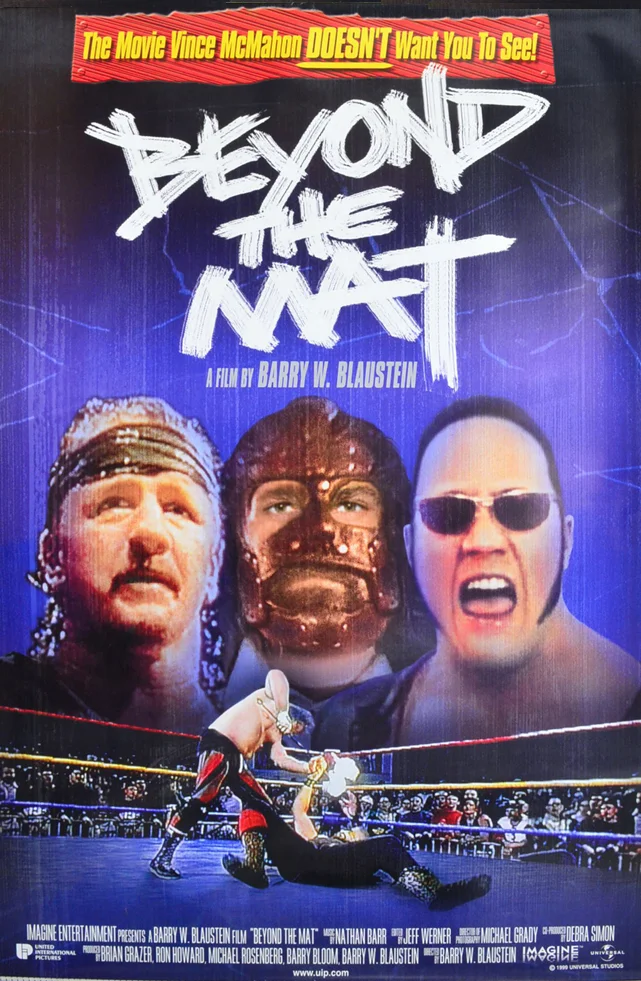
2/20:
What do these famous wrestlers have in common: Big Boss Man, Mr. Perfect, André the Giant, The British Bulldog,
Road Warrior Hawk, Bam Bam Bigelow, Crush, Owen Hart, and Yokozuna?
They all died in their 30's and 40's. So have many more such as The Ultimate Warrior, "Macho Man" Randy Savage, Rowdy Roddy
Piper, and Jim Neidhart which happened when they were in their 50's and 60's. Early on, it used to be shocking because I
remember them being muscular and in top shape; they were also bigger than the American Gladiators. Now, it's a
common fact of the profession.
All of them did it daily to put on a show for years and years. That's a lot of wear and tear on their bodies. To null the
pain, they would partake of drugs and alcohol on top of anabolic steroids and other performance-enhancing drugs. Eventually,
the heart gives out if the other organs first don't.
All of that is captured in Beyond the Mat with various wrestlers, most notably Terry Funk and Jake "The Snake"
Roberts. Oblivious of what they went through, I watched only WWF (which was later changed to WWE after losing the
lawsuit to World Wildlife Fund) from mid 80's to mid 90's, so I wasn't familiar with The Rock, Chyna (who died in 2016),
and Mankind (who retired the following year). The master of puking, Darren Drozdov is also featured, but he'll be paralyzed
a few weeks after the end of filming. (2024 Author Note: he died in 2023 at age 54.)
As revealing as the documentary is, it sadly doesn't cover more wrestlers which is understandable because of the
bad publicity just like the eye-opening book Pros and Cons: The Criminals Who Play in the NFL. To
this day, nothing has changed: just different faces but same shit. The only way to remedy the situation is to boycott
the product; otherwise, they'll keep wrestling and dying young.
All in all, if The Wrestler felt untruthful, Beyond the Mat will make it a reality.
The Big One (1997)
Rate:
9
Viewed:
3/15
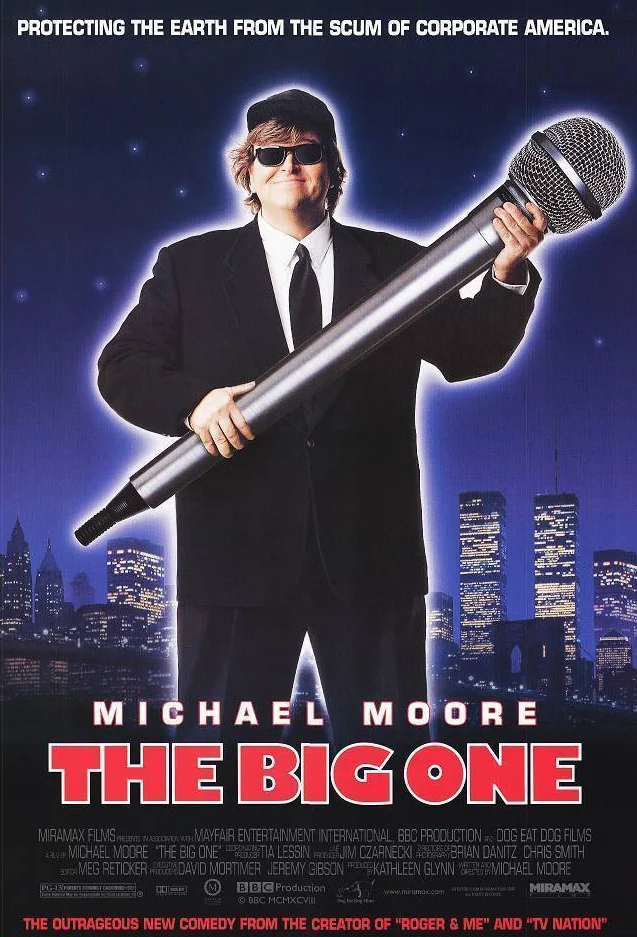
3/15:
At the start of The Big One, Michael Moore recalled a story of the following ingenious prank he pulled
once upon a time:
Under the names of Hemp Growers of America, Abortionists for Buchanan, Satan Worshippers for Dole Club, and
Pedophiles for Free Trade, Michael Moore respectively sent $100 checks to each of the presidential nominees:
Bill Clinton, Pat Buchanan, Bob Dole, and Ross Perot. The first two were cashed. He tried again by sending
a $75 check to Pat Buchanan, and this time, it was from the John Wayne Gacy Fan Club. Again, it was cashed.
Michael Moore concluded his tale by saying, "Oh, we live in sick times. Sick, sick times."
Anyway, The Big One is a humorous satire about what's wrong with politicians and the machinations of
Corporate America although it feels more of the same from Roger & Me. No
matter how often Michael Moore points out the funny ironies, I don't feel he accomplished anything. Maybe
that's the whole problem.
Let me put this in another way for a twist: what would Michael Moore do differently if he were the CEO? For example,
he was begging Nike's Phil Knight to build a factory in Flint, Michigan, but Phil never budged. Therefore, what
could Michael Moore do? At the end of the day, home awaits him, but the people who had been laid off and were
without a steady income will get up the next day to look for work.
At least, compared to Roger & Me, Michael Moore gives a lengthy
explanation of why corporations are outsourcing jobs and displays the profit margins to show how the economy
works. Anyway, if it's of any solace, Borders went out of business in 2011 which is no surprise considering
how expensive it was to shop there.
All in all, by the time you finish reading this review of The Big One, Steve Forbes still hasn't blinked.
Bigger, Stronger, Faster* (2008)
Rate:
9
Viewed:
3/10

3/10:
I love how Bigger, Stronger, Faster* started off with clips of familiar images from the 80's, giving
people an impression of what the muscle craze was all about.
Fast forward to now, the image has been ubiquitous in sports, magazines, and the internet, yet it's unrealistic
and unattainable. Hence, the answer to the paradox is anabolic steroids, among other performance-enhancing drugs.
Of course, everybody who's been warned by the dangers of injecting steroids can quickly conjure up the sad
image of Lyle Alzado who failed to walk under his own power before seating himself for the interview.
It was the defining moment of "if I do anabolic steroids, I'll become like him." Years later, Jose Canseco
wrote a groundbreaking tell-all book Juiced which shattered some myths including Lyle Alzado who had
died of causes that weren't directly linked to anabolic steroids.
So, does it mean they're safe after all? I don't know, but there's one thing that's for sure: steroids are wrong.
They destroy the concept of fair play. The whole thing pretty much started with Mark McGwire and Sammy Sosa
during their record-breaking home run chase in 1998. Fun at first, what they ultimately did was to ruin the
game of baseball. It became the beginning of the end for sports in general.
Today, professional athletes are no longer trusted, and their individual achievements are forever in question.
The issue, of course, trickles down to college and then to high school and youth sports. Kids are told to play
fair and not cheat, but they know it's hypocritical because cheating is a surefire way to be on the royal road
of winning and therefore a big payday.
When kids find out the truth for the first time, they feel cheated and harbor a great deal of resentment for the
cheaters who've ruined the game for them. Hence, they have to decide whether to ignore it and continue playing or
quit the game for good.
All in all, Bigger, Stronger, Faster* showcases what's wrong with sports today.
Black Panthers (1968)
Rate:
5
Viewed:
2/22
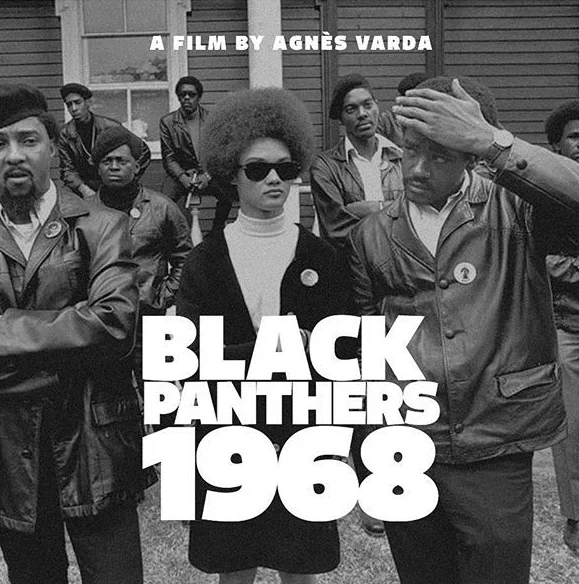
2/22:
Agnès Varda's short documentary Black Panthers provides a rare glimpse of the Black Panther Party.
Unfortunately, it doesn't say much, being completely one-sided in favor of the Black Panther Party. All I heard
is mindless platitudes. What's missing is their absolute love for totalitarians, communists, and mass murderers such as Marx,
Engels, Lenin, Stalin, Mao Zedong, Kim Il-Sung, Ho Chi Minh, Che Guevara, etc. Ultimately, two questions must
be asked: (1) What the heck happened to the Black Panther Party?; and (2) Were they a terrorist group?
To this day, it's impossible find a book on the Black Panther Party that isn't a hagiography, so I'm going with the FBI's
description: "The Black Panther Party (BPP) is a black extremist organization founded in Oakland, California, in 1966. It
advocated the use of violence and guerilla tactics to overthrow the U.S. government." In other words, it was a terrorist group.
The history of the Black Panther Party has been whitewashed in order to make it look good in retrospect. In fact, when people
hear these words, they think, "Wow...cool!" Defenders always point out two things: the FBI ruined it (which is true but not
the whole reason why) and the party did good through Free Breakfast for Children programs and uh...I think that's it.
What most people don't know is the Black Panther Party were responsible for sixteen murders of law enforcement officers
and many other crimes. They also tortured one of its members over three days under the suspicion of being an informant and
then murdered him. Afterwards, the party quickly fell apart and went on a long decline during the 70's, finally dissolving
in 1982. Its membership consisted of criminals, and one of them went on to co-found the Black Guerilla Family.
There are a lot of reasons why the Black Panther Party fell apart. Among them is, chiefly, the weak, fractured leadership.
Prone to violent temper, co-founder Huey P. Newton abused alcohol, cocaine, heroin, and valium. A longtime convicted
criminal who beat women frequently and may have killed a prostitute, he was found guilty of murdering a law enforcement
officer (his conviction was overturned because of technicalities) and stealing $15,000 in public money that's meant for a
school operated by the Black Panther Party. In 1989, a drug dealer killed Huey P. Newton by shooting him in the head.
The Black Panther Party often talked about their Ten-Point Program. Almost all of them are contradictory, so I'll go
over some:
The first states: "We want freedom. We want power to determine the destiny of our Black Community." That's what Africa is for.
Marcus Garvey tried that, but the plan failed...big time. Sometimes, I think it's a code phrase for the leaders to take control
so they can funnel the money for themselves. To date, I'm not aware of any successful black-majority city or country in the
world. Most, if not all, rank in the bottom 25% of any positive category. Every time I visit a black community that isn't
affluent, I always see steel bars on doors and windows.
The second states: "We want full employment for our people." Thomas Sowell cited evidence to counter that: "For unemployment rates to
reach the massive rates they did (around 40-50% for the lowest-skilled Black working-age men from 1980-2000, compared to 20-25%
among the same demographic from 1940-1960,) there is almost always a problem with the number of jobs available, not simply
how many people want to work." There was a manufacturing boom during the 50's post WWII plus the construction of the interstate
highway, allowing many blacks to escape the Jim Crow South. Then the bust happened, causing dozens of rust belt cities to die
slowly, trapping thousands of blacks.
The sixth states: "We want all black men to be exempt from military service." I have no argument against it, especially
during the Vietnam War. It's true that a lot of poor blacks were sent over there to die for nothing. Yet many continued to
serve afterwards, even when the draft was abolished. The reason is that it's among the best opportunities they can find to make
most of themselves.
The seventh states: "We want an immediate end to police brutality and murder of black people." Yes, it's true that the Oakland
police force during the 60's was corrupt and that Bobby Hutton and Fred Hampton were murdered by the police. Yet the trouble is:
90% of black people kill other black people. Probably less than 1% of all police killings of black people were
intentional. What citizens don't know is the danger that police officers go through daily which requires split-second thinking
and may die in the line of duty as compared to just about every occupation there is.
The eighth states: "We want freedom for all black men held in federal, state, county and city prisons and jails." The truth
is, although I don't know what the statistics were back then, black men currently account for 40% of violent crimes and 50% of
murders in the United States. That's a lot, so...nope. Let's think about it for a bit: 13% of black people comprise the U.S.
total population. Then, it stands to reason they should theoretically commit 13% of all crimes, but it's actually three times greater.
All in all, Black Panthers is another example of misguided people loving the Black Panther Party because it looks
cool and all that.
Blackfish (2013)
Rate:
9
Viewed:
6/21

6/21:
Whenever I heard or saw the name SeaWorld, I thought of negative connotations but didn't know the reasons why
until I saw Blackfish for the first time.
I'll say the documentary explains why I subconsciously hadn't visited zoos, aquariums, circuses, roadside zoos,
and so on for more than two decades despite experiencing them when I was a kid. It's because of one simple fact:
these animals don't belong in a cage or a tank but in the wild. The bigger they are, the more impossible for me
to envision them as happy by going around in circles repeatedly in such a small enclosure.
Sometimes, there are news stories (think of Siegfried & Roy) about a trainer or a performer who was mauled or
killed by a dangerous animal. The best guess I can proffer about why it happened is the animal had been abused
a great deal behind the scenes and then one day just lost it out of frustration.
Nothing in Blackfish surprises me the least bit (okay, okay...it's the appearance of James Earl Jones
that did). In fact, I recently saw the movie Orca, and it's practically the same
thing in terms of how the whole business of capturing killer whales began. The filmmakers might have pasted
logos all over Richard Harris' character as a representative of both SeaLand and SeaWorld.
What bothers me about the interviews with the former employees is they didn't seem to be telling the full truth.
However long these people spent with killer whales, they didn't realize what they were doing was animal abuse?
I would've known that within a week of working there. Possessing no degrees or certifications to begin with,
they must be stupid after all and only got chosen for their looks and ability to entertain crowds.
A few facts that I found interesting are the average lifespan of killer whales in captivity compared to those
in the wild, the abnormal collapse of their dorsal fins, and the definition of a rake. Think about it: if they
swim up to a hundred of miles a day, how big is the water tank holding them at SeaWorld? Incredibly, there were
talks of capacity expansion which got scrapped anyway. I remember this innovative idea failing miserably in
Jaws 3-D.
There are some more that weren't told in the documentary. One, because killer whales swim in shallow pools,
they're sunburned a lot; those in the wild don't because they swim deeply in the ocean to get away from the sun.
Two, when the show is over, killer whales often have to keep going the rest of the day for additional performance
training. Three, as taken from IMDb: "During his time at Seaworld, Tilikum was housed in a tank containing
0.0001% of the quantity of water that he would traverse in a single day in the ocean."
"Conservation" is a popular word used by those who defend using animals for entertainment. Nah, it's only an
excuse to keep their enormous money-making enterprise intact because without them, there's no business. "Research"
is, of course, another popular word, but no...they can observe them just the same in the wild. Besides, what more
is there to know after all?
In the case of SeaWorld, it's a billion-dollar industry that's predicated on animal abuse just like rodeo. Guess
what? SeaWorld contributed less than one percent of its profits to conservation efforts during the past decade.
Being the world-class liar the company is, it doesn't care about animals in general. By the way, Tilikum died in
2017 at age 35 from a fatal form of lung bacteria.
Unlike Michael Moore's films, Blackfish actually produced changes. SeaWorld no longer do shows with killer
whales. The current orcas in captivity will be the last of them as the breeding program has been effectively shut
down. The company got caught in a series of lies, refuting everything in the documentary by blaming the decline
in revenue on other factors, and was forced to make a $65 million settlement which is a chump change to them.
Southwest Airlines broke off its ties with SeaWorld although that came after a lot of pressure from the people.
All in all, Blackfish exposes SeaWorld for what it is: a giant marine animal abuse factory.
Bowling for Columbine (2002)
Rate:
10
Viewed:
7/04, 5/08
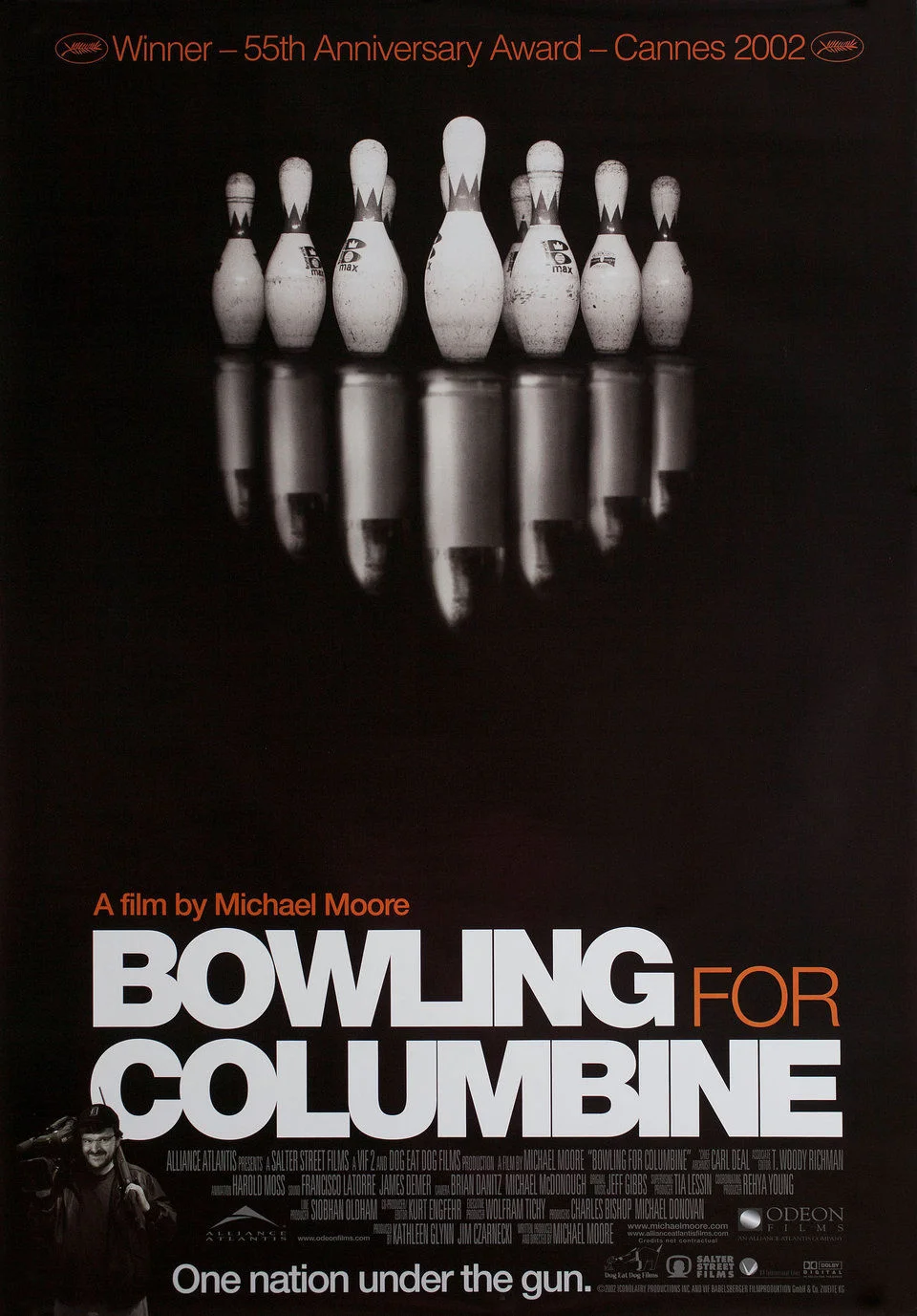
5/08:
I revisited Bowling for Columbine for the second time, and it's still a compelling documentary just like
Roger & Me and Fahrenheit 9/11.
It's impossible to stop the film any time. Dry humor is littered throughout, and hard-to-believe moments come and hit
me. Since Charlton Heston had recently passed away, I've been thinking how his reputation was ruined by his involvement with
the NRA. The way he was ambushed in this leaves me with a sour taste, thinking the scene shouldn't have been included.
Regardless, it's still an outstanding documentary. Michael Moore tackles the issues, despite the fact that he's a member of the
NRA, with an open mind and searches for answers before coming up with none just like the two bikers in
Easy Rider. Hate
him or not, Michael Moore has guts and makes people talk about the issues. Yet nobody does anything.
Why is Canada a better place than the United States? Why does Kmart sell guns and ammunition? Why does the media promote fear? Why are there
so many cover-ups? Why have the corporations escaped unscathed? Are the people afraid of the truth? Why are there many
gun-related deaths? Why is there a prevalence of school shootings? Answers to those questions may seem simple, but
it's been complex and complicated. By the way, here's the transcript of Michael Moore's Academy Award acceptance speech:
"Thank you very much. On behalf of our producers Kathleen Glynn and Michael Donovan from Canada, I'd like to thank the Academy
for this. I've invited my fellow documentary nominees on the stage with us, and we would like to—they are here in
solidarity with me because we like nonfiction. We like nonfiction, and we live in fictitious times.
We live in the time where we have fictitious election results that elects a fictitious president. We live in a time where
we have a man sending us to war for fictitious reasons, whether it's the fictition of duct tape or the fictitious of orange
alerts. We are against this war, Mr. Bush! Shame on you, Mr. Bush! Shame on you! And any time you've got the Pope and the Dixie
Chicks against you, your time is up! Thank you very much."
All in all, Bowling for Columbine is a moving, brilliant piece of work.
Breakin' 'n' Enterin' (1983)
Rate:
10
Viewed:
1/25

1/25:
The purpose of a documentary film is to capture something of the period so people can look back to it in the
future, and that's been the case with Breakin' 'n' Enterin'.
It became interesting enough for Cannon, at the insistence of producer Menahem Golan, to be turned into a feature
length film called Breakin'. Many dancers, most notably Adolfo Quiñones and
Michael Chambers, went on to be part of the cast, and it was a smash hit, being the final financially
successful film in Cannon history before the studio declared bankruptcy.
The most famous person to come out of the documentary is Tracy Marrow who's better known as Ice-T. Believe
it or not, he served in the U.S. Army during the 70's which started his interest in hip hop music, having
become proficient in turntabling and rapping. After he was honorably discharged, he set his sights on
becoming a DJ while committing crimes on the side.
After seeing his friends get arrested and sent to prison, Ice-T decided to give up the criminal life and went
straight by being a full-time rapper. That's how he was a major part of the West Coast breakdancing
scene which led to the two aforementioned films. But Ice-T wasn't nationally known until 1991 when he
released the most controversial album of his career: Body Count, most specifically the song
"Cop Killer."
Back to Breakin' 'n' Enterin', it's quite interesting. A good documentary should explain the origins
of something and how it came to be, and this one has accomplished the task 100%. The rest is filled
with tons of breakdancing in terms of popping, locking, and boogaloo (robotic) style by various performers,
regardless of their color, age, and gender. Not many people know this, but Michael Chambers is the one who
taught Michael Jackson some moves including the moonwalk. Currently, breakdancing is featured in the
Olympics, which is the first dancesport discipline ever to do so, making its debut in 2024.
All in all, if you loved Breakin' and
Breakin' 2: Electric Boogaloo, you must see the
documentary to find out where it all started: Breakin' 'n' Enterin'.
Broke (2012)
Rate:
9
Viewed:
9/25
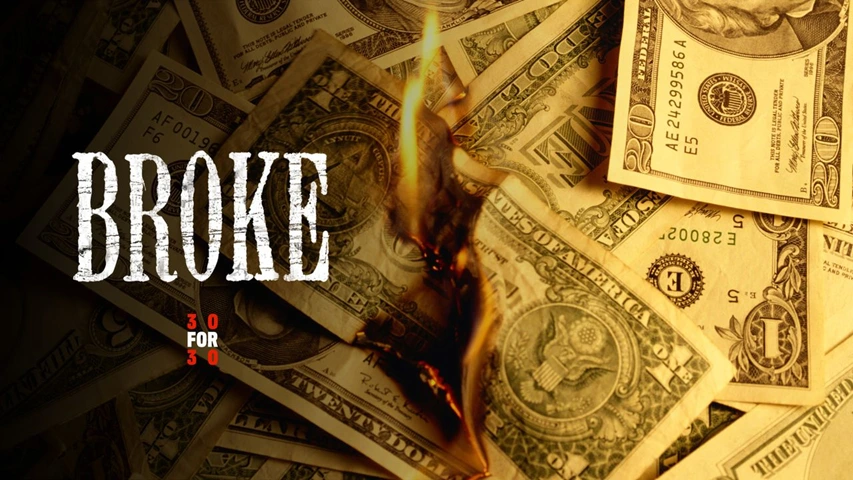
9/25:
When I saw Broke for the first time back in 2012, it was eye-opening.
Earlier, there were articles that came out about former football and basketball players declaring
bankruptcy despite making $xx million of dollars throughout their careers. It didn't make sense to me at the
time, but the documentary pretty much explained everything: the houses, the cars, the bling, the women, the
baby mamas, the large entourage, the gambling, the "investments," the taxes, and so on which added up rather
quickly.
My favorite confessor is Andre "Bad Moon" Rison. In fact, there should've been annual sequels with him being
the host as long as he has the shades on. It'll be like Celebrity Rehab with Dr. Drew. At least, the
upside for the broke players to appear is getting paid, so why not tell stories about their outrageous spending?
Since then, I haven't seen anything new reported. There might be an occasional player going broke but
not en masse. I'm quite sure many of them would be fine afterwards because of their pension, depending on how
long they played in the league, but I don't know about the medical bills though. If there's anybody who
deserves number one in terms of shocking bankruptcies, it's Mike Tyson. What happened to his $400 million
fortune remains mind-boggling like his pet tigers.
All in all, Broke will always be relevant.
Burden of Dreams (1982)
Rate:
4
Viewed:
4/24
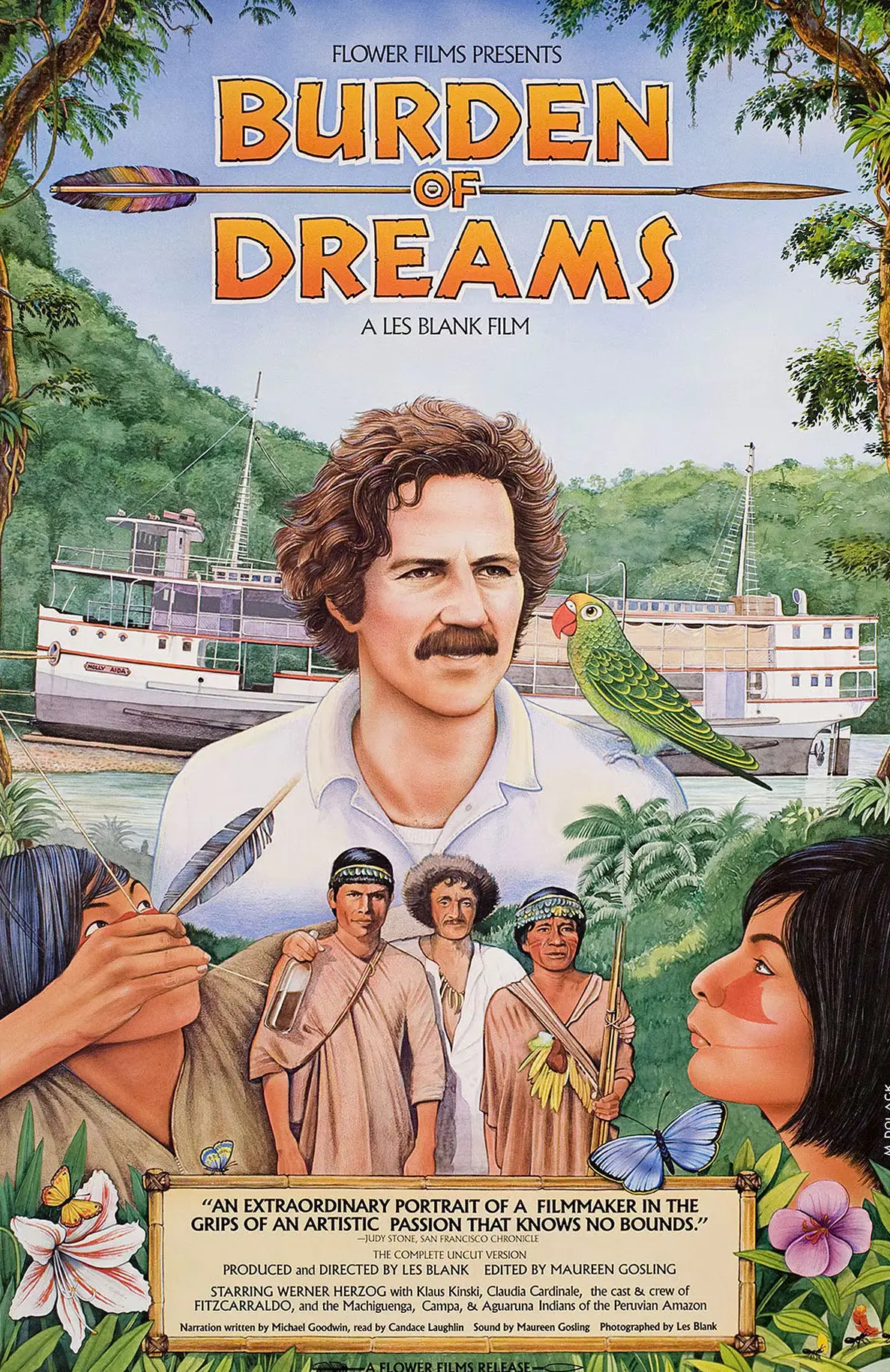
4/24:
Burden of Dreams is a dull, uninsightful documentary about the making of
Fitzcarraldo.
The trouble is that barely much is covered. Instead, it's about director Werner Herzog making deep but silly
comments about the jungle and its natives. Sometimes, he talks about geographical locations of the tribes, their
inter-battles, and whatnots, but he's just showing off because I'm obviously clueless about what goes on down there.
As for the cast, nobody is ever interviewed. I thought I would be hearing a lot about Klaus Kinski given his
disreputation. But nope...not a peep. Claudia Cardinale? Nothing. In fact, she doesn't participate. At least, I
get to see a portion of the original film which starred Jason Robards and Mick Jagger. All I can say is it's a
good thing the former became too sick to continue any further.
All in all, Burden of Dreams isn't on the same level as
Hearts of Darkness: A Filmmaker's Apocalypse.
Capitalism: A Love Story (2009)
Rate:
7
Viewed:
7/16

7/16:
In Capitalism: A Love Story, Michael Moore rehashes the same concepts from his other documentaries, and
the end result remains unchanged: nobody is doing anything about the problem.
This brings up an important question: Why is Michael Moore still making these documentaries? Maybe he's being a
capitalist who cashes in the problems that have plagued Americans for decades. By the way, Michael Moore's net
worth is estimated to be $50 million, and he owns at least 9 houses including a 10,000-square-foot mansion
which is valued at $2 million. So, explain that to me because it reeks of hypocrisy.
If the people want a problem solved, then they should do something about it. If not, then what's
the point of complaining? The economic issues covered in the film have been around for decades,
refusing to go away, because corruption is the main part of it. Yet the world keeps going around and around
as the rich get richer and the poor get poorer.
Is that what capitalism is supposed to be all about? Or are we going to try communism? I'll be impressed if
Michael Moore can finally come up with a documentary to effect a wave of sweeping changes; so far, he hasn't been
able to do that. Why? It's because the Americans are too selfish and busy to be bothered.
All in all, Capitalism: A Love Story is more of the same.
Chisholm '72:
Unbought & Unbossed (2004)
Rate:
3
Viewed:
2/06

2/06:
Chisholm '72: Unbought & Unbossed is a weak, pointless documentary.
I keep hearing about Shirley Chisholm's views, but I know neither what makes her qualified for the presidency
nor what her platform is. Basically, the documentary makes it known that Shirley Chisholm was the first black
woman to make a serious run for the presidency of the United States. Beyond than that, there's nothing else
about her.
Because I read Hunter S. Thompson's Fear and Loathing: On Campaign Trial '72 which covered just about
everything that year, the documentary gave me a chance to catch what the author witnessed in reference to
George McGovern, Edmund Muskie, Mike Wallace, Hubert Humphrey, John Lindsay, and Richard Nixon.
Yet Chisholm '72: Unbought & Unbossed portrays a superficial black woman who spouted loud meaningless
words but stated no clear goals during her campaign. I was like, "Oh. Okay, okay, okay. I got it. Now, what's
your freaking point?", but she doesn't answer it. Hence, that's the summation of Shirley Chisholm, revealing
little of her background, political platform, etc.
All in all, Chisholm '72: Unbought & Unbossed is about a worthless politician.
Cocaine Cowboys (2006)
Rate:
10
Viewed:
10/25

10/25:
Remember Miami Vice?
Cocaine Cowboys explains where it all started in the 70's: Colombia. It's an absorbing documentary that's
chock-full of information. To get more insight into the other side, I recommend
The Two Escobars.
I knew Max Mermelstein had to be part of the picture after reading
WITSEC: Inside the Federal Witness Protection Program. Having an unparalleled access to the Medellín
Cartel for an American, he was the man who tore everything down which allowed Miami to recover from the
cocaine-fueled mess of violence. Before the city was completely transformed by drug money, the best way to see
how it looked like is Tony Rome.
If there's one aspect I'm always surprised by, it's the lenient punishment doled out. How is it that people
like Griselda Blanco and others who were knee-deep in the transportation and sale of illegal drugs getting
off lightly? The former would be assassinated in 2012 while Mickey Munday went to prison in 2018 for auto
fraud-conspiracy and will probably die there. Jon Roberts and his girlfriend passed away in their 60's.
All in all, it's not often a documentary is done right with no bias, and Cocaine Cowboys is among them.
Crumb (1994)
Rate:
9
Viewed:
8/06

8/06:
Crumb is an interesting documentary about an eccentric but intelligent comic artist and the people within his circle.
Sure, some viewers might find it pointless which features dweebs while being envious of several obvious tidbits,
but it's full of wisdom that's refreshing. I get to see some of Robert Crumb's work while hearing the stories about
his two brothers.
All in all, mostly straightforward and never boring, Crumb is funny.
The Decline of
Western Civilization (1981)
Rate:
8
Viewed:
1/20, 3/22

1/20:
The Decline of Western Civilization is an engrossing documentary that captures the Los Angeles punk
music of 1979-80.
Today, we have people, famous and non-famous alike, who are guilty of being pretentious. You'll find nothing of
the sort in this video as it's all about anarchy, punk music, and nonconformity. The featured bands are Alice
Bag Band, Black Flag, Circle Jerks, Catholic Discipline, Fear, Germs, and X, and through them are numerous good
punk rock songs with catchy lyrics.
The shocking part is their intelligence. I looked up the internet to see if any is alive today, and to
my surprise, many are still living. Darby Crash, the second coming of Sid Vicious, died of a heroin overdose at
age 22 in 1980. Exene Cervenka, the singer of X, was married to Viggo Mortensen from 1987 to 1997. Claude Bessy,
aka Kickboy Face, passed away from lung cancer in 1999.
All in all, The Decline of Western Civilization is a nice time capsule of punk rock.
3/22:
To catch up on punk rock, you should start with The Filth and the Fury
and then follow it up with The Decline of Western Civilization; they're both outstanding documentary films.
The Decline of Western Civilization
Part II: The Metal Years (1988)
Rate:
4
Viewed:
2/20
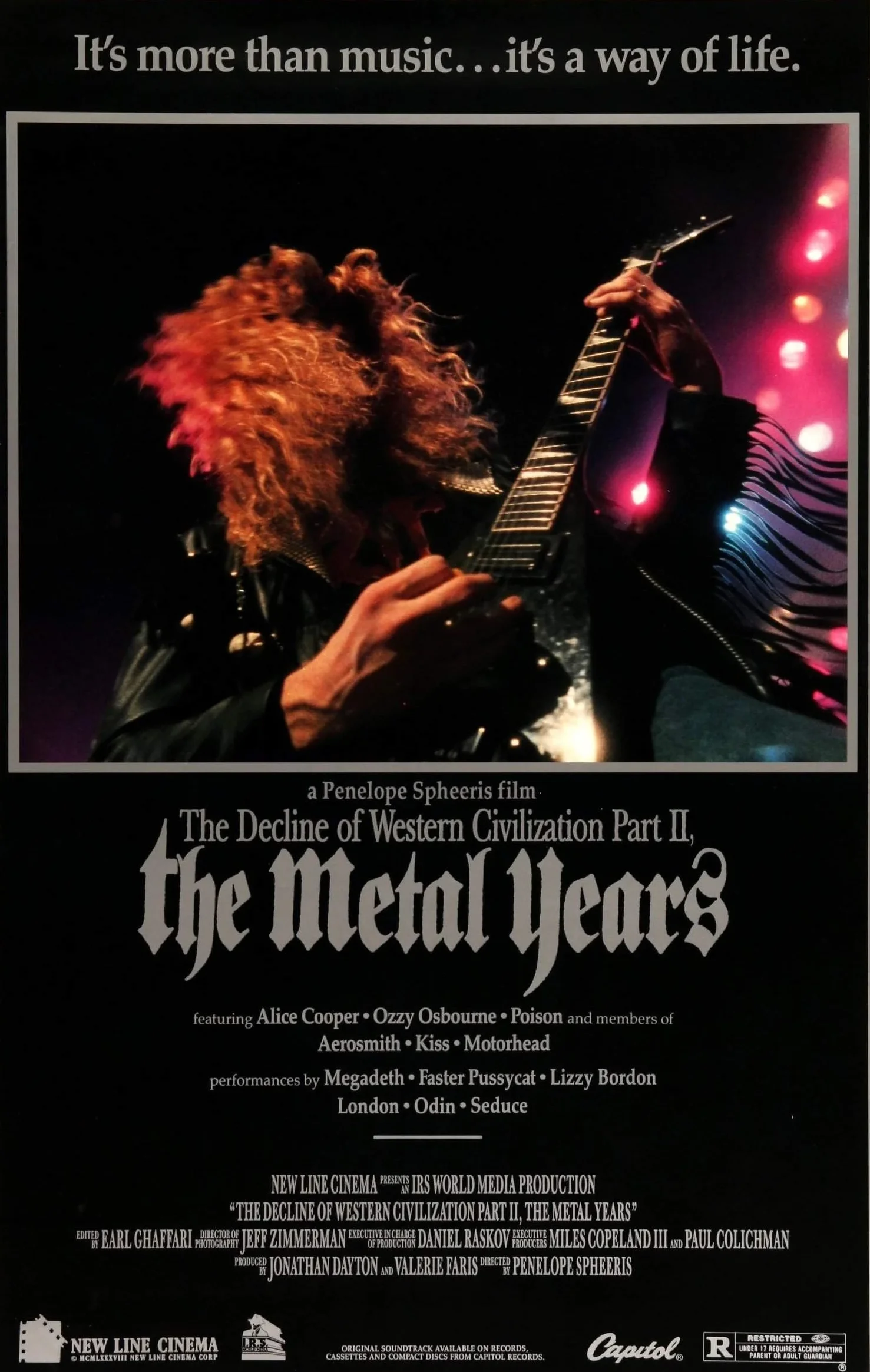
2/20:
Compared to the first part, The Decline of Western Civilization Part II: The Metal Years is a certified
60-point drop on the IQ chart.
Listening to Randy O, I asked myself, "Odin? Odin? Never heard of them." Declaring to be bigger than Led Zepellin
and more famous than The Doors one day, the band became the biggest laughingstock of the rockumentary and thus
disappeared shortly after the end of filming. Gosh, I wouldn't be caught dead in these assless black leather
pants. The members of Spinal Tap had more self-respect.
The documentary doesn't get better with the rest of the interviewees who are often either idiots or nobodies with
too much makeup, being more concerned about their looks than anything else. Hence, glam metal didn't last long,
paving the way for grunge in the 90's.
In part one, the punk rockers spoke well, sounded educated, and played lots of music with catchy lyrics,
but in The Metal Years, what the heck? All they can talk about is getting laid, objectifying women, and
making money. It gets old fast and isn't enlightening. Their music have terrible lyrics with no substance. Some
of the established musicians such as Alice Cooper, Ozzy Osbourne, Lemmy, and Dave Mustaine sound refreshing
for a change, but I can't say the same for the guys from Aerosmith, KISS, and Poison.
I'll like to see David Lee Roth, Axl Rose, Slash, and some of the others from Whitesnake, Iron Maiden, Slayer, and
Metallica making an appearance to spice things up. The most bizarre but worthwhile moment is when Ozzy completely
missed the glass while trying to pour OJ into it. The scene was later revealed to be faked on purpose. At least,
Chris Holmes doesn't disappoint, pouring vodka (really pool water) all over himself while his mother looks on,
and has the most memorable interview, effectively destroying his career for good. If there are any positive news,
Holmes hasn't touched alcohol for over twenty years now.
All in all, The Decline of Western Civilization Part II: The Metal Years is
This Is Spinal Tap comes alive but with tons of excess.
The Decline of Western
Civilization: Part III (1998)
Rate:
7
Viewed:
2/20

2/20:
After an aberration of the last sequel, The Decline of Western Civilization: Part III goes back to the roots
that's laid by the original except this time it's heavily focused on the gutter punk lifestyle.
I'll say it's a strange change of scenery after being used to so much music, but the documentary gradually gets
better after hearing the testimonials from kids living on the streets. It starts becoming ugly and therefore real.
All I can say is: education goes a long way, substance abuse isn't the answer, and some people should never have
kids.
While watching the third installment, I didn't realize Squid was killed by Spoon until the closing credits. Mm,
weird. It turns out she was acquitted of murder by self-defense despite being jealous after walking on Squid,
who was cutting another girl's hair, and then stabbing him with the scissors.
As for others, of what I can find on the internet, Hamburger died of heroin overdose. Sage passed away in
2007. Darius, the black guy in the wheelchair, moved to New Orleans. Troll, Why-Me, Bobo (the boy with a cup on
his jacket), and Eyeball are still alive, but many have been reported dead.
All in all, The Decline of Western Civilization: Part III is odd, but it's been enjoyable.
Do You Believe In Miracles? The Story
of the 1980 U.S. Hockey Team (2001)
Rate:
10
Viewed:
6/07, 2/22

6/07:
Having the misfortune of watching Miracle not a long ago, my memory of
Do You Believe In Miracles? The Story of the 1980 U.S. Hockey Team is destroyed.
It's like watching the remake of Psycho. Yes, I did see it many years ago before I
saw Miracle, and yes, I thought it was an outstanding documentary in every way.
Now, I see some flaws as it doesn't feel fulfilling. Moreover, I'm disappointed that the interviews are
limited to some members of the US hockey team that played in the 1980 Olympics, but I'm impressed with the inclusion of
several members from the Russian team. They give a different perspective of the famous sporting event.
All in all, Do You Believe In Miracles? The Story of the 1980 U.S. Hockey Team is a must-see documentary for all ages
because it's very inspiring stuff.
2/22:
The number one sporting accomplishment in U.S. history is the Americans' defeat of USSR in the 1980 Olympics hockey semifinal
game.
Do You Believe In Miracles? The Story of the 1980 U.S. Hockey Team is a fast one-hour documentary that explains how
they did it. Of course, what everybody forgets easily is the team had one more game left to play in order to secure the gold
medal. During the second intermission of the championship game when they were behind 1-2, Herb Brooks warned
his players: "If you lose this game, you'll take it to your fucking graves...your fucking graves."
The Americans were seeded seventh out of twelve teams, and nobody gave them a chance to medal. Unbelievably, Jim Craig
played 420 minutes, making 163 saves (91.6%) which was twice nearly everybody else. The Soviet hockey
team won gold medals in the last four consecutive Olympiad Games. During the 1980 competition, they outscored opponents in
their round-robin division 51-11 with the outcomes being 16-0, 17-4, 8-1, 4-2, and 6-4.
All in all, if you missed the "Miracle on Ice," Do You Believe In Miracles? The Story of the 1980 U.S. Hockey Team
will help you catch up.
Dogtown and Z-Boys (2001)
Rate:
6
Viewed:
7/05
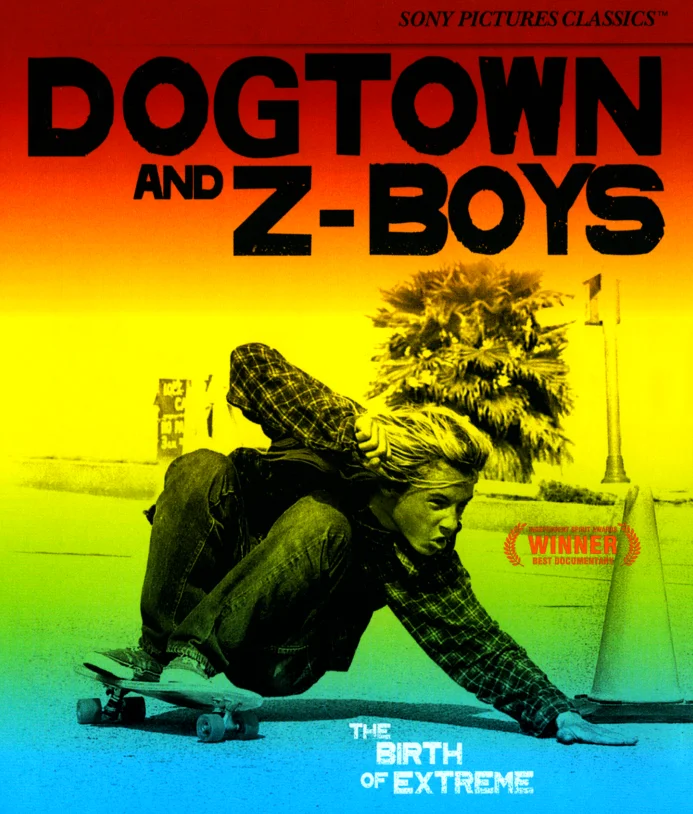
7/05:
Dogtown and Z-Boys isn't a solid documentary, but it offers a provocative insight into the skateboarding subculture
and how it came to be revolutionized by some kids in California.
I like Jay Adams' style the most and have come to respect the picture as shown on right: he going low, looking tough,
with his long hair flowing in the air while his hand is on the pavement. However, the documentary isn't enjoyable
because of the overwhelming hubris.
All in all, Dogtown and Z-Boys is a fascinating piece of skateboarding history.
Elvis: Summer of '56 (2011)
Rate:
8
Viewed:
4/13
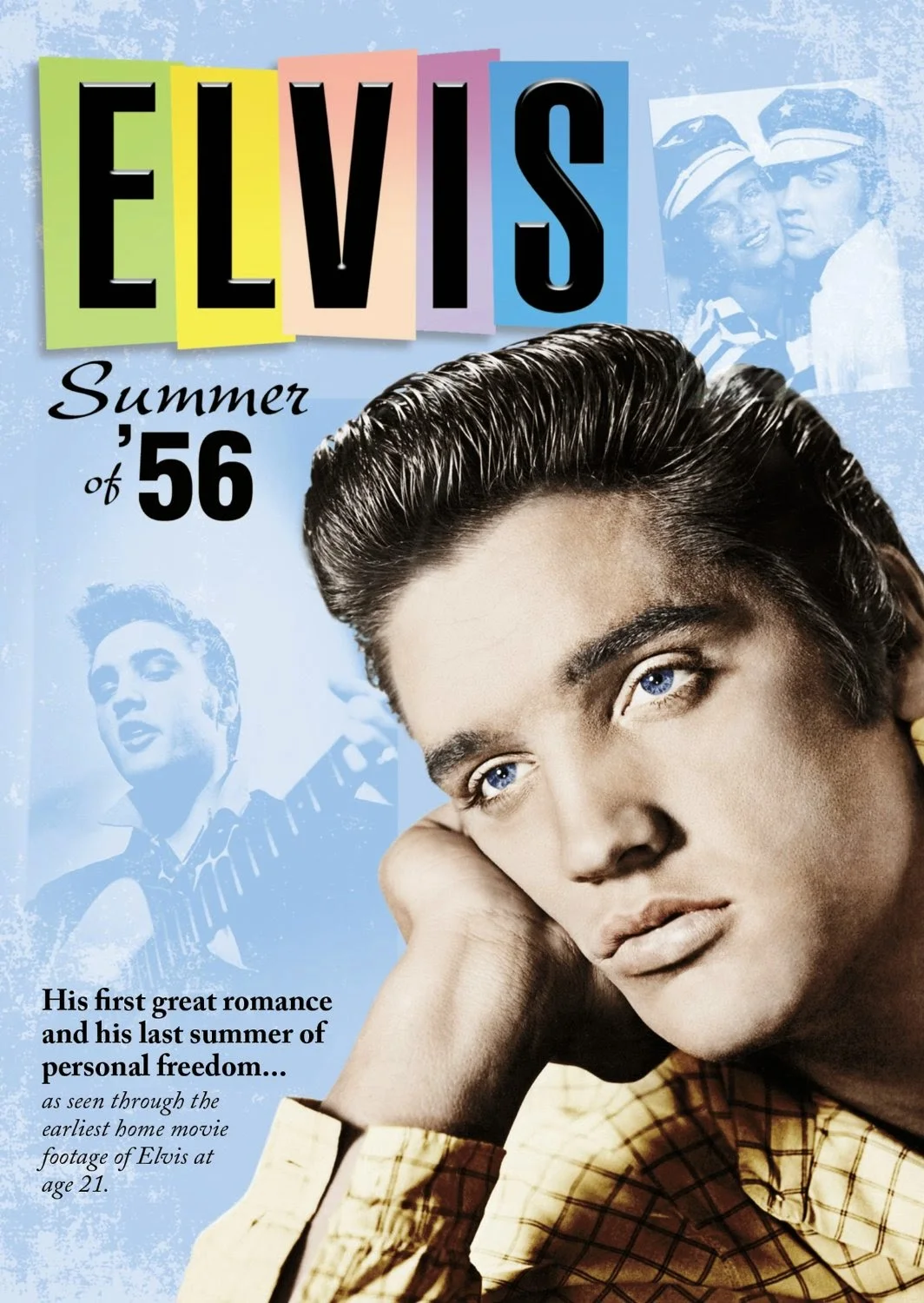
4/13:
Elvis: Summer of '56 tells an interesting story of a local girl from Biloxi, Mississippi, falling in love
with Elvis Presley who was not yet a superstar.
It's among the most fascinating documentaries I've seen. There's plenty of rare never-seen-before color footage of young Elvis
Presley. It's surprising to see how much reel was shot back then to capture his youth.
All in all, Elvis: Summer of '56 is a must-see.
Elvis: That's the Way It Is (1970)
Rate:
10
Viewed:
10/25
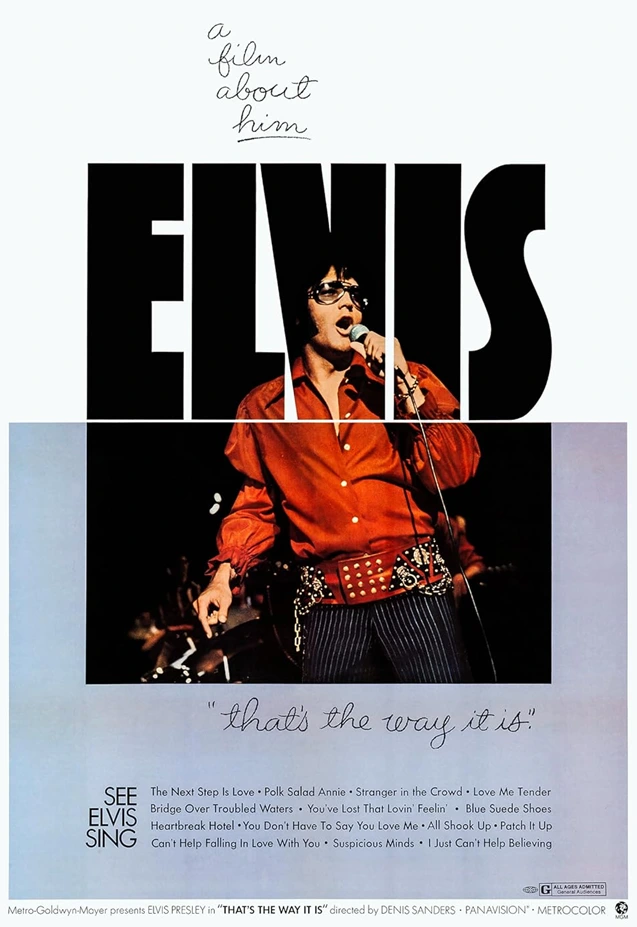
10/25:
I tried to watch Baz Luhrmann's overblown Elvis but gave up after thirty
minutes and wanted to see the real Elvis by going with Elvis: That's the Way It Is.
It's almost as good as the '68 Comeback Special. Elvis Presley used to churn out movie hits during the
50's and the 60's. Then, they became more ridiculous, forcing him to reassess his career, because he had been
increasingly irrelevant. When the '68 Comeback Special premiered, the audience was simply entranced by
him all over again, and that ushered a new phase into his showbiz life: live musical acts in Las Vegas.
While watching prime Elvis perform in Elvis: That's the Way It Is, it's easy to tell that he's a walking
sex symbol who's full of charisma. Going through a diverse collection of iconic and new songs, he plays to the
audience so effortlessly well, and everybody is instantly attracted to him. Throughout it all, the editing
is consistently strong.
If there's a negative, I would've liked to hear Elvis Presley be interviewed, so he could talk about his
achievements while putting his career into perspective. The early footage is interesting because it proves that
he had an ear for music. He knew what sounded right and what needed to be fixed; then, the changes were made,
and the resulting work became harmonic with many band members involved.
All in all, Elvis: That's the Way It Is proves there's nobody like Elvis Presley.
The Endless Summer (1965)
Rate:
10
Viewed:
5/13

5/13:
The Endless Summer is an amazing journey of two surfers flying around the world in search of the perfect ride.
Bruce Brown's beautiful narration guides me through every scene by explaining the terminology as eloquently and simply
as possible, making The Endless Summer a fascinating film to watch.
Those who saw it probably said either "Wow, my life sucks" or "I wish I was Mike Hynson 'cause
he has the most perfect hair in the world."
All in all, if The Endless Summer didn't inspire you, then your mind is truly dead.
Enron: The Smartest Guys
in the Room (2005)
Rate:
7
Viewed:
4/20

4/20:
Bethany McLean and Peter Elkind authored
The Smartest Guys in the Room: The Amazing Rise and Scandalous Fall of Enron, and it remains one of
the best business books written.
I read it years ago but hadn't seen the documentary until now. Knowing how the whole thing went down, I have to say
Enron: The Smartest Guys in the Room isn't bad, but it's too sensationalistic and there are many missing
details. When I thought the producers forgot certain parts, they were finally included in the last half hour.
It's because what happened is very complicated to explain. The book was tough to read, and I had to try to keep
up with the details. To put them all in a two-hour documentary is impossible. So, that's why I'm going to be
lenient in my rating. By the way, there's no mention of Rebecca Mark. What gives?
All in all, it's best to read the book about what happened at Enron because the documentary isn't enough.
Escape from Affluenza (1998)
Rate:
9
Viewed:
2/09

2/09:
I read the book Affluenza some while ago when I was in college and thought it was a brilliant summary of the sorry
state the United States of America is currently in.
Fast track to now, the situation hasn't changed that much. How the film perfectly foresaw the chaos of today. It's why
I keep saying the word "affluenza."
I was thinking of which year it was made in when the producers shot the footage because the presentation seemed
chilling in terms of predicting the problems. At the same time, I thought of a great idea by introducing students the
concept of amortization and letting them watch how the interest on some principal could balloon rapidly.
That's how easy for the credit card companies, realtors, banks, and car dealers to make so much money by taking advantage of the
power of mathematics through interest theory. Therefore, Escape from Affluenza is a perfect display of the problem at its face value
although it fails to explain the mathematical side.
I like the ideas of how buying stuff harms the planet we live in and how lucky we are to have one country of its kind,
which is the United States, because having more of them in the world will spell doom for everybody. At the end, a tip is
offered about voluntary simplicity. Unfortunately, I'm not interested in that lifestyle because it's like going back
to 17th century. I'm satisfied with shopping for items, so this way, I won't have to waste my time making them. Hence, it's
the whole point of the Industrial Revolution.
All in all, Escape from Affluenza is a great documentary that needs a longer running time.
Évocateur (2012)
Rate:
5
Viewed:
5/15

5/15:
Évocateur doesn't reveal much new about Morton Downey, Jr., but just to reaffirm everything that had happened
during the show.
It does provide a bit of an interesting background about him. Ultimately, Morton is painted as a hack fame-seeker
with no substance. If anything, the biggest downside of the show is it brought fame to Al Sharpton whom I consider
the world's number one race-baiter, an American the nation can do without.
In hindsight, what did the show teach me? Apparently nothing, but it would be nice to get back to the lucid format
that was championed in the past. The interviewers were good, and a lot of insight was gleaned from these Q & A sessions.
Unfortunately, these days are long gone.
All in all, I can do without these ridiculous anime graphics in Évocateur which tells an average, but nothing new,
story about Morton Downey, Jr.
F for Fake (1973)
Rate:
3
Viewed:
5/12

5/12:
More like Y for Yawn, the documentary has two things going against it: the long-winded narration and the annoying
guerilla-like film editing.
After five minutes of either, my eyes had grown weary. It's a tough film to sit through. Orson Welles seems
full of himself. The trouble is I had a hard time understanding the material. Hence, it's safe to say Orson Welles was long
past his prime by the time he did the documentary.
All in all, Y for Yawn gave me what I needed the most: a great night of sleep.
Fahrenheit 11/9 (2018)
Rate:
7
Viewed:
1/20
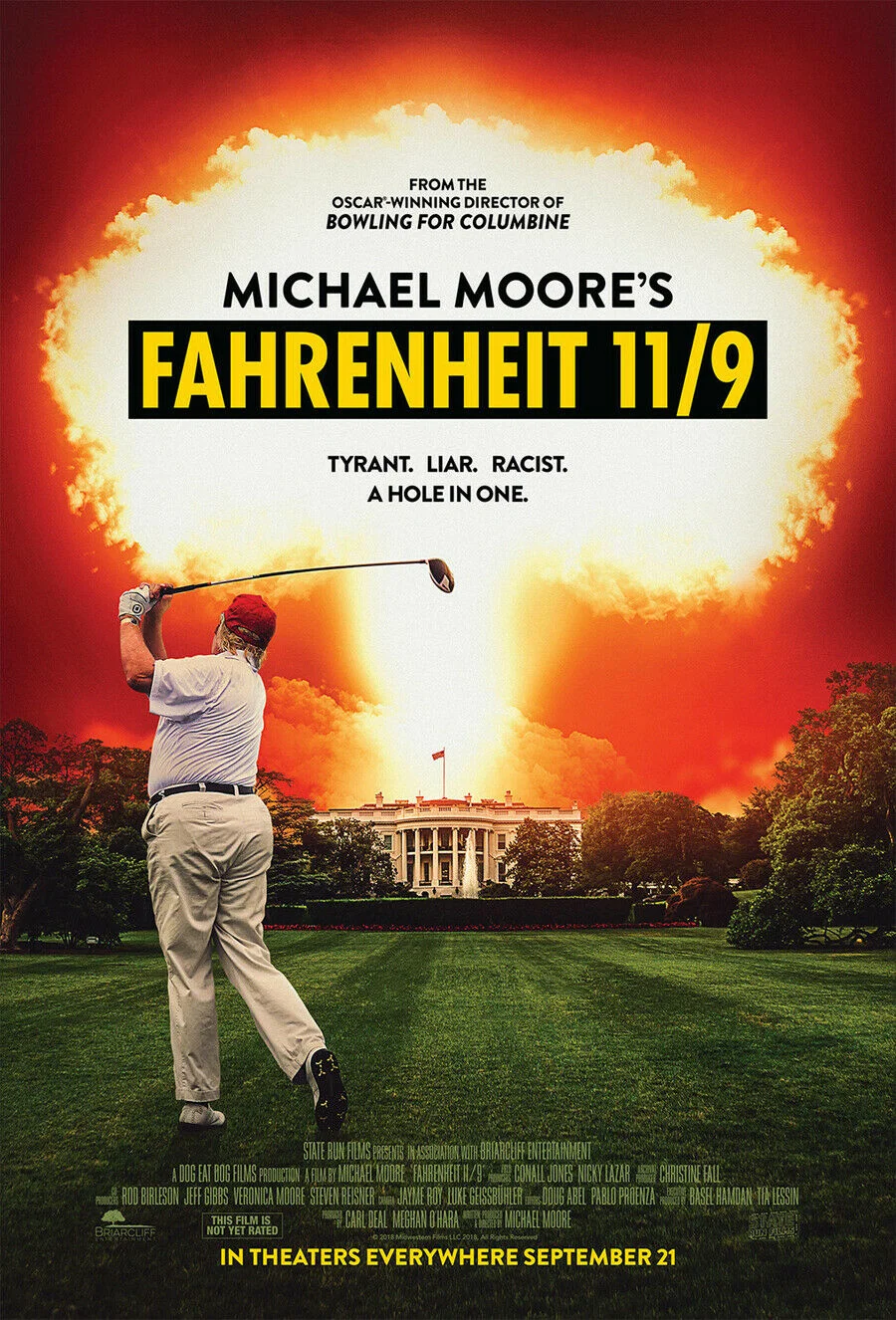
1/20:
Although compelling, Fahrenheit 11/9 is lazy by Michael Moore's standards.
It's understandable because he's getting old, has run out of tricks, and is still quite fat. None of his stuff has ever
produced sweeping changes. Hell, I didn't know he made a documentary, and it took me a full year to find out. The proof
is in the pudding: Fahrenheit 9/11 grossed $119 million domestically while it's
mere $6 million for Fahrenheit 11/9.
For starters, Fahrenheit 11/9 is all over the map. First, it talks about how the mess started with
Gwen Stefani by giving Donald Trump motivation to run for president. I was like, "How...?" The theory goes like this:
she was making more money from The Voice than him on The Apprentice, so he got to thinking
about bigger things. Uh, whatever. The truth is: Trump had flirted with the idea for three decades. I was surprised
he finally did it.
Then, it goes on by giving me a rundown of what happened during the 2016 Presidential Election. After that, I'm
oddly transported to Flint, Michigan, the site of a major water crisis. All of a sudden, it's the aftermath of a
school shooting in Parkland, Florida. Then, I'm back to Donald Trump's unusual mannerisms which makes him less worthy
of the presidential image. Right away, it's a trip to West Virginia for a teachers' strike. Finally, it's back to Donald Trump,
but this time, Hitler references are made.
It's all strange to me...this lazy filmmaking. So, Michael Moore, what are you getting at? That Donald
Trump molests his daughter? I don't know what it has to do with me. That's for the law enforcement to deal with. As for the
residents of Flint, the simple solution is: move the hell out and never look back. Sheesh, the city has been
dying since the days of Roger & Me, and I can't believe Michael is still obsessed with it.
The teachers' strike? These people are so weak that they gave up early, settling for little, and accomplished
nothing of significance. As a result, they got a 5% pay raise, so what's that, $1,500 which will be mostly gone
through tax? Hey, babysitters-in-lieu-of-teachers...want a true fix? Leave, and never return to work under any circumstances.
Once the salary goes up to $100,000 range, real changes will be made in education with many intelligent people
coming back into the fold as long as they have the right to operate on their own without interference from the
administration and are allowed to discipline as they see fit while throwing out the undesirables for good.
The reason why Hilter came to power is that the Germans were living in severe economic depression due to the
Versailles Treaty as punishment for starting WWI and were looking for a way out, setting up the Jews as
a perfect scapegoat for their problems. Now, remember this: Trump was voted in; the only way to get rid of him is
vote for somebody else, and the same goes for the rest of the government officials. Honestly, what did you expect from Barack
Obama? He's a politician who's bought and paid for by corporations just like Hillary Clinton.
I don't about school shootings nowadays. Guns serve no useful purpose and thus shouldn't
be sold to the public anymore. The real threat to the U.S. today is the application of liberal ideas which pervades everywhere.
They sound good in theory but are impractical, waste money, and have little to no evidence of success on a large scale.
Slavery reparations, tuition-free college, student-centered learning, war on poverty, and ignoring the reality of IQ
are some of these examples.
To tell you the truth, I haven't been watching or reading the news for many, many years. It's all fake crap that's filled with
negativity and opinions. The champion of news reporting, CNN lost credibility two decades ago; the same is
said for other media outlets. I didn't vote during the 2016 Presidential Election because there's nobody worthy and
it's going to be more of the same. If you think I complain, I don't. I pay taxes, am a productive member of society,
and mind my own business. Once I do that, the world becomes an easier place to live in. So, what I saw in
Fahrenheit 11/9 is, quite frankly, news to me, helping me catch up on the current events, yet
I feel that I've missed nothing important.
All in all, worth $50 million today and a capitalist at heart who owns nine houses, Michael Moore is irrelevant.
Fahrenheit 9/11 (2004)
Rate:
9
Viewed:
10/04, 11/08
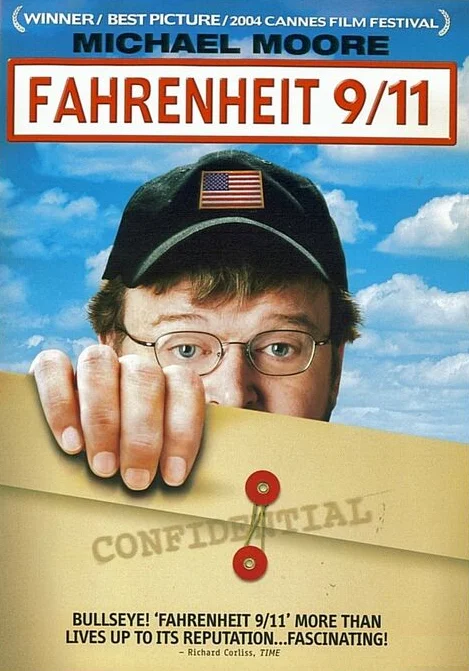
11/08:
I'm calling out Claudia Puig of USA Today for calling Fahrenheit 9/11 a funny picture.
What exactly about it that strikes her as funny? What a fucking joke she is. The reason why I didn't give the
documentary a '10' is that it's almost irrelevant today yet is not in any way outdated. In fact, Fahrenheit 9/11 is history,
but it didn't influence history, i.e., the presidential election of 2004, by the way Michael Moore wanted to although the
editing work is skillful.
Michael Moore is a brilliant director who has a knack for bringing difficult details into a condensed form for two
hours, and already, I have an idea of what the big picture is. Also, he uses the same style from
Roger & Me and Bowling for Columbine to evoke
strong feelings. The only part I'm surprised is the omitted footage of the collapse of the World Trade Center because it
should be treated as a historical archive for those who didn't see it happen or weren't alive at that time.
On the other hand, the more I see George W. Bush in Fahrenheit 9/11, the more idiotic he looks. With two
months to go before we all can say "good riddance," he'll go down in U.S. history as one of the worst presidents ever to occupy
the office. I say this with an exclamation point.
One part I dislike the most about 9/11 is the constant reminder every September 11th about what happened. Really, I do not
care. If the Americans are forced to remember the date, then why not do the same for the Oklahoma City Bombing? Or one
of the Civil War battles? Or the 1900 Galveston Hurricane? Or the Titanic?
All in all, Fahrenheit 9/11 is a must-watch and will arouse a lot of feelings you probably never had before about
the United States of America.
Fernando Nation (2010)
Rate:
9
Viewed:
9/25

9/25:
Forget The Scout.
The real deal is Fernando Valenzuela. In 1981, he came out of absolutely nowhere to take MLB by storm. As
a result, he won Rookie of the Year, Cy Young, Silver Slugger, and World
Series title all in the same season. No one had ever done that, and it remains unmatched.
Another impressive accomplishment, of which I still remember, occurred on June 29, 1990. Dave Stewart had
thrown a no-hitter for the Oakland Athletics. Normally, when that happens, nobody else does it again on the
same day. Even Fernando Valenzuela was informed of what happened, and then...he went out and did it! So far,
no two pitchers have duplicated this feat.
Fernando Nation does a good job of capturing everything that began the unusual phenomenon:
Fernandomania. I didn't know about the history in relation to the uprooting of a community resided by
Mexican, Chinese and Italian people to build Dodgers Stadium. Wondering if there were reparations made, I
found out it's a bill being considered.
All in all, there's never been a Mexican athlete like Fernando Valenzuela making a significant impact in U.S.
professional sports history.
The Filth and the Fury (2000)
Rate:
9
Viewed:
4/08, 6/10, 3/22

4/08:
The Filth and the Fury is an informative documentary about England's most influential punk rock band:
Sex Pistols.
There's a nice flow that recounts the history of how it came to existence. Infamous moments are covered, and all
of the surviving members, most especially Johnny Rotten, offer stories in bits and pieces that are intercut
with excerpts of Laurence Olivier's Richard III.
It's interesting to see how much they don't care about their legacy. In fact, the Sex Pistols were inducted
into the Rock and Roll Hall of Fame in 2006, but they refused to attend the ceremony, calling it "a
piss stain." Nothing will ever change with them.
All in all, The Filth and the Fury is a solid documentary about the rise and fall of the Sex Pistols.
6/10:
Just great.
3/22:
The Filth and the Fury holds up well.
It's a very good documentary, chronicling the rise and fall of the Sex Pistols, the most famous band in punk
rock history which started the movement and inspired countless musicians. It only released one album:
Never Mind the Bollocks, Here's the Sex Pistols which includes "Anarchy in the UK" and "God Save the
Queen." In short, there's nothing like the Sex Pistols.
All in all, to catch up on punk rock, you should start with The Filth and the Fury and then follow it
up with The Decline of Western Civilization; they're
both outstanding.
Fire on the Track:
The Steve Prefontaine Story (1995)
Rate:
4
Viewed:
12/21

12/21:
If you've read the book Pre: The Story of America's Greatest Running Legend, Steve Prefontaine by Tom Jordan,
then chances are that you saw the brief documentary Fire on the Track: The Steve Prefontaine Story without
having actually seen it.
The content is virtually the same. Some variation will be nice like the two films: Prefontaine
and Without Limits. At least, I get to see some of the people involved although there are
others who are irrelevant. Dana Carvey, anyone? There's a video footage of where the accident occurred that killed Steve Prefontaine.
All in all, is Fire on the Track: The Steve Prefontaine Story supposed to be about Steve Prefontaine or Nike?
The Fog of War (2003)
Rate:
3
Viewed:
5/17

5/17:
I started with Path to War and found it illuminating.
Then, I searched for any other films on the subject which yielded the documentary The Fog of War. When I learned who
the director was, I cringed...really hard.
Errol Morris isn't a competent documentary filmmaker. He's the master of the art of manipulation and deceptive editing.
Think of Nanook of the North.
The Thin Blue Line is a very good example of what
I mean: showing the same story and useless close-up shots of mundane objects repeatedly while withholding important information
until it's ready to be released.
Another trouble with The Thin Blue Line is the lack of respect for victims. You do not
ever, in any circumstances, put a criminal in the limelight. It's exactly what happened with the Vidor killer when he was allowed the
freedom to say and behave as he pleased. Errol Morris will do it again with Robert McNamara for The Fog of War. He simply
lacks credentials. This time, he lets McNamara control the interview by answering any questions he thinks that are appropriate and
avoiding the tough ones which is always a sure sign of a bad interview.
When I think of the worst Americans ever in the history of the United States, Robert McNamara comes to my mind. In the
documentary, he admitted that he should've been tried as a war criminal. Of course, no shit. The people knew that
already during the 60's-70's. Armed with zero knowledge of the historical conflict in Vietnam, Robert McNamara used
statistics to play war games and had no concept of countless lives that were being destroyed because all he
cared was whether his projections were met or not. If not, then he would readjust them that's based on new data.
Another mistake of the documentary is how one-sided it is. Robert McNamara is a proven liar (remember the
USS Liberty cover-up?), having lied to the public repeatedly and misled the officials about the state of the Vietnam War.
How am I supposed to know he's telling the truth? Psst, he's not.
Fuck the lessons. The whole thing is a damn joke: irrelevant and disrespectful to the victims of the war. Even worse is the
MTV-like editing job. How can Errol Morris have any shred of credibility by presenting the useless razzle–dazzle graphics while
dealing with a serious matter? Does he realize more than three, maybe four, million people died in the war?
All in all, Robert McNamara goes down in history as one of the world's largest mass murderers; notice how he cried not for
the people who died in Vietnam but for JFK, having selected the "most beautiful spot in Arlington National Cemetery" for
his grave site.
Free Spirits (2013)
Rate:
3
Viewed:
3/15
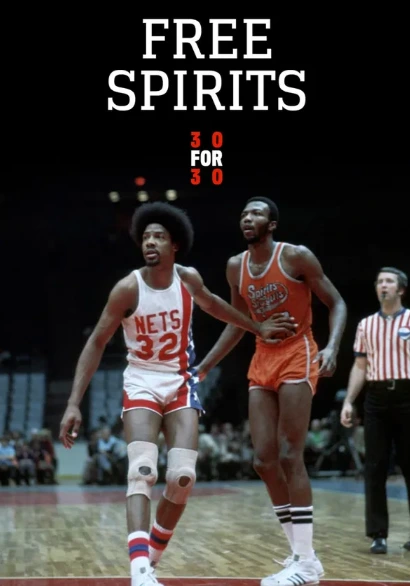
3/15:
Why Bob Costas?
I hate that guy. Free Spirits is a boring documentary about the Spirits of St. Louis during the
days of American Basketball Association (ABA). It's mostly guys, especially Marvin "Bad News" Barnes,
reminiscing about their time from 1974 to 1976.
The only real accomplishment the team had was knocking the Dr. J-led New York Nets out of the playoffs in
the first round during the 1974–75 season. One interviewee correctly described the team as "failed greatness."
Barnes unsurprisingly died last fall due to years of drug abuse.
All in all, if you want to see a better documentary than Free Spirits, then check out
Long Shots: The Life and Times of the American Basketball Association
which aired on HBO in 1997.
Gates of Heaven (1978)
Rate:
3
Viewed:
11/20
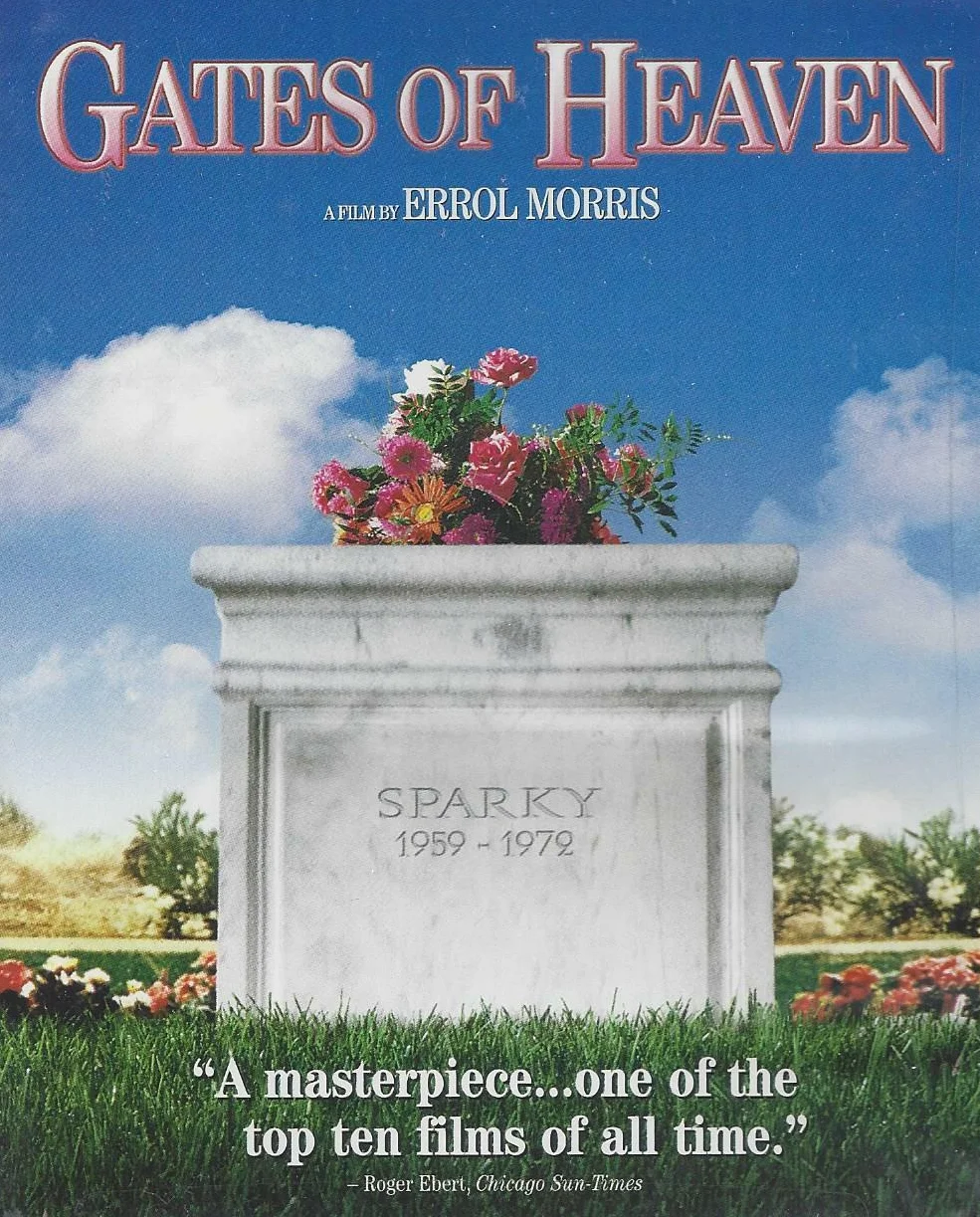
11/20:
Just like Vernon, Florida, Gates of Heaven features more
mind-numbingly maudlin interviews with simple-minded folks.
The things they say are so obvious that I don't need them pointed out. The documentary also has an annoying
trait of going all over the map. At first, it's about the pet aftercare business; the next thing I know, there's
a crackpot giving pointers about motivation. Then, I'm listening to an old lady rambling on and on about how
her son took advantage of her or something.
Located in Napa, California, the Bubbling Well Pet Memorial Park is going strong today. Well, that's great for the
Harberts family who founded it. There are approximately 500 pet cemeteries across the nation, and the Napa park
remains the largest with over 20,000 buried pets since its inception in 1971. Originally, veterinarians threw
animal carcasses in dumpsters or took them to rendering factories to be converted into fat or animal feed.
Oddly, German director Werner Herzog said he would eat his own shoe if Errol Morris, then a film student at the
University of California-Berkeley, completed Gates of Heaven and released it theatrically. Eventually,
he did live up to his promise which was captured in a short film that's apparently called
Werner Herzog Eats His Shoe.
All in all, Gates of Heaven is too simple and boring, and by calling it "a masterpiece...one of the
top ten films of all time," Roger Ebert had no credibility to begin with.
Generation Iron (2013)
Rate:
7
Viewed:
2/15
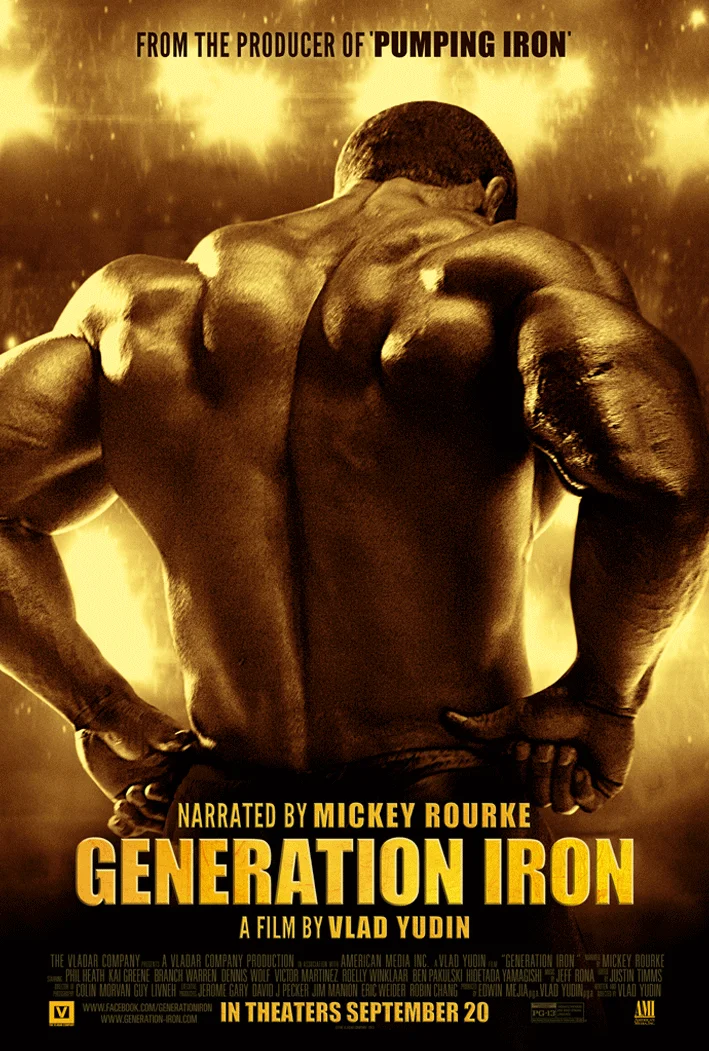
2/15:
Pumping Iron was long considered the go-to bodybuilding documentary.
However, the arrogance and made-up stories were its bane. I hadn't seen another since then until
Generation Iron came along. There are prominent differences between these two.
Bodybuilding has come a long way since the days of Arnold Schwarzenegger as there's a dramatic shift in the look of physique.
Back then, bodybuilders had a refined, chiseled build that looked natural to the eye. But today, they're bulky, veiny, and
plain massive. There were bodybuilders during the 70's and 80's who were easily identifiable, thanks to the lure of
Hollywood. And today? I have zero idea who they are. Everybody in Generation Iron is news to me.
As far as actors go, there is and will always be one Arnold Schwarzenegger because nobody can capture the uniqueness
he brought to the table. Sylvester Stallone comes in a close second despite not having a career in bodybuilding even though
I tend to think of him in this category. However, I like Generation Iron more than
Pumping Iron
because it presents clear information of what it takes to excel in the "sport" including steroids.
Yet points are docked from my rating due to the lack of frank discussion about side effects of PEDs in the world of
bodybuilding. I say it because of the misguided ideal that countless impressionable male teenagers look up to.
In fact, I once thought doing pushups was all it took, but I never knew the truth for many years and had come to
full realization, thanks to the internet, that it's impossible to get there without steroids. Hence, the
information was never disclosed in bodybuilding magazines.
Furthermore, most, if not all, bodybuilders are unhealthy because of the damage their muscles and organs including the
heart, kidney, and liver have endured by being forced to withstand the massive amount of calories they consume daily.
Let's not forget to mention the expenses steroids have inflicted on their wallet which can range anywhere from $1,000 to
$2,000 a month. That's why some of the stars in bodybuilding can afford it while everybody else gets by only
to make ends meet.
During the Mr. Olympia show, I admit Phil Heath has better physique than Kai Greene, and it's not even close.
Therefore, I'm surprised by the announcement there was a one-point difference in the final scoring. Elsewhere, it's
amusing to hear Branch Warren talking about how tough he is and then seconds later, he gets bucked off a horse, injuring his
leg and telling the cameraman to quit filming. What a fucking tool. The casting scene with Dennis Wolf is terrible.
If I were him, I would forego acting altogether as a viable career.
All in all, Generation Iron is a good, if overly dramatic, documentary about bodybuilding but makes the fatal
mistake of not addressing the usage of steroids and other PEDs in order to be successful in the "sport."
Gladiator Days: Anatomy of a
Prison Murder (2002)
Rate:
6
Viewed:
5/20
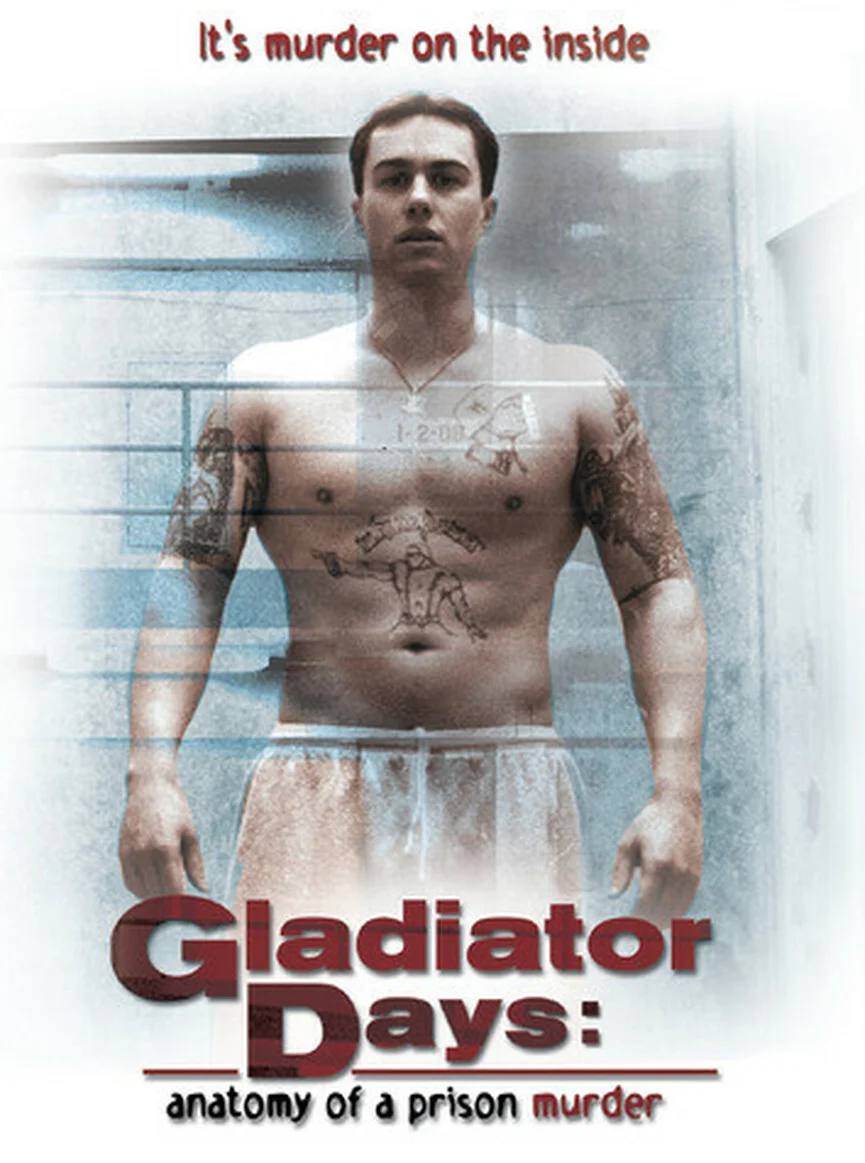
5/20:
Gladiator Days: Anatomy of a Prison Murder is a weird short documentary about a convicted
murderer who killed a black prisoner in 1994 while serving time.
That being said, why is it important for me to know? Must they show the murder on video for all the public to see while his
family is out there? Who's this guy: Troy Kell? People think he's intelligent. Uh, no...that's why he's in prison for life.
After finishing the documentary, which was made in 2002 and it's now 2020, I guessed Troy Kell got executed.
Well, to my surprise, he's still sitting on death row. What gives? The criminal justice system in Utah must be broken.
Since 1999, only one person has been executed there, and that's it. So, what's the point of death
penalty in Utah? Either it means what it means or everybody can stop the pointless charade by leaving the option off the
table during the penalty phase.
All in all, prisoners have a perverse idea of what "respect" means; once they're locked up and the key is thrown away
forever, who cares about them?
Grey Gardens (1975)
Rate:
1
Viewed:
9/21
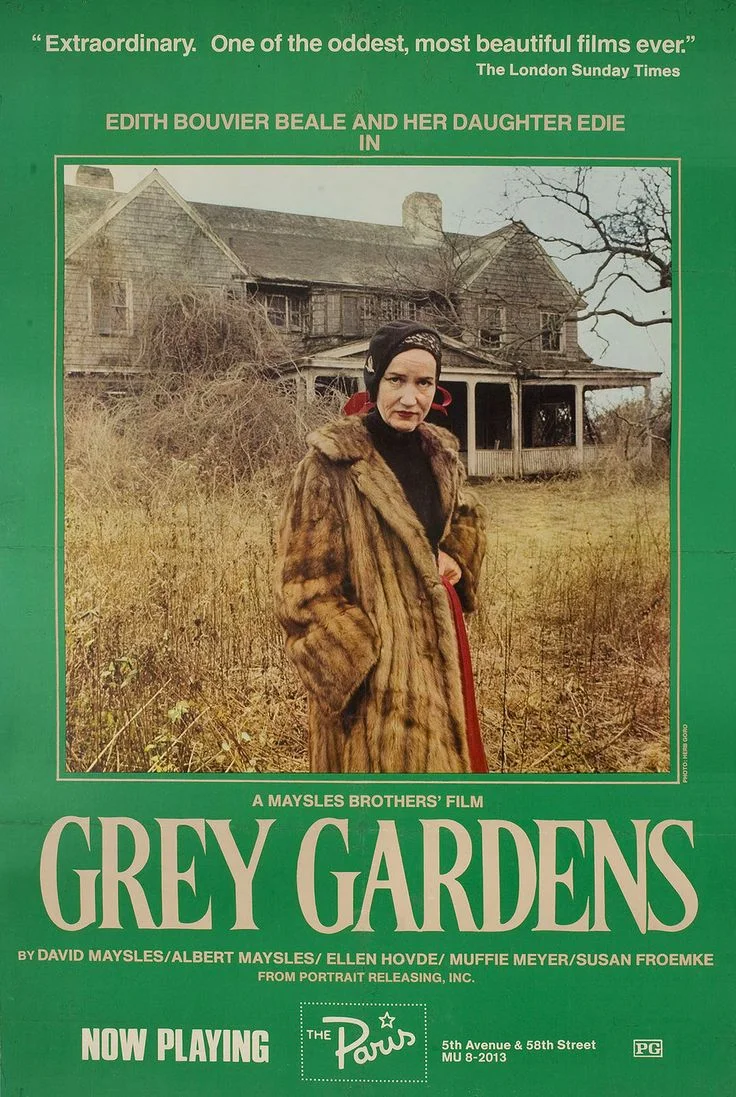
9/21:
Grey Gardens is a huge waste of my time.
It's a 95-minute documentary about two women rambling about the past, dancing, nagging each other, and singing about nothing.
The only question I wanted to ask is: "What the fuck happened?" They never answer it, and the end. If I ever need an example
to define the word "exploitative," Grey Gardens will do.
A mistake from the get-go is the filmmakers failing to define the relationship between the Beales and Jacqueline Kennedy
Onassis. The quick answer is: Edith is Jackie's father's sister which means her daughter and Jackie are first cousins. Like I
care...
If anything, I'm surprised to see the daughter leaving bread and cat food all over the attic for the raccoons to feast on.
No wonder why the house fell apart so quickly. Why do you think the daughter wears a scarf incessantly around her head? It's
because she purposefully set it on fire. Now, that's what I call "mental illness."
All in all, if not for the connection to Jacqueline Kennedy Onassis, Grey Gardens would've never been made in the
first place.
Harlan County, U.S.A. (1976)
Rate:
10
Viewed:
4/07
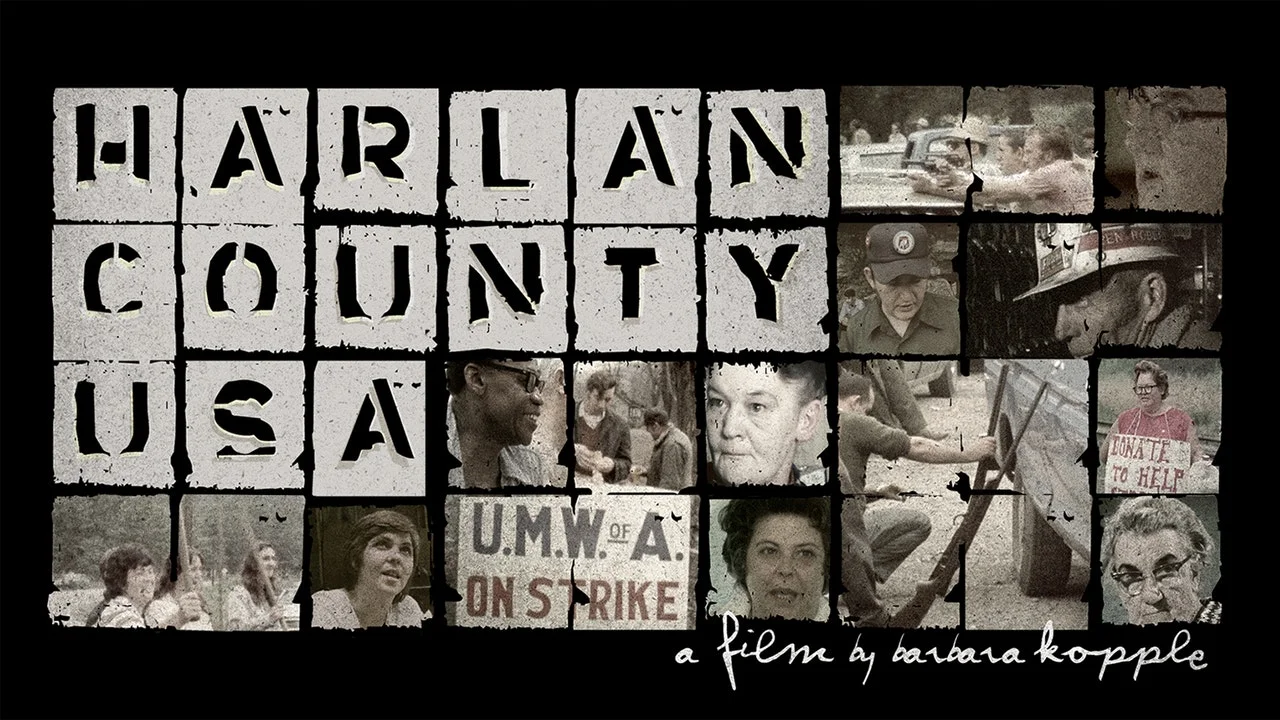
4/07:
Harlan County, U.S.A. is a magnificent piece of Americana.
I've always wanted to know what it's like to work in the coal mines, the dangers surrounding the job, and how it affects the
families. Barbara Kopple gives me a glimpse into their world which perfectly describes it all.
At the same time, there's a strike going on which reminds me of On the Waterfront with
Marlon Brando but more real. Before I saw the documentary, I was inundated with a stereotyped picture of chiseled Charles Bronson
who used to work in the coal mines. The men, current and former mine workers, of Harlan County appear to be a ghastly-looking
bunch with pale, sullen faces.
All in all, thirty years after its initial release, Harlan County, U.S.A. remains one of the finest documentaries made
and serves as a benchmark of how it should be done.
Hearts of Darkness:
A Filmmaker's Apocalypse (1991)
Rate:
9
Viewed:
12/17, 12/22
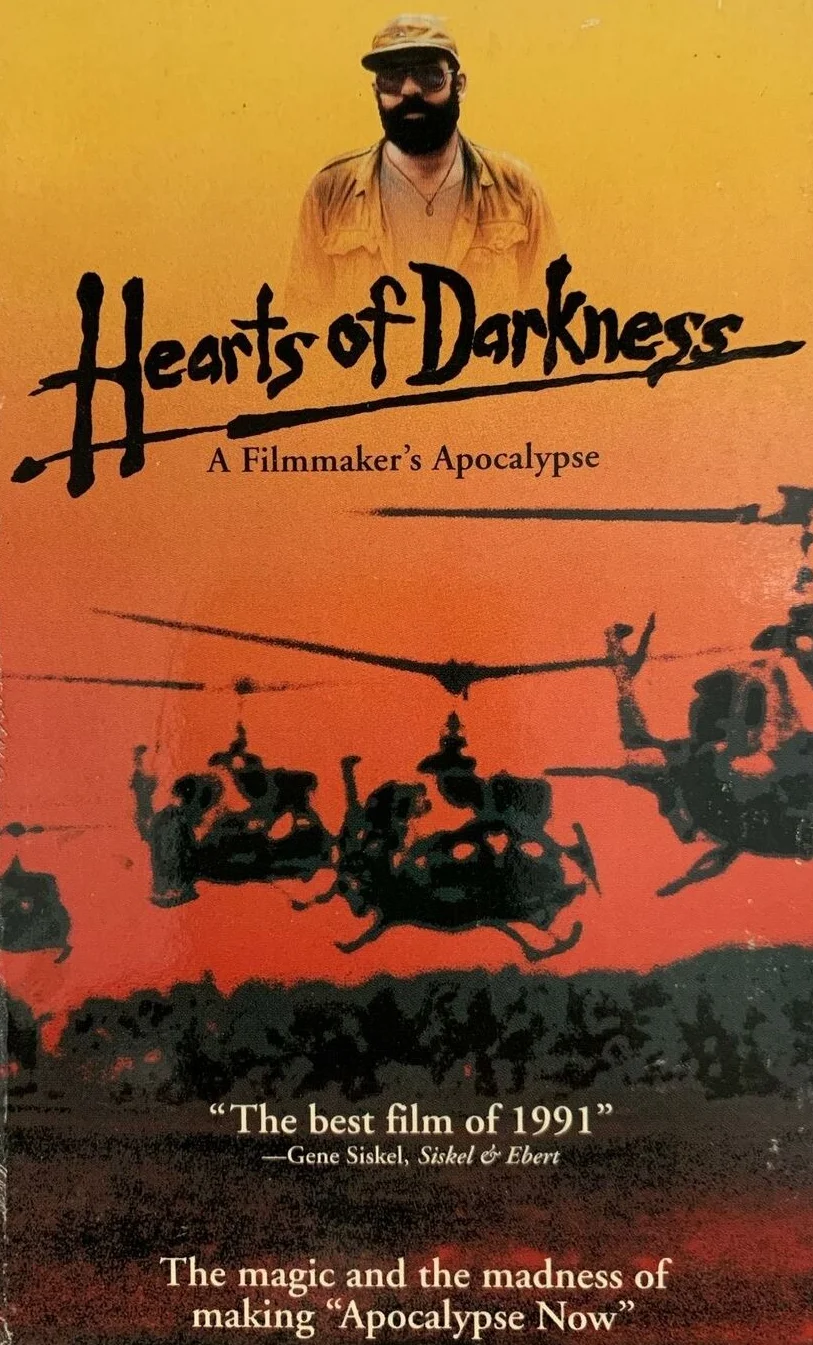
12/17:
If you have seen Apocalypse Now, then you must check out
Hearts of Darkness: A Filmmaker's Apocalypse, a documentary that chronicles Francis Ford Coppola's
journey of making the Vietnam War masterpiece.
"We were in the jungle, there were too many of us, we had access to too much money, too much equipment, and
little by little we went insane."
The stories of what happened on the set are legendary by now. Yet there are some more in this documentary that
I never knew before, giving me a different perspective of how some certain scenes went down. If there's anything
I'm disappointed with, Marlon Brando didn't show up. I was interested in hearing his thoughts about
the film. True to form, according to IMDb, "Marlon Brando allegedly refused to be interviewed, claiming
Francis Ford Coppola still owed him $2 million."
At least, I got to hear from Martin Sheen who looks greatly aged after suffering a heart attack
during the production. It's wonderful to hear from others who recounted their experiences.
All in all, you haven't completed Apocalypse Now until you see
Hearts of Darkness: A Filmmaker's Apocalypse.
12/22:
It still would've been nice if Marlon Brando could be interviewed in
Hearts of Darkness: A Filmmaker's Apocalypse.
Of course, the stories behind the scenes are legendary, but Francis Ford Coppola is full of himself.
Nevertheless, he made a masterpiece, and it's fascinating how the whole thing worked out.
All in all, Hearts of Darkness: A Filmmaker's Apocalypse is a must-see documentary.
Hitman Hart:
Wrestling with Shadows (1998)
Rate:
8
Viewed:
2/15
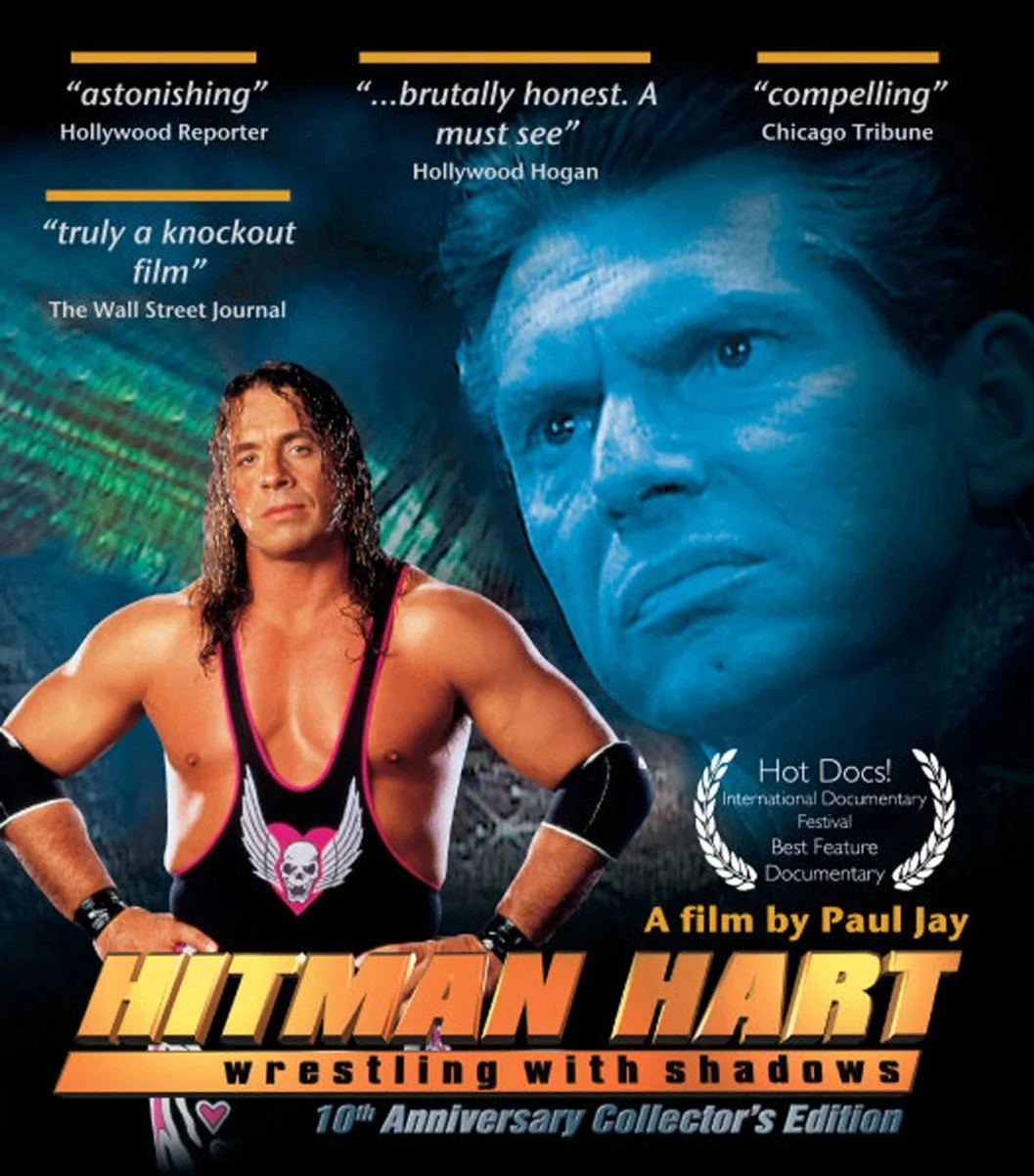
2/15:
Ask anyone who the best technician is in pro wrestling history.
You'll universally hear "Bret 'Hitman' Hart." He was one of the most popular wrestlers, and I watched
many of his matches throughout the 90's: very exciting and such a huge draw.
In short, the Hitman was probably the greatest show performer ever. Due to lost interest, I hadn't followed
WWF since 1997 or so. Nowadays, I'll flip through the channels and catch WWE occasionally, but it's not
the same anymore.
If you've heard the words "Montreal Screwjob," look no further than Hitman Hart: Wrestling with Shadows
which explains everything. Also fascinating is the behind-the-scenes of how the professional wrestling world
works. At this point, it becomes increasingly hard to tell which is the truth and which is not. Even the
veracity of the documentary is also questionable. Meanwhile, it's eerie to see a shot of Bret standing next to
Owen Hart and The British Bulldog and also others he wrestled against because some of them would pass
away years later.
All in all, Bret "Hitman" Hart is still the best there is, the best there was, and the best there ever will be.
Hoop Dreams (1994)
Rate:
10
Viewed:
6/03, 10/03, 2/05, 8/05, 7/07, 8/11

7/07:
I think of Hoop Dreams as a Greek tragedy play.
The NBA is the Mount Olympus of basketball. Isiah Thomas is Apollo. Magic Johnson is Poseidon. And the ruler of them all is
Michael Jordan, the Zeus from Chicago. Among those who intensely worship these gods are black high school basketball
players from the projects. To make it into the NBA is to devote their bodies and minds to the game of basketball.
This is what Hoop Dreams is all about. It's their version of the American Dream. Behind the façade is
the hardship of black families living in poverty who struggle to make ends meet.
Men are foolishly chasing the high of life whether it be basketball, drugs, or gangbanging. Women are levelheadedly realistic
about life by keeping their family together while trying to make a honest dollar. That's why Sheila Agee and Emma Gates are the true
heroes. On the other hand, the villain is Gene Pingatore who comes off as a giant asshole with no fucking clue about life.
All in all, Hoop Dreams is a shattering documentary about the realities of black people who live in the projects.
8/11:
"And welcome to the 38th annual NBA All-Star game from Chicago Stadium."
"A standing-room-only crowd."
"A steal by Jordan. He spun it away from the Mailman."
"Right now, I wanna, you know, play in the NBA."
"I dream and think about all the time...playing in the NBA."
That's what Hoop Dreams is all about, and it's still one of the best documentaries I've ever seen.
Since then, William Gates' and Arthur Agee's dreams have been long dead. Many of their relatives have passed away
including William Agee's older half-brother DeAntonio (murdered in 1994), Curtis Gates (murdered in 2001), and Bo Agee
(murdered in 2004). During the 15th anniversary at Gene Siskel Film Center, Arthur Agee told the audience that ten of
his friends from the film were no longer alive. It's a sobering reality of living in the projects.
All in all, Hoop Dreams hasn't lost any power.
Icarus (2017)
Rate:
7
Viewed:
3/23
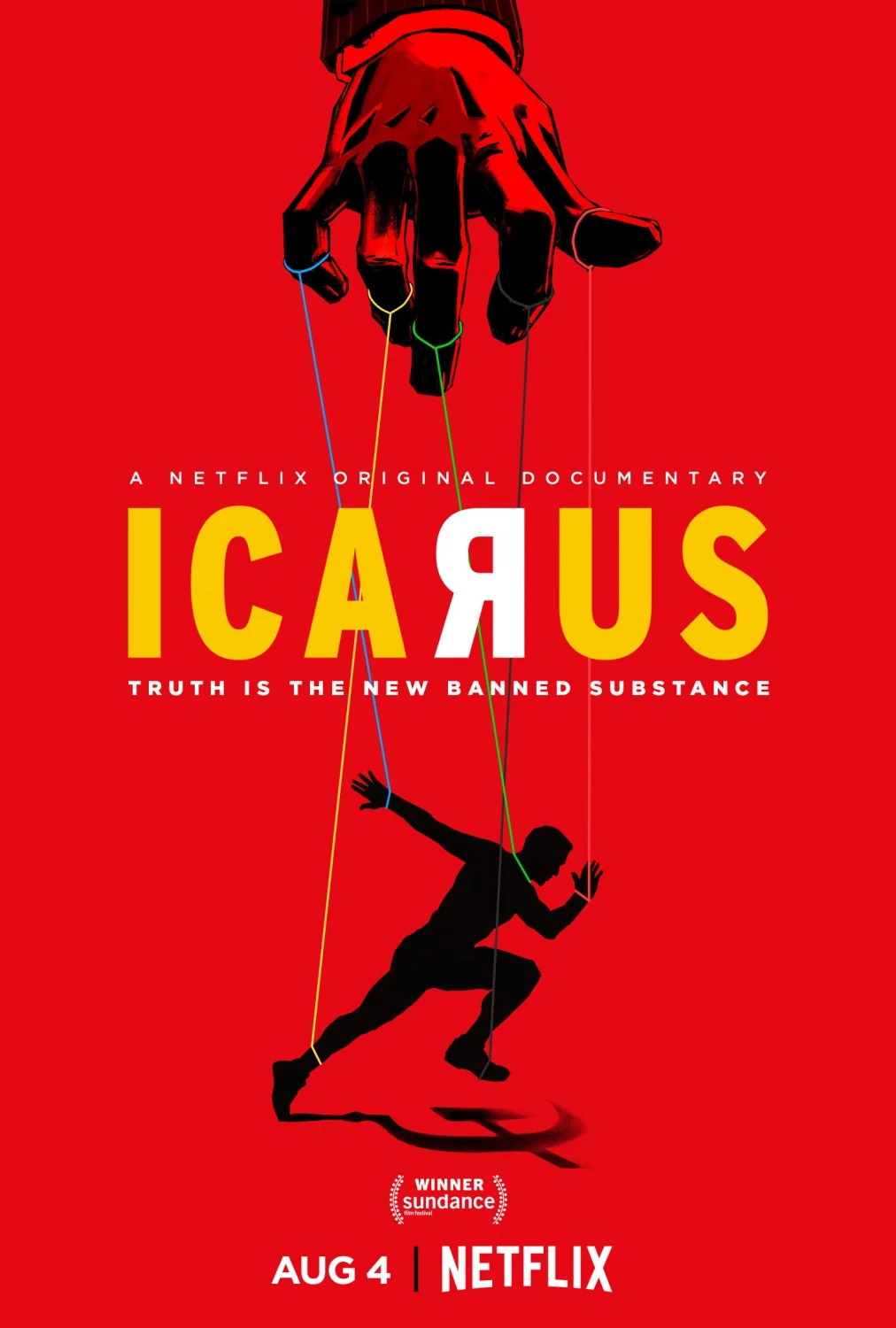
3/23:
I don't care about the Olympics, and I haven't watched it in decades.
Why? They're all cheating. Hence, I call the games "Cheatlympics." The joke is on everybody when the Russians
and the East Germans are painted as the bad guys because the United States athletes cheat, too. It's just a
question of being caught.
Usain Bolt? No way. Please don't wake me up when he tests positive one day. His times are impossible. Ben Johnson
who was stripped of his gold medal for anabolic steroids? Ha! Carl Lewis also cheated and failed drug tests left
and right, but the U.S. track and field officials turned a blind eye to it. They did the same for Florence
Griffith-Joyner who obviously cheated, but she abruptly retired when random drug tests were mandated and died
in her sleep years later at age 38.
All in all, Icarus is all right but can sometimes be incomprehensible while pointing out nothing new.
In the Land of the Deaf (1992)
Rate:
2
Viewed:
1/08
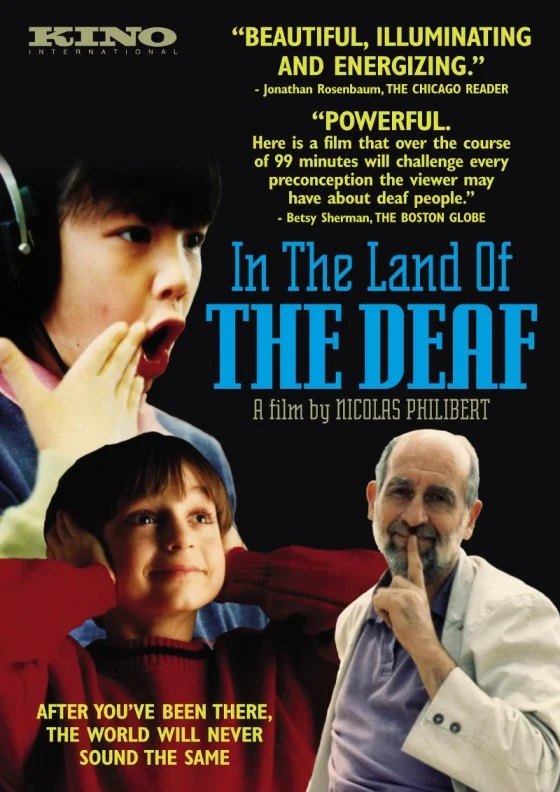
1/08:
Most people are unaware of what goes on in the deaf world.
Hence, In the Land of the Deaf (when it should be called In the Land of the Deaf Mute Signers ) will
be a beautiful and touching film to them, enrapturing their hearts, but I don't view it that way.
Where's the focus on deaf people who are auditory oral? Why is there no glimpse of successful deaf people
in the hearing world? Oh...that's right: in the eyes of these deaf mute signers, they're all failures. Isolationism is
their number one goal.
It disappoints me when I'm shown deaf children signing so much during their break from school. That's why many of them don't
succeed in the long run by failing to exercise their voice muscles. It's true that most, but probably all, deaf people portrayed
in the film aren't bright and have 2nd to 4th grade reading, writing, and arithmetic skills. So, they're reduced to a life with
limited opportunities for menial jobs, thus ending up on welfare. That's just great...really great.
What I want to see is a true insight into the deaf world. Nearly nothing of that kind has been shown. Instead, I'm presented with a
bunch of random useless scenes that go on and on without anything significant to say. Watching the children cry at the airport as
if they're being parted from their mother is probably the pitiful thing I've seen and makes me want to punch their faces.
There's a deaf boy telling an anecdotal story about his hearing aids that were too loud for him. Hey, moron...how about
lowering the volume? Finally, we have the king of all duds: the old man. Nearly everything he says comes out slanted
and wrong. The only correct statement he made is French Sign Language isn't the universal language of the deaf world.
Of course, it's because almost every country has its own sign language system.
While watching the awards show at the end of the movie, I was dismayed when the presenter said some rude words
about a particular small boy who's "not a hard worker." Excuse fucking me? Every deaf child has to work at least three
to four times harder than any normal hearing child. It takes a lot of energy to process the world in the absence of sound.
Hence, I wanted to tell the presenter off, "Fuck you."
Acquiring language, translating it in the brain, making sense of words that come out of people's mouth despite
hearing nothing, and making do with little information on hand are the challenges that face anyone who's deaf, especially a
little child. To succeed in speech and speechreading is the hardest task anyone can ask out of a deaf child, but some do.
Academic achievement is another matter. Without it, no deaf person is assured of a high quality life that many hearing people
take for granted, so they're left out in the cold despite their best abilities. Oftentimes than not, apart from
multiple disabilities, the only issue that get in their way is how poorly taught they are due to language
issues and the inferior deaf residential schools they attend because of the crappy teachers, even though many are deaf themselves,
who don't know anything about real life or the academics they teach.
By the way, what's so damned important when a deaf person says, "My cousin is deaf. My sister is deaf. My other sister is hearing.
My father is deaf. My mother is deaf. My grandparents on my mother's side are deaf. My father's parents are hearing. My
cousin's friend is deaf. My snake is hearing. My cat is deaf. My dog is hearing. My fish is hard of hearing. My pig is deaf.
My house is hearing"? It's just a stupid, worthless badge of honor. That's how they isolate themselves more in the deaf world.
All in all, In the Land of the Deaf is completely misleading.
An Inconvenient Truth (2006)
Rate:
8
Viewed:
12/06

12/06:
Maybe Al Gore was right: he really did invent the internet and global warming.
All the kidding aside, I can't go so far as to call An Inconvenient Truth a groundbreaking film of
earth-shattering truths. A lot of what's covered has been mentioned in various documentaries. So, I'm not
surprised by the content, but I enjoy listening to it, regardless.
Al Gore worked hard to construct a film to send out a serious message of the damage that mankind has been
responsible for. But what's actually the truth? All I know is the United States is the worldwide leader in
carbon dioxide emission and there's no slowing down.
All in all, An Inconvenient Truth doesn't say anything new about global warming.
Into the Wind (2010)
Rate:
9
Viewed:
9/25
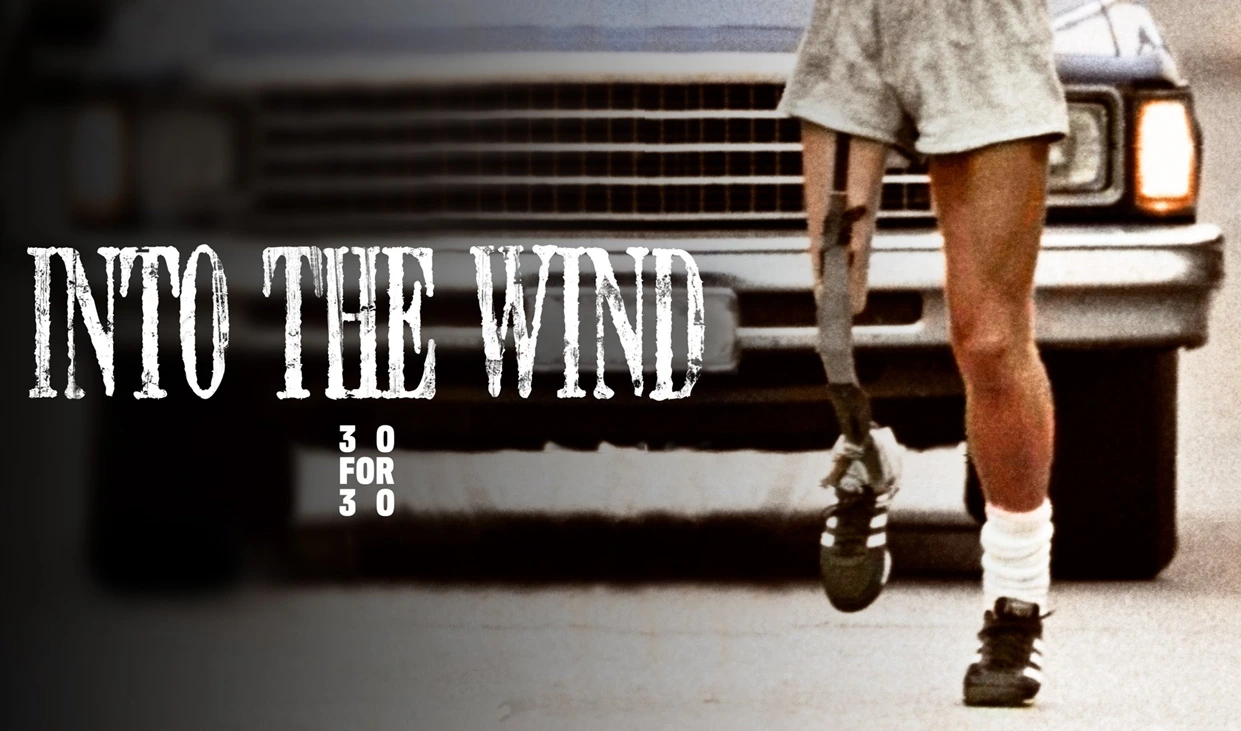
9/25:
In 2010, the Canadian Broadcasting Corporation ran a special called The Greatest Canadian.
Over 10,000 names were submitted, and more than 1.2 million votes went into reducing the list to 50 Greatest
Canadians. Terry Fox made number two. Wayne Gretzky? He was 10th. Wait a minute...who's Terry Fox? That's
the subject of Into the Wind.
Terry Fox was an ordinary guy who happened to be a decent athlete. In 1977, his right leg was amputated due
to cancer. So, he was fitted with a prosthetic leg. Three years later, he decided to run across Canada to
raise money for cancer research by doing a marathon a day.
At first, nobody paid attention. Eventually, the press got into it, rousing everybody in Canada. Forced to
finish early because of the cancer coming back, Terry Fox ultimately ran 3,339 miles in 143 days. Nine months
later, he died at age 22. His "Marathon of Hope" raised $1.7 million. A TV telethon appeared afterwards,
collecting another $10.5 million. By 2022, over $850 million had been raised by the Terry Fox Foundation
for cancer research. Now, that's what you call making something out of nothing.
All in all, Into the Wind is way better than most of the stuff from 30 for 30.
JFK Revisited:
Through the Looking Glass (2021)
Rate:
7
Viewed:
5/25

5/25:
I've already covered a lot of ground in my reviews of JFK,
Executive Action, and Parkland;
hence, there isn't much new in JFK Revisited: Through the Looking Glass.
Worse, it's too complicated to put everything in a two-hour-long documentary. Therefore, either a lot is
left out or the tale is confusing to follow. My suggestion is to read the book by Jesse "The Body"
Ventura called They Killed Our President: 63 Facts That Prove a Conspiracy to Kill JFK. It summarizes
all the points very well in a clear manner and lists many references should you want to further pursue any of
them.
If there's anything positive to say about the documentary, it shows physical evidence and people involved
to prove there was a conspiracy. A computerized re-enactment is performed to reflect the "magic bullet theory"
which will never be old. On the other hand, it's strange to hear a partial narration from Whoopi Goldberg since
she works for ABC and that channel has long been part of the cover-up.
All in all, there's nothing inaccurate about JFK Revisited: Through the Looking Glass, but it's just
a rehash of facts that have been known for at least three decades and the only thing left to do is the
government finally fessing up about its participation in the killing of JFK.
The Kid Stays in the Picture (2002)
Rate:
4
Viewed:
3/05, 5/06

5/06:
The Kid Stays in the Picture is an informative documentary that chronicles the life and times of Robert Evans.
I suppose it's all about making me jealous of him. Other than producing Chinatown and
The Godfather, he's just another name in a long list of people who are able to finance a film.
The first time I saw The Kid Stays in the Picture, it was riveting. After seeing it again, I'm bored.
It's also arrogant, self-congratulatory, and pointless. Perhaps Robert Evans wanted to leave behind a time capsule
in the hopes of people will think of him as an important man after he passes away.
There's a lot of narration in regard to Ali MacGraw, but I've never considered her worthy of attention. She's only famous for
two things: her cringeworthy performance in Love Story and her affair with
Steve McQueen who controlled and beat her. The extent of Ali MacGraw's acting ability is nonexistent; that's why her name remains
obscure to this day.
All in all, hey, Robert...I have a small advice for you: get over yourself already.
King: A Filmed Record...
Montgomery to Memphis (1969)
Rate:
9
Viewed:
9/24
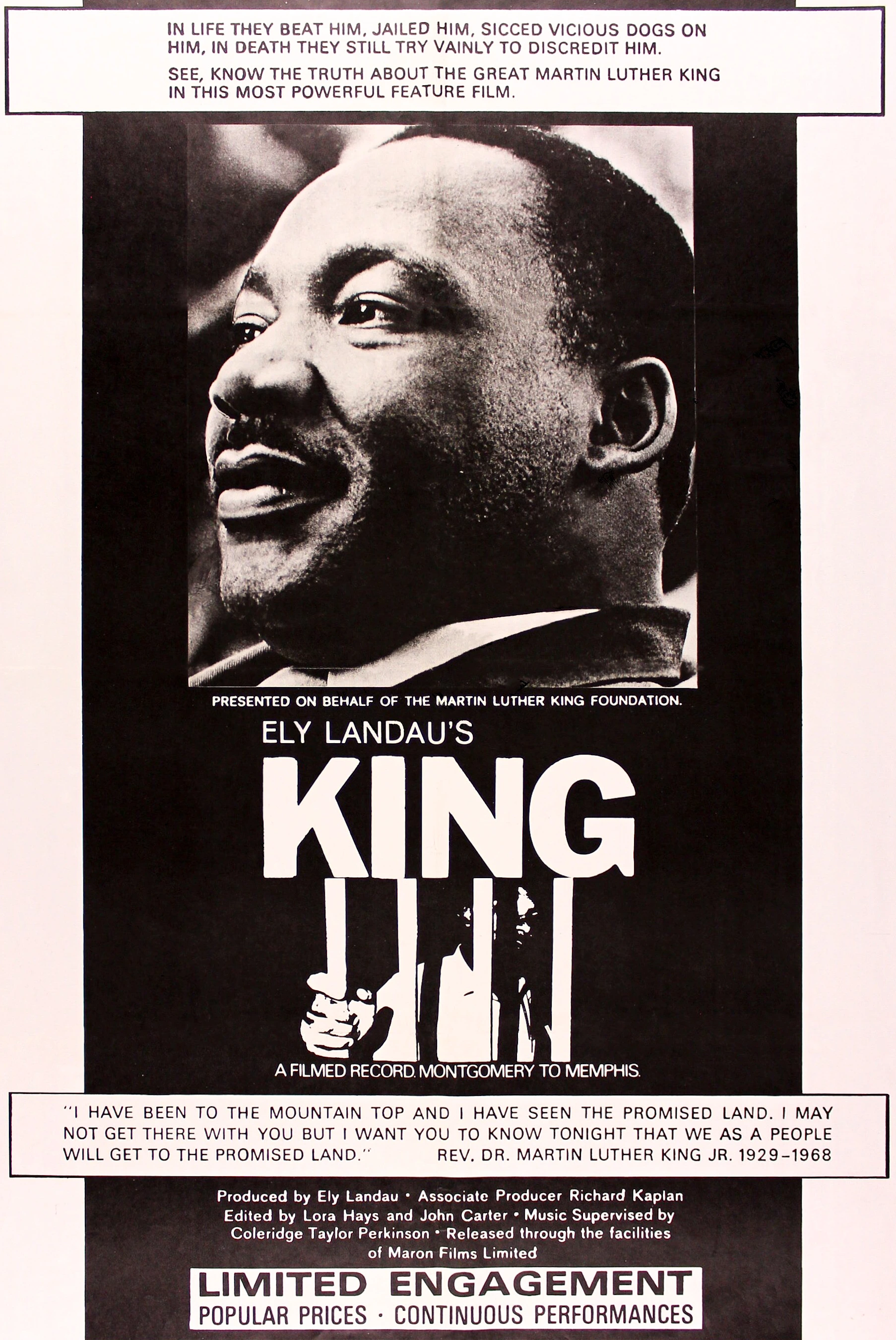
9/24:
This is a fact: despite his or her pathetic lovefest with Dr. Martin Luther King, Jr., nearly everybody has
no clue about the specifics of what he did to achieve civil rights for black people.
Hence, it's nice to see a documentary preserving King's work: King: A Filmed Record...Montgomery to Memphis.
It's three hours long that's jam-packed with his speeches including the letter from Birmingham Jail, "I Have
a Dream," and "I've Been to the Mountaintop" the night before he was gunned down. One thing is for sure: the
man was an extremely gifted orator. An added bonus is the excellent black-and-white photography; whoever shot
everything should be commended.
Unfortunately, there are two problems. The first is the ridiculous short speeches by the teleprompter-reading
celebrities (I'll excuse Charlton Heston for being authentic enough). Almost all sounded ridiculous and
magnanimous in the worst way possible. In fact, they're nothing compared to Dr. Martin Luther King, Jr.
Not putting the historical events in context is the other; it's been over sixty years since the events happened
which means people forget. Hence, a narrator should explain a bit about them beforehand for the viewers to
understand what's happening. Otherwise, the documentary is without structure.
All in all, King: A Filmed Record...Montgomery to Memphis is worth watching, no matter what.
Koko: A Talking Gorilla (1978)
Rate:
7
Viewed:
8/21
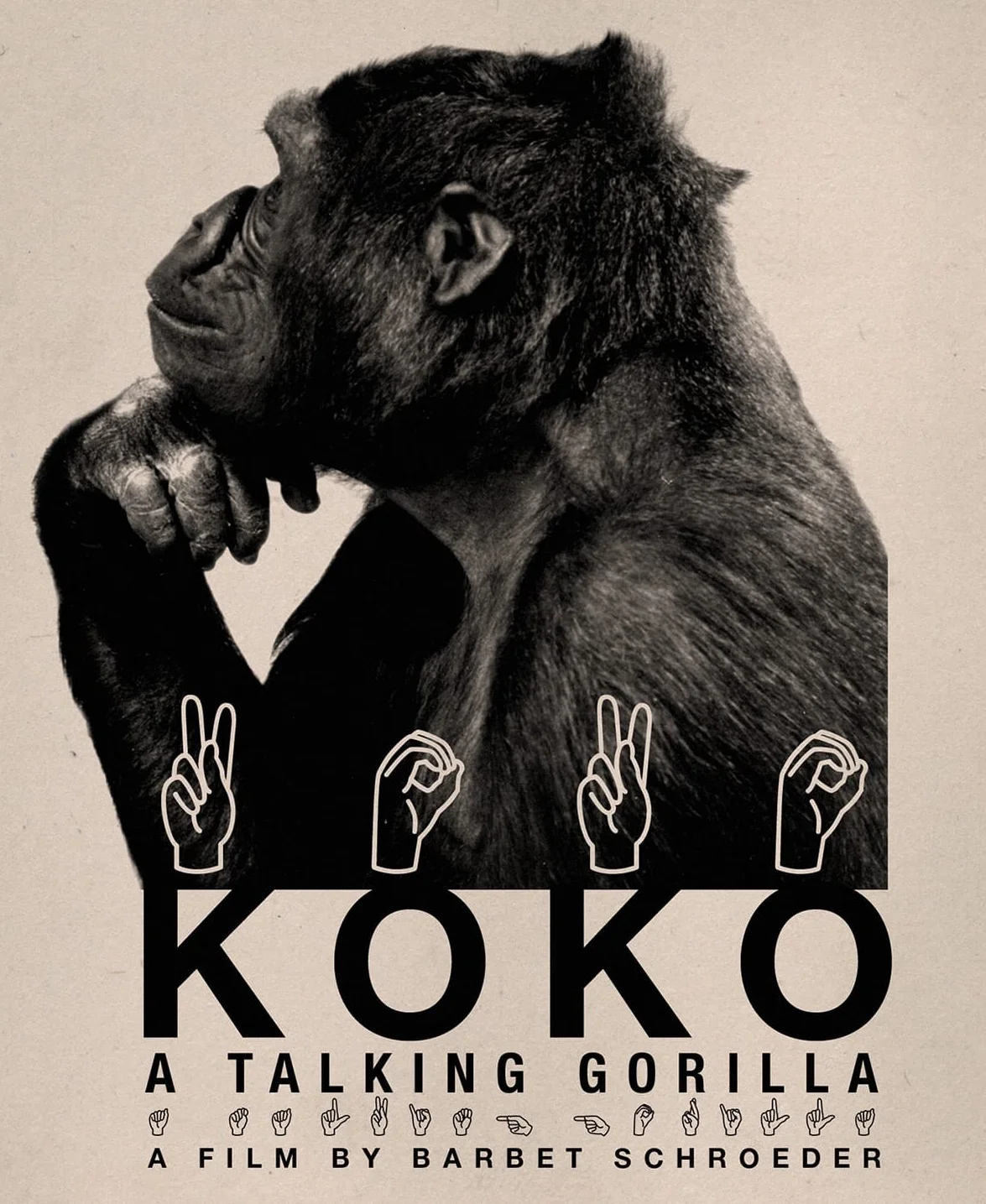
8/21:
Koko: A Talking Gorilla?
Um, they mean a communicating gorilla because she certainly doesn't talk. Because I saw the fingerspelling signs next to the
letters on the DVD cover, I was curious to see if Koko could do it. Well, it never happened. So much for being tricked.
Because of Koko's thick hands, it's hard to make out her signs and whether any of them is distinct.
The idea of teaching Koko sign language is keen and all, but I'll have to say it will take some generations
for gorillas to be able to communicate. Then again, I fail to see the point which is why Dian Fossey was adamant about
refusing Barbet Schroeder the privilege of visiting the mountain gorillas in Africa.
Trying to make people out of gorillas is a ludicrous idea. They're animals, and that's how nature shaped them to be.
I'm not convinced by Koko's display of sign language; it's just mimicry and memorization based on the correspondence between
sounds and signs. Francine "Penny" Patterson does too much work for Koko through operant conditioning
via food. If left alone, Koko won't make signs out of her own volition.
Born in 1971, Koko lived for forty-six years, passing away two years ago. His companion, Michael, also died in 2000. The
documentary was produced in 1978, and it's safe to say there's been a lot of progress since then. Koko built up a working
knowledge of over 1,000 signs and understood approximately 2,000 words of spoken English. However, she never matured to the
point of using them in a conversational manner.
As for the documentary, it's interesting but badly edited. I'll like to hear more facts about gorillas and their
history. Watching Koko interact with Penny is great, but the heavy amount of repetition of their work dooms my attention
span. Even Koko looks bored by it. Penny's statements about gorillas are wacky to listen to. Worse is the need to put makeup
on Koko's face.
All in all, teaching gorillas a new language is one thing, but messing with their heads is another.
Leaving Neverland (2019)
Rate:
8
Viewed:
5/25

5/25:
"Where there's smoke, there's fire."
That's usually true when it comes to celebrities, athletes, politicians, and rich people. The more accusers there
are, the stronger the guilt is. However, because of their insane wealth, they're able to spend a lot on lawyers to
defend themselves to death and eventually get away with it. Sometimes, settlements are reached, but
almost always, there's a non-disclosure agreement in place. As a result, we'll never know.
This Michael Jackson thing was going on for decades, and it was common knowledge that he was a pedophile. Of
course, his marriage to Lisa Marie Presley was a complete sham; anyone could've seen that a mile away. The
two court cases helped strengthen Michael Jackson's disreputation on top of his bizarre behavior in public and
how much he loved to grab his crotch in concerts. There was even a multi-million-dollar settlement with one of
the accusers that pretty much sealed it. The die-hard fans who believe in Michael Jackson's innocence are
totally clueless and brainwashed because they're thinking of his music and anything else that's fame-related.
Leaving Neverland finally confirmed everything for me that was going on. I wasn't into Michael Jackson
back then, but he was inescapable as far as pop culture was concerned. Among the oddest things about him was
being surrounded with little boys. There was always a different kid per year, and sometimes, I thought
that was his son. After watching the documentary, it looks like the victims numbered in the dozens, if
not more. There's no doubt of Macaulay Culkin and possibly Corey Feldman being among them; they just won't
admit the truth, preferring to take their secrets to the grave.
I'm docking two points from my rating for the documentary due to technical reasons. For starters, it's too long:
four hours. A lot of irrelevant stuff was touched upon. Not only that, there were worthless participants
such as wives and siblings of sex abuse victims. The worst was listening to Amanda Robson when I wanted
her to shut the hell up and disappear.
I don't want to take anything away from Wade Robson and James Safechuck, but they've got to speak faster
and get to the point instead of drawing out every word and every sentence at least two times longer than necessary.
When they went into the details of the abuse, it was too general. Go to the specifics; the more, the better.
This way, Michael Jackson becomes guiltier, and that should've been the main focus of the documentary.
What do I think overall? Obviously, everybody is stupid and only went along with it because they were blinded
by fame and wanted to further the two boys' ambitions. This happens with nearly every accuser: s/he waits
for decades to speak out after their careers have fizzled out, the marketing opportunities have dried up, and/or
the celebrities are finally dead. On the contrary, if they found success from the get-go, nothing would ever
come to light. It's simple as that. Probably for every public accusation, there are 10,000 that don't make through.
All in all, Leaving Neverland successfully paints Michael Jackson as the King of Raping Little Boys.
Legacy (2000)
Rate:
8
Viewed:
7/05
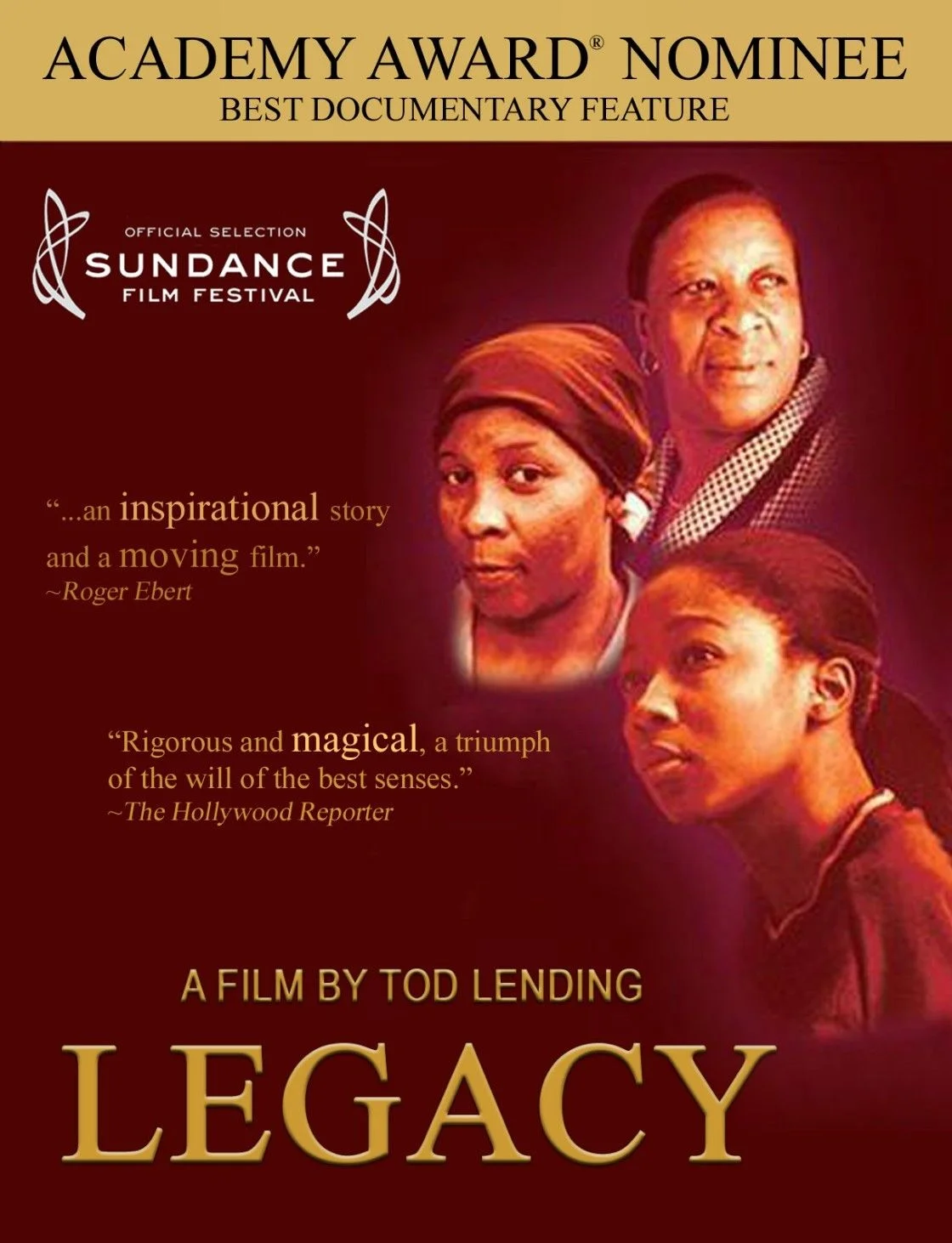
7/05:
Legacy is about a struggling black family.
Although the documentary starts off badly in the first 45 minutes, the quality improves, and there's a strong finish.
While watching it, I had been thinking, "Am I supposed to feel sorry for these people?"
I like the concept of how one slain son has an impact on the family by infusing hope for a change.
All in all, Legacy is a compelling documentary about what it's like to be black and live in the projects.
Listen to Me Marlon (2015)
Rate:
5
Viewed:
1/24
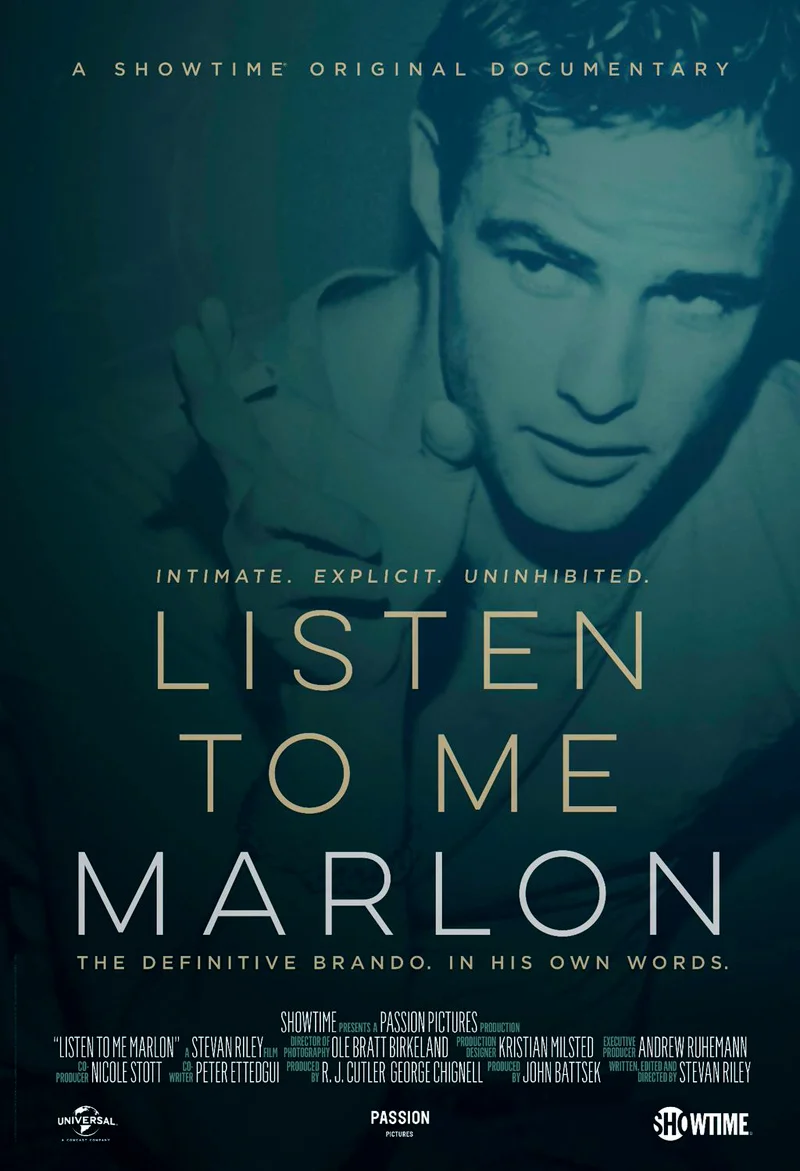
1/24:
Listen to Me Marlon is pointless.
One critic said it was "the greatest, most searching documentary of an actor ever put on film." Uh, let me
guess...he doesn't read books. All of the information herein has already been known for decades. Sure, there's
a new footage here and there, most especially the house he lived in, but really, to sit through this 103 minutes
of nothing? I can do without the digitalized image of his head.
At one point, the actor said he had nothing to do with the failure of
Mutiny on the Bounty. Wrong, apart from the unpredictable weather,
script issues, and the challenges of shooting in Tahiti, Brando was 100% the reason why. The movie ruined his
career and therefore his reputation. It took him a decade to rise from the dead when he did
The Godfather.
All in all, if you want to start somewhere, then I recommend you to check out the actor's autobiography
Songs My Mother Taught Me and Conversations with Brando by Lawrence Grobel which contain more
revealing information than Listen to Me Marlon.
Long Shots: The Life and Times of the
American Basketball Association (1997)
Rate:
9
Viewed:
9/25

9/25:
I remember watching a great documentary on HBO called
Long Shots: The Life and Times of the American Basketball Association.
Everybody has done an outstanding job of explaining the history of ABA from 1967 to 1976. It used to be a
radical league with different styles that we take for granted today such the three-point line, faster pace
of play, high-scoring competitions, the slam dunk contest, and the high school draft rule, allowing players
like Kobe Bryant and LeBron James to go straight to NBA after high school graduation. Who can also forget
the red, white, and blue basketball?
Some ABA teams have survived the merger, and they include San Antonio Spurs, Indiana Pacers, Denver Nuggets,
and Brooklyn Nets (it used to be New York and then New Jersey). The most famous player it ever had
is Julius "Dr. J" Erving who was a way better dunker than Michael Jordan. There are other standouts like
Connie "The Hawk" Hawkins, Dan Issel, Roger Brown, Rick Barry, and George "The Iceman" Gervin.
All in all, Long Shots: The Life and Times of the American Basketball Association is a can't-miss.
Looking for Richard (1996)
Rate:
6
Viewed:
2/25

2/25:
Looking for Richard is confusing and weird.
Tony Montana as Richard III? I don't think so. Al Pacino asked, "Then why is it Shakespeare's most popular
play?" No way. That'll be Romeo and Juliet. If not, then Hamlet. Surprisingly, after looking
up the correct answer on the internet, it turns out to be A Midsummer Night's Dream while the other
two are back and forth for 2nd place. Richard III? It's not even in the top ten.
That being said, I don't really care. It's not even universal or relevant. This historical stuff
happened almost 600 years ago. Who cares? Move on. If you don't believe me, then we can look at only two
films. Ian McKellen was the last one to do it in 1995, and nobody cared, resulting in box office of $2.7
million. Before him was Laurence Olivier, and again, nobody cared, hence $2.6 million in box office which
pretty much ended his directorial career of Shakespearean films.
"We're making a documentary about making Shakespeare accessible to people." That's funny, but nobody wants to
see Shakespeare anything. They're too boring and too hard to get into. One said, "You shouldn't have to understand
every single word. It doesn't matter. As long as you get the gist of it." Yeah, wow...I suppose I'll just
look at the book jacket and get the gist of the play without ever reading the entire thing. Plus, it's been
done to death. How many versions in however many mediums must we endure?
Oh, yeah...did the play ever get produced? Nope. It was going to be done on film, but Al Pacino decided not
to because he found Laurence Olivier's Richard III hard to beat. Of
course, and I thought the whole time, "Why not refer to it as the source if he's confused about something?" No
matter how impressive the cast was (Al Pacino, Alec Baldwin, Kevin Spacey, Harris Yulin, Winona Ryder, Paul
Guilfoyle, Kevin Conway, and so on), I wouldn't be breathless in wanting to see it.
All in all, the best part is when somebody asked at the end of Looking for Richard, "Is this it?" and
the guy next to him said, "I hope so."
Madonna: Truth or Dare (1991)
Rate:
3
Viewed:
8/21
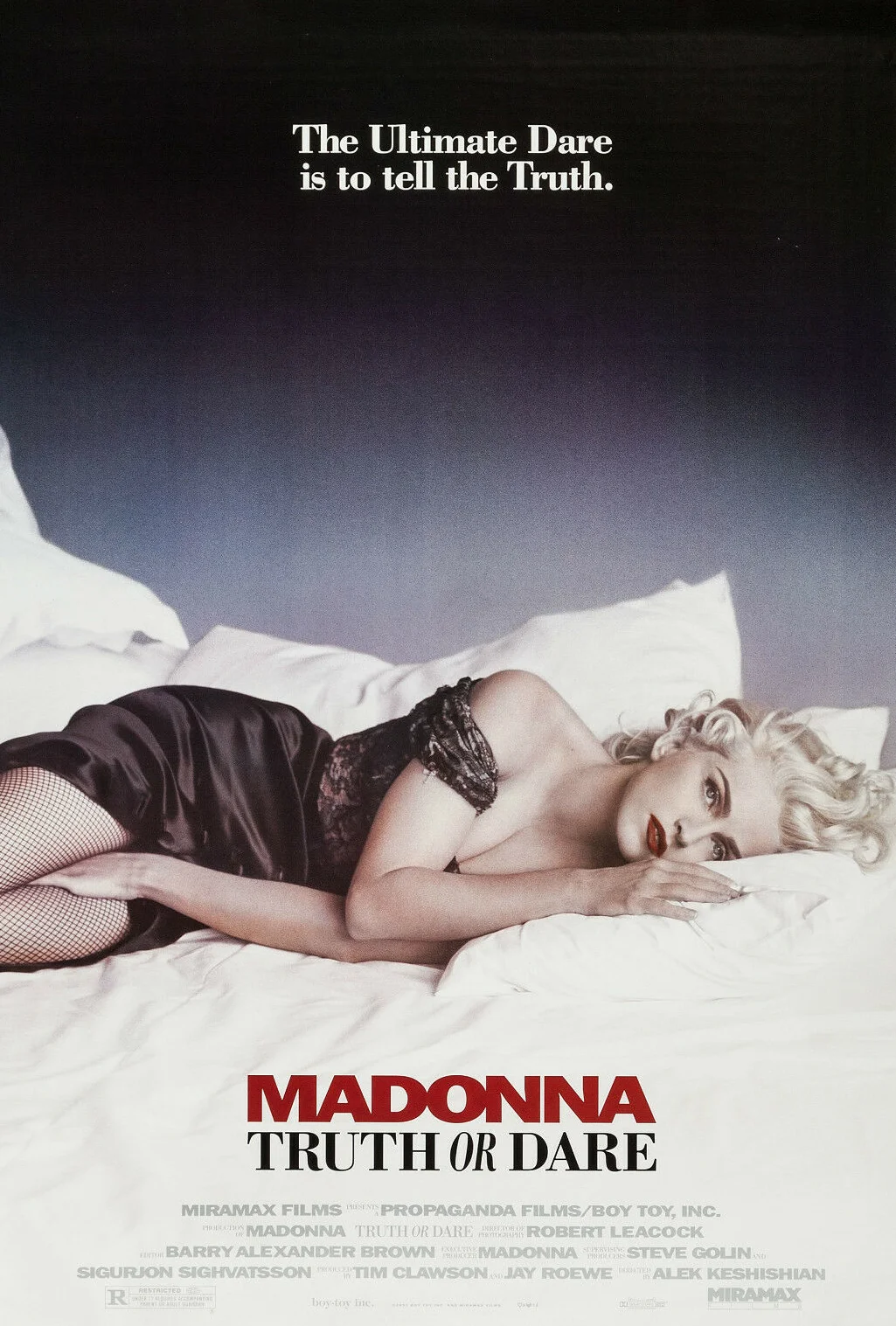
8/21:
Well, the contest is officially over: the worst documentary of 1991 goes to Madonna: Truth or Dare.
The trouble with Madonna is virtually zero sex appeal. She tries so hard that it always backfires on her.
Often wanting to be the next Marilyn Monroe in music and motion pictures, Madonna fails on many levels, and it has
everything to do with lack of substance. Hence, I view her more of a shrewd businessperson, knowing what
works and doesn't work with the sheeples, regardless of quality and lasting impact.
At least, it's nice to see some real stars such as Warren Beatty (a notoriously private creep; I'm surprised that
he allowed himself to appear, but he threatened to sue Madonna if certain scenes weren't removed), Al Pacino, and
Antonio Banderas. The first two probably have a lot to do with Dick Tracy
which was filmed in 1990. There's an awkward moment when Kevin Costner made a remark about Madonna's show
being "neat." In other words, it's his polite way of saying, "It sucked," and I agree with him.
Having seen many movies which starred Madonna, I still don't get it. They've always been shallow and random. I
lived through the 80's and 90's and knew Madonna was a big star. Yet nothing she did impressed me; she wasn't on
the same level with Michael Jackson or Prince as far as talent went. That's why she faded away after the mid 90's.
For the most part, Madonna: Truth or Dare is tough to watch. The first hour is tedious, but the second hour
turns into unbearable, especially when it comes to Madonna's tasteless visit to her mother's grave. The
dominant theme of her behavior is narcissism which was captured in 250 hours of footage. Hence, there's a brief
moment that sums up Madonna in a nutshell, and it's 100% dead-on. It must have been a nightmare to put the
documentary together in the editing room.
All in all, Madonna: Truth or Dare equals vain.
The Man Who Got Carter (2018)
Rate:
5
Viewed:
7/25
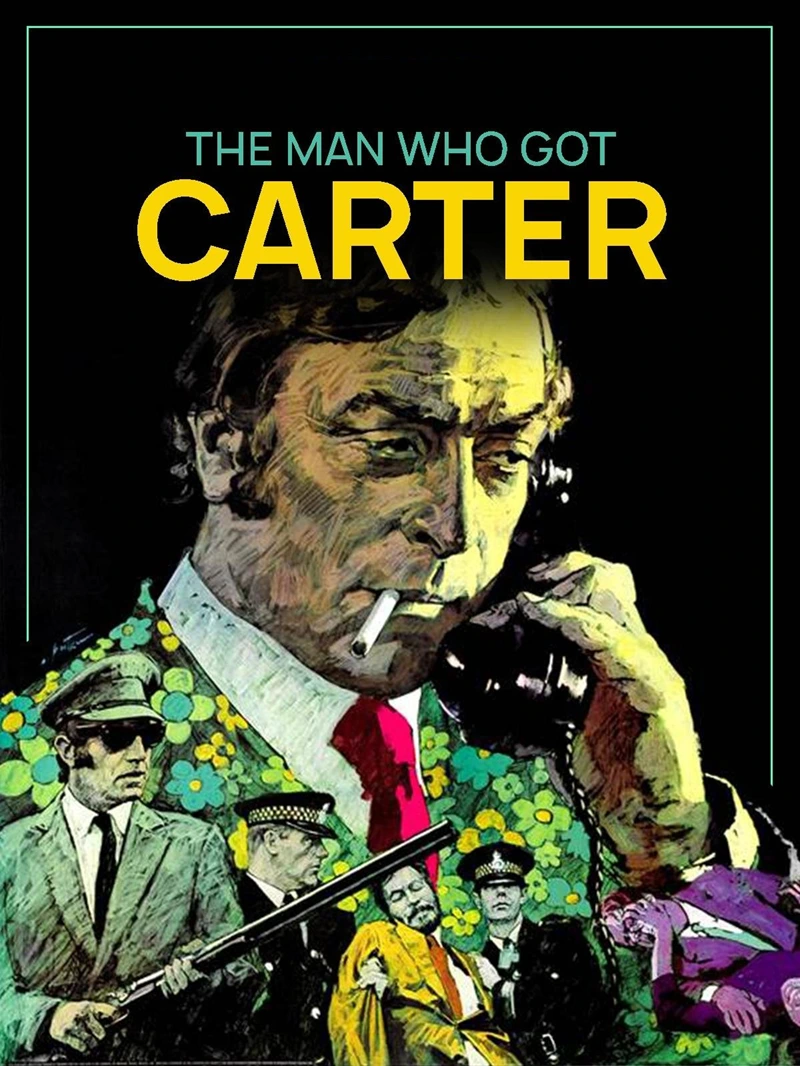
7/25:
The Man Who Got Carter is disappointing.
It's because I thought the documentary would talk about the making of
Get Carter. I consider that to be one of the best British movies ever
made which showcased the number one performance of Michael Caine's career. Even the poster of
The Man Who Got Carter had me hoodwinked.
Instead, it talks about Michael Klinger (uh...who?). Yes, the documentary is informative in spots, but can it
with the adulation. That's not a substitute for substance. Therefore, facts should be presented in terms of
what Michael Klinger had accomplished throughout his career. Make no mistake: his success in the film business
pretty much ended by the time Get Carter was theatrically released.
I saw Repulsion, Cul-de-sac, and
Get Carter before but wasn't aware that Michael Klinger
was the driving force behind them in terms of financing. However, he didn't discover Roger
Moore who had been working for a long time before then. The documentary fails to mention on purpose that
Michael Kilnger started out in porn by opening a strip club and producing crappy sexploitation pictures.
All in all, don't be fooled by the title; The Man Who Got Carter won't go there that much.
March of the Penguins (2005)
Rate:
9
Viewed:
3/06
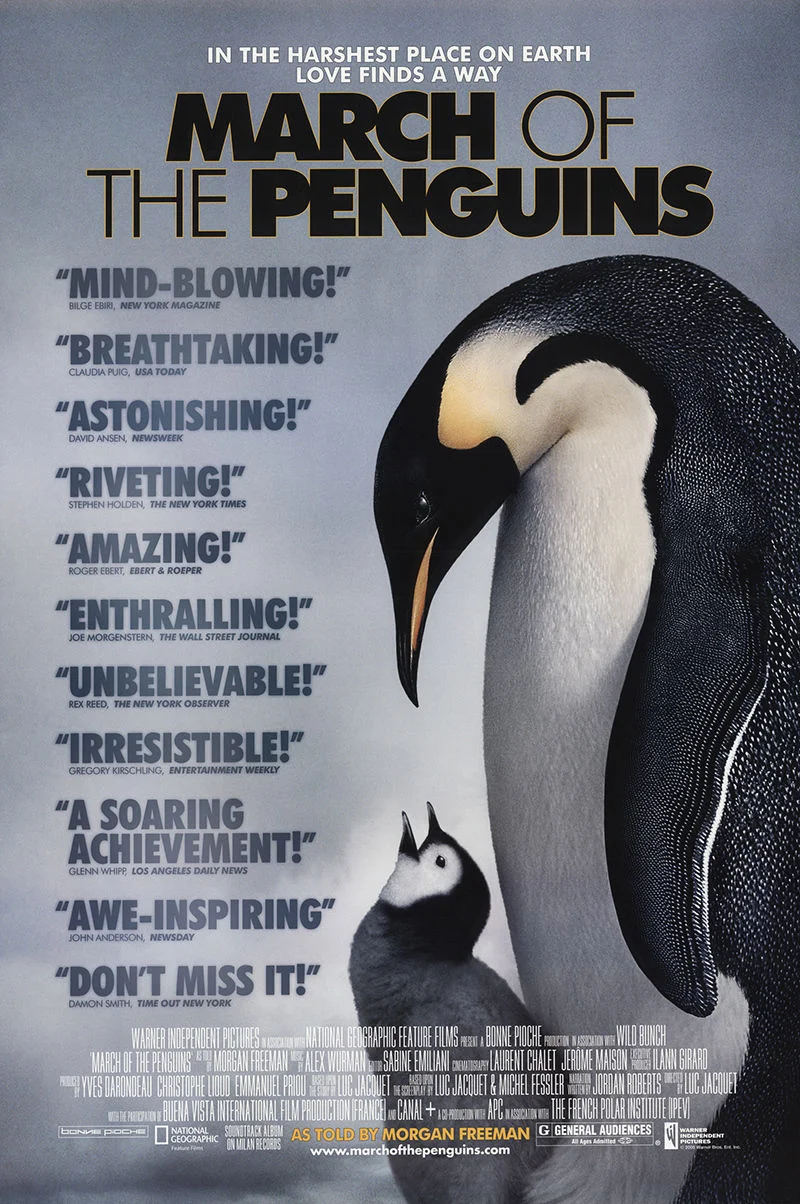
3/06:
Morgan Freeman narrates a heartwarming story about the survival of penguins in March of the Penguins.
It's not a surprise the Oscar winner for Best Documentary outgrossed all of the five Best Picture nominees. I mean,
this is what people want to see. However, it can be slow at times, and I'm let down by several CGI insertions of fake
penguins for the underwater scenes. Why do that? Just stick with reality, folks.
All in all, I would've gladly picked March of the Penguins over Crash for Best Picture.
Marjoe (1972)
Rate:
9
Viewed:
7/24

7/24:
Religion has always been a scam.
Marjoe Gortner illustrates how in the Academy Award-winning documentary called Marjoe. Those who fell for
it have to be feeling stupid, especially when he repeated his preaching style in front of his dog at the end.
It's all a joke. In fact, Marjoe Gortner could've been an actor or a rock 'n' roll musician instead. That's exactly what
he did after deciding to give up his old life. The documentary is hard to find, having been barely
shown to the South during the 70's in fear of causing an outrage.
When I watched some of the idiots shaking their bodies violently upon being touched by Marjoe, I thought about why they
were doing that and then realized it's a learned behavior as a result of watching others doing the same thing. They
actually thought it's Jesus Christ coming through Marjoe Gortner in a portal-like manner.
All in all, Marjoe Gortner is a rarity because he had the balls to come out in public and say, "Yeah, man. The whole thing
is a con."
Murderball (2005)
Rate:
7
Viewed:
7/07

7/07:
Murderball provides insight into the obscure world of wheelchair rugby among the physically disabled athletes.
If there's a memorable part, it's the sex lives of quadriplegic people. Yet the documentary feels unfulfilling. It's
only 86 minutes long, hence the need for more running time. Some characters are underdeveloped while a few have too much
screen time. The odious MTV label doesn't help, either.
In spite of the renegade attitude the athletes carry, I feel the presentation has been one-sided. It'll be
nice to hear more about different stuff besides the sport. How do quadriplegic people deal with bedsores,
depression, alienation, getting through the day, etc.? As for the sport of wheelchair rugby, they don't explain the rules
that much. What happens if a player is knocked down? Is there a penalty? A free possession? His wheelchair taken away or what?
All in all, Murderball gives people in wheelchair hope by finding a purpose in their lives rather
than wallowing in depression by asking themselves the unanswerable question: "Why did this happen to me?"
Muscles & Mayhem: An Unauthorized
Story of American Gladiators (2023)
Rate:
10
Viewed:
8/23
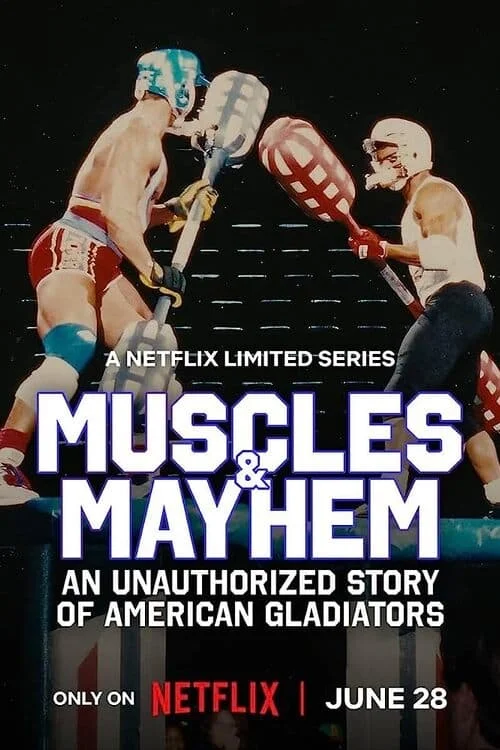
8/23:
Muscles & Mayhem: An Unauthorized Story of American Gladiators is a comprehensive documentary about
what happened to the once-popular show.
I used to watch American Gladiators and did harbor thoughts of wanting to participate one day. For every
event, I developed strategies of how to survive and analyzed what the contenders did wrong. I rooted for them
because the gladiators were difficult to beat. For some reason, I grew up and forgot all about it.
Looking through the offerings in Netflix's library of videos,
Muscles & Mayhem: An Unauthorized Story of American Gladiators brought back memories, and I decided to
check it out. I remember the names: Nitro, Thunder, Zap, Ice, Malibu, Tower, Blaze, Sky, etc. I even played
the Nintendo game which is among the hardest ever.
The revelations made by the gladiators are news to me; I didn't know they suffered injuries to put up with the
demands of the game. Of course, they looked great back then, but I wasn't aware they were on steroids. At
least, they were forthcoming about it in the documentary. The dirty business side is also touched on, signaling
the end of American Gladiators.
All in all, Muscles & Mayhem: An Unauthorized Story of American Gladiators shows how a documentary should
be done the right way.
My Voyage to Italy (1999)
Rate:
6
Viewed:
6/25
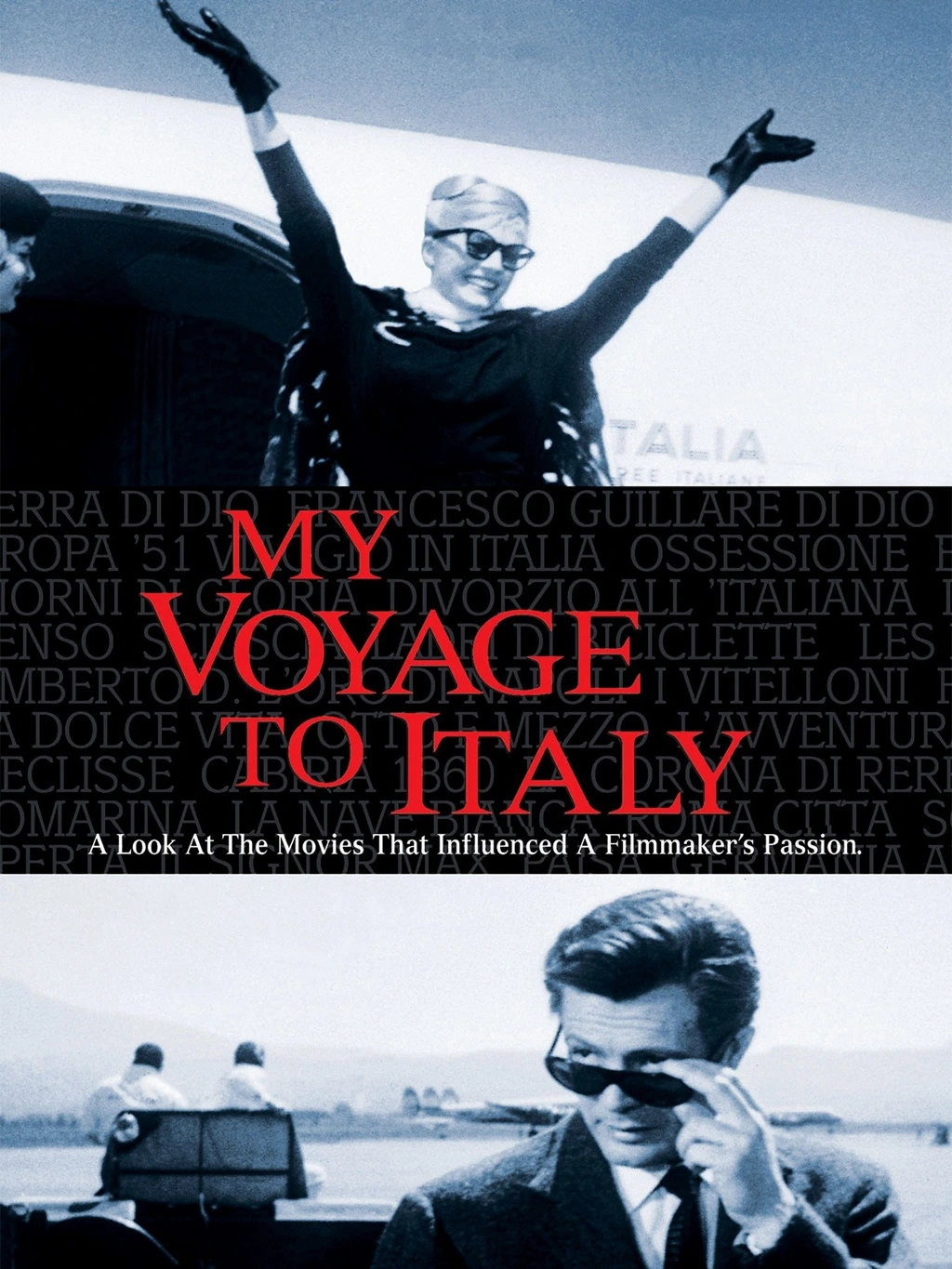
6/25:
I struggled with what rating to give for My Voyage to Italy before settling on '6' when it should've
been '8'.
Although I appreciate what Martin Scorsese did and I am interested in seeing a French and a Russian equivalents,
the documentary is way too long: four hours and six minutes. That's because some of the clips from various
Italian movies kept going on and on to the point of spoiling the story for me. There's barely much analysis
from Martin Scorsese at the same time.
Sometimes, it felt like I was watching an entire film instead of the documentary. I wonder why Martin Scorsese
decided to stop at 1963 when there's obviously more left during the 60's with zero mention
of La ciociara which won Sophia Loren the Oscar for Best Actress. If the topic is supposed to be
Italian neorealism, it really ended in 1954 with Journey to Italy; Federico Fellini's films for the
most part don't qualify.
To remedy the problem, Martin Scorsese should've limited the total time of three minutes per film. I just wanted to
sample as much as I could to see if there was anything interesting. Afterwards, I've decided on Roberto
Rossellini's works with Ingrid Bergman only because I hadn't seen them. As for the rest, I simply say, "Thanks,
but no thanks."
To be honest with you, I find Italian cinema overrated because these films are often slow, boring,
and long, being all about images and abstract ideas. Luchino Visconti, Federico Fellini, and Michelangelo
Antonioni....absolutely not. I don't like their stuff. Boring, boring, boring! That's why they are largely
forgotten today. Let me put this another way: if Martin Scorsese loved them so much, then why
didn't he make something similar? The answer is: they have no commercial value. To see what I mean, check out
Zabriskie Point and
Professione: reporter.
All in all, it was a good idea to make My Voyage to Italy, but the execution is poor.
Night Stalker:
The Hunt for a Serial Killer (2021)
Rate:
7
Viewed:
9/21
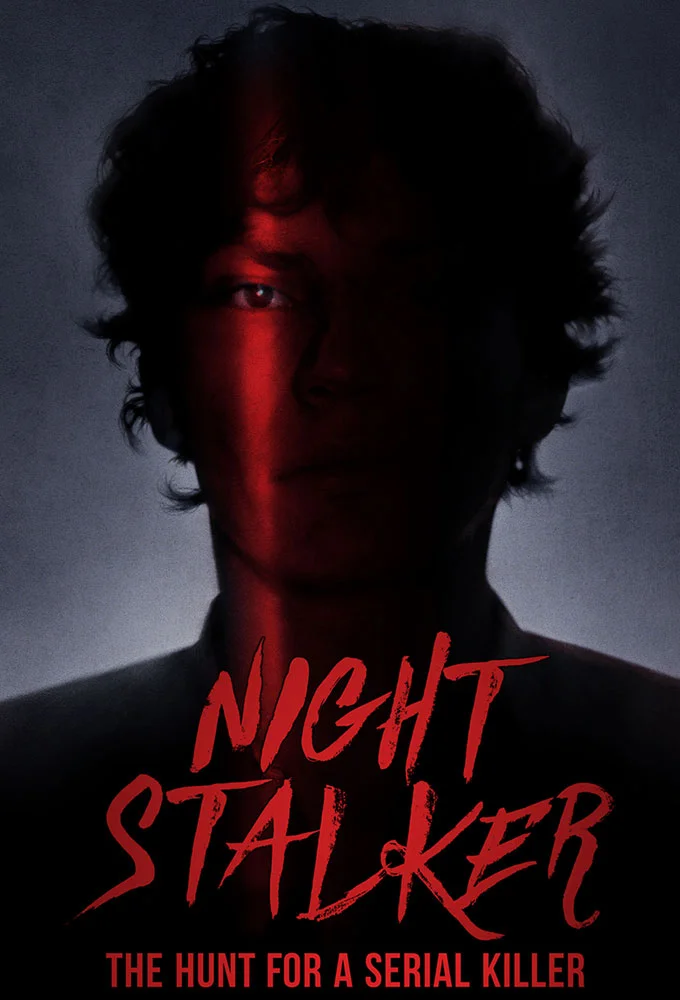
9/21:
Knowing all about the case of Richard Ramirez for decades, I thought I might want to check out
Night Stalker: The Hunt for a Serial Killer on Netflix if there had been anything new.
In conclusion, I have to say, "Not much." There's no new information from sentencing to the end of his life. It's
like a book had been written in 1989 and that's it for the filmmakers to work with. At least, I get to see the lead
detectives of the case, and the explanation of how Richard Ramirez was apprehended is the clearest I've seen.
Given the nature and seriousness of the crimes, the stylized editing is inappropriate. So is the inclusion of news
reporters of the time. The fillers are stupid and pointless. There's the repeated shot of a dropped bloody hammer.
What's it supposed to signify? Also, there are clips of detectives driving around. It's like watching an Errol
Morris documentary.
Admitting to a few major mistakes that were made during the case, the detectives should've had the most say in
how the documentary should be presented nationally out of respect for the victims and their families. Instead
of "the suspect broke into the house, he beat them, he shot them, he sexually assaulted them, etc.," I want to
know exactly how he did it, why they were unaware of him in the house, and how come there was no witness almost
every single time.
One thing that bothered me is the detectives had a rock-solid lead in regard to the dentist Richard Ramirez was
seeing. They set up a couple of Asian cops in the office to wait for him. Then, the surveillance got called off
after a week or so because it was "too expensive"?!? That's their answer after months of nothing? Unbelievable.
Of course, it's why the citizens of Los Angeles finally caught him, not the cops. The part about a detective
beating the name out of one guy in San Francisco is news to me, and I'm not sure if that's true.
Well, this is ineptitude at work. No wonder why the LAPD fucked up the O.J. Simpson case royally. Even the
detectives couldn't get access to the stolen Toyota for weeks that was driven by the Night Stalker himself which
eventually turned up a dentist's business card. Then, we got the mother of all fuckups: Dianne Feinstein
divulging confidential info to the public that only the cops and the killer could know. When is the corrupt war
profiteer bitch going to die? (2023 Author Note: She finally did; good riddance.)
All in all, Night Stalker: The Hunt for a Serial Killer may be fascinating and revelatory here and there,
but Netflix is a poor choice to present it in a responsible manner; hence, I advise you to read Philip Carlo's
The Night Stalker: The Life and Crimes of Richard Ramirez.
Nuit et brouillard (1956)
Rate:
10
Viewed:
1/21
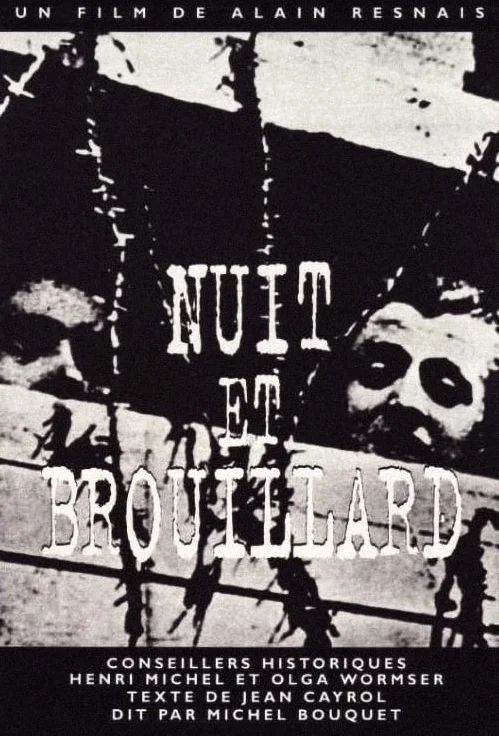
1/21:
Made approximately ten years after the Holocaust, Nuit et brouillard, French for Night and Fog,
is one of the earliest documentaries about what happened which shows the process at various concentration
camps with footage of Auschwitz-Birkenau and Majdanek.
It's only thirty-two minutes long but packs as much power as
Schindler's List. The death photos are unparalleled, underscoring the
stupidity of the whole thing. Hence, I don't get these Holocaust deniers; massive amount of evidence is there
for the taking to prove the genocide did happen. People can't make this stuff up and expect it to stick
worldwide.
Getting Jean Cayrol, who survived the Mauthausen-Gusen concentration camp, to narrate Nuit et brouillard
is of the utmost importance because the accounts have to be seen through somebody who knew the horrors intimately.
He sometimes provides dry wit to break up the depression of the running footage. By the way, the film title is
taken from his published poems.
A major controversy emerged after the filmmakers submitted the documentary at the Cannes Film Festival. It's
because a French gendarme, who can be identified by his kepi, is shown to have participated in the Holocaust.
Originally, the image was censored by a long black structural beam over the kepi which is now restored. Seeing
that, the censors, with the help of the German embassy in France, refused the screening of
Nuit et brouillard. It was eventually shown outside of the competition.
The truth is the French, out of their own volition, persecuted and deported hundreds of thousands of Jews
from 1940 to 1944. It was done under the tutelage of Marshal Philippe Pétain who ran the Nazis'
puppet Vichy government when it, in fact, represented the French State the whole time. All post-WWII French
governments until 1995 wouldn't admit to the truth of what happened. More than 340,000 Jews lived in France,
and approximately 72,500 of the deported 75,000 were killed in death camps.
All in all, Nuit et brouillard is a must-see documentary for the sake of history, and along with the
Dreyfus Affair, France looks bad as a result.
Incident at Oglala (1992)
Rate:
5
Viewed:
9/25, 9/25
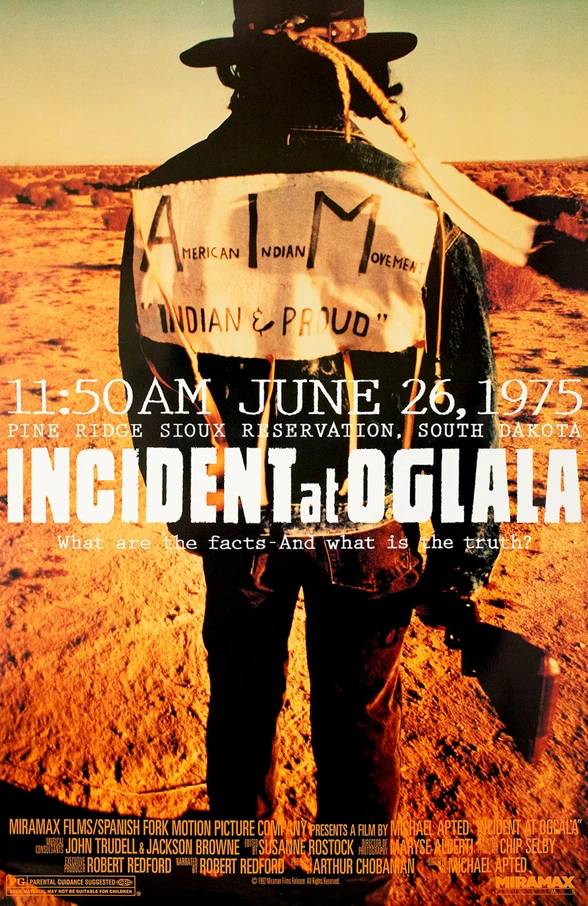
9/25:
I'm always leery when it comes to documentaries about murderers currently in prison and there's lot of
"he said, he said" stuff being thrown around.
To cite a couple of examples, there was a documentary called
Paradise Lost: The Child Murders at Robin Hood Hills
and a movie called The Hurricane starring Denzel Washington. Both had
a specific agenda that wanted me to be convinced that these guys were wrongfully convicted for something they
never did because of this or that reason. But both narratives turned out to be 100% false. In other
words, they actually committed the murders.
Yet killers in both cases eventually went free. Why? There were enough believers including celebrities and,
more importantly, money that set the wheels in motion. Their acquittals wasn't because of innocence but for
technical legal reasons which meant they were still guilty of the murders. That's how I felt while watching
Incident at Oglala.
There's too much obfuscation of the truth by Leonard Peltier's supporters that I had to research the case deeply
afterwards and see what exactly the story was. At the same time, there were three aspects of the case that
bothered me a lot: the cowboy boots being the chief reason how the whole thing got started, the "Mr. X,"
and the "Mr. X" driving away in a red pickup truck scot-free afterwards. The more I found out, the clearer
that Leonard Peltier did commit the murder of at least one FBI agent; if not, he's at least guilty of aiding
and abetting Robert Robideau and Darrelle "Dino" Butler the entire time.
If it was so...so...so obvious that the three men got railroaded by the U.S. government in 1975, then surely
people would've wised up to that fact in the ensuing years, yet all appeals, which numbered more than twenty,
had been reviewed and denied and every single U.S. President refused to grant clemency to Leonard Peltier
until this year when Joe Biden finally did it [I would take that with a huge grain of salt because he had
been obviously senile for many years and was being treated as a puppet the entire time].
Let's begin with the first and the most important question: what actually happened on June 26, 1975? That
shouldn't be hard to answer, but the documentary made it so, thanks to Michael Apted who's quite poor at
this sort of thing that he actually fucked up the entire mission of the
Up series. Okay, here it goes:
In separate unmarked cars, FBI Special Agents Jack Coler and Ronald Williams drove into the Jumping Bull
Compound on Pine Ridge Indian Reservation in South Dakota at approximately 11:50 AM since they had the
jurisdiction and warrant to arrest Jimmy Eagle, whom they spotted driving a red pickup truck (really a suburban)
with a white top, after receiving a report that he was involved with three other men for the kidnapping, robbing,
and beating of two individuals on June 23. Immediately, they were shot upon after three men
(Leonard Peltier, Norman Charles, and Joe Stuntz who eventually died in the battle) exited the suburban (Robert
Robideau and Dino Butler joined in soon since they were at nearby camp) which came to be at least 125 bullets
in total versus the FBI agents' 5, rendering them virtually defenseless. Minutes later, at point-blank range,
Jack Coler was shot twice in the head, and Ronald Williams put his right hand out in a defensive position and
was shot through it to his head. Before that, they had been shot and lain wounded.
Here's the issue: if Robert Robideau, Dino Butler, and Leonard Peltier were claiming self-defense and they're
(as a matter of fact, there were at least four more others involved) were at least 200 yards away when the
gunfire battle happened, then why kill the two FBI agents after they had been already shot? In other words,
there couldn't be any self-defense when threat of them had been successfully eliminated.
A witness testified these three were the only ones who walked to the FBI agents lying on the
ground along with a confirmed fingerprint match of Robert Robideau inside Ronald Williams' car. Dino Butler
eventually refused to play along with the "Mr. X" theory, having officially rejected it outright in 1995 and
calling Robert Robideau and Leonard Peltier liars by saying:
"Well, there is no 'Mr. X.' There was no man coming to our camp that day bringing dynamite...to create this lie
to show that someone else pulled the trigger. The final agreement in that meeting was that the 'Mr. X' idea
wouldn't be used because it was a lie...that was all totally false. Totally untrue. That never happened."
Also, Robert Robideau confessed to committing the murders years later and, had it happened again, said, "Those
FBI agents would be dead again." He also added, "They were shot in the head at close range." Therefore, his
statements proved all three were guilty of murdering FBI Special Agents Jack Coler and Ronald Williams.
Regardless, Leonard Peltier kept changing his version of what happened so many times to prove his innocence
that they ended up contradicting each other. In 2002, the Indian community admitted to knowing he did
it. And let's not forget that Leonard Peltier, along with other American Indian Movement (AIM) members,
ordered the murder of Anna Mae Aquash because he mistakenly thought she was an FBI informant on top of
confessing to her what he did on June 26, 1975.
During three trials for the murder of Anna Mae Aquash, Ka-Mook Nichols, who's Dennis Banks' ex-wife, testified
what Leonard Peltier said to her once: "The motherfucker [Ronald Williams] was begging for his life, but I shot
him anyway." Others had supported it as well. By the way, Leonard Peltier was the only one carrying an AR-15
rifle, and at least three bullets, namely .223, were fired in close range from that gun.
American Indian journalist-founder Paul DeMain of News From Indian Country had defended Leonard Peltier
for years but changed his position completely based on the "result of his own investigations and the numerous
people with knowledge about the case who he says came forward and implicated Peltier."
As for the murders that happened on Pine Ridge Indian Reservation prior to June 26, 1975, former FBI agent
Joseph Trimbach said that dozens of so-called unsolved murders on the reservation were mostly fabricated
by AIM's top leaders in an attempt to discredit the FBI and also added, "Many of the murders that did actually
occur were solved and were attributed to things like accidents, the weather and fights and alcohol-related
causes, not the FBI. And some of the murders were attributed to AIM."
All in all, Incident at Oglala isn't credible but serves a good starting point for those who aren't
aware of what happened and should be advised to perform further due diligence.
9/25:
I rewatched Incident at Oglala, and it's more clear now.
However, they've made what happened so murky that the documentary is obviously slanted. Yes, I agree that
what the FBI did with Myrtle Poor Bear was illegal, but Leonard Peltier was being wanted for a lot of crimes,
besides what happened at the Jumping Bull Compound, including shooting at an off-duty police officer in Milwaukee.
The last thirty minutes is basically nitpicking over technical stuff. It doesn't matter anyway because on
September 22, 1991, Leonard Peltier admitted to 60 Minutes that he fired at the two agents on
June 26, 1975.
All in all, like I said before, Incident at Oglala doesn't tell the full story on purpose.
Olympia (1938)
Rate:
8
Viewed:
6/14

6/14:
After watching the two parts of Olympia (in German, Olympia 1. Teil — Fest der Völker and
Olympia 2. Teil — Fest der Schönheit) by Leni Riefenstahl, I can safely say I've seen more footage of
the 1936 Berlin's Olympics Games than all of the Olympics Games combined from the last twenty-five years.
It's surprising to see how little, except for the brazen cheating, bribery, and corruption, has changed since then. Although
there are a multitude of powerful, moving images in both parts, longueurs abound in between. It's somewhat a back-and-forth
challenge of getting through the documentary.
No matter what, it's still an important historical piece of work that captures a period of time. To choose, I like the second
part more even though the first has some footage of Jesse Owens. I'm still amazed how they did the high jump and the pole vault
events. There's no landing pad, either! Looking at the people in the stands, they were well-dressed for a sporting event.
On the other hand, from a technical standpoint, Leni Riefenstahl was way ahead of her time, implementing many stylistic
shots that are revolutionary and incomparable. This alone is the reason why Olympia is a must-see. There's no slant or
bigotry for a moment.
All in all, Olympia is a great cinematic experience.
On Any Sunday (1971)
Rate:
10
Viewed:
4/14
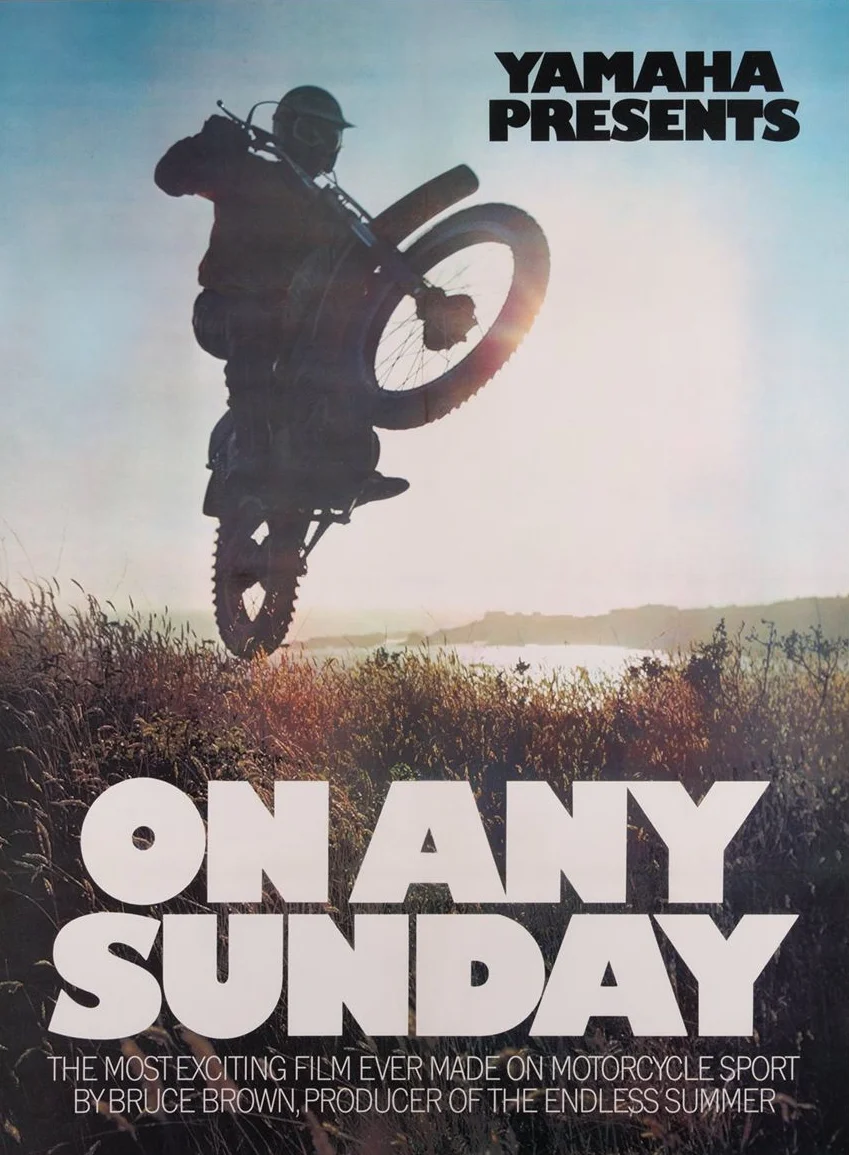
4/14:
What's one thing the King of Cool has that others don't have?
He has his own motorcycle documentary. Steve McQueen does all of his stunts, and they're authentic. He more than
makes up for it in On Any Sunday after not actually having pulled off the iconic jump in
The Great Escape.
Probably the coolest man alive is Malcolm Smith who partakes of everything that's imaginable in motorcycling.
If anyone isn't inspired by the scenes to take up the sport, I suppose nothing else will.
Within ten minutes from the beginning, The Endless Summer immediately
comes to my mind because there's an unmistakable identification of Bruce Brown's documentary style. In
On Any Sunday, you're going to see what a motorcycle can do on any terrain possible, no matter what the
weather is.
Bruce Brown initially sought permission from the Marine Corps at Camp Pendleton to use the beach but got denied.
So, Steve McQueen went over there, and the full nine yards of the beach was magically granted to the director.
That's what being the King of Cool is all about.
All in all, kick back, relax, and enjoy On Any Sunday, one of the fastest and most inspiring documentary
films made.
One Day in September (1999)
Rate:
5
Viewed:
5/19

5/19:
I came straight to One Day in September after seeing
21 Hours at Munich, a 1976 telefilm about the terrorist attack during
the 1972 Summer Olympics, resulting in the murder of eleven Israeli athletes.
While watching the documentary, I honestly hated it, which said nothing substantial, and learned only one thing:
my criticism of 21 Hours at Munich was too harsh because the movie
got many facts correct.
A memo to Ulrich K. Wegener: don't ever laugh about something serious as a terrorist attack. Equally awful is the
highly stylized MTV editing that's complemented with inappropriate rock music. Watching Peter Jennings, Jim Kay,
and others relay the news made me realize they weren't any better than the schlock reporters of today.
If there's nothing new to tell, then don't bother making the documentary just to revive a completely forgotten
event. My pet peeve for such coverage is the little mention of victims. All I heard was Andre Spitzer this
and that, but what about the rest of the ten men killed? Most of the terrorists involved are nameless and have
no stories, too. Instead, the only possible reason why the event generated some attention is the "cool" look of
a white-masked Palestinian who obviously serves as the centerpiece of the movie poster.
Although Jamal Al-Gashey is the sole surviving member of the group that's responsible for the attack, he doesn't
provide anything of value except to clear up some minutiae of how the events went down. All I wanted to hear was
why, but he didn't elaborate much. By the way, the Olympics is a ridiculous sporting spectacle that's never
about peace but rather encourages cheating and corruption, bankrupting most of the host cities and/or nations.
All in all, by minimizing the victims' stories and the reasons why the Palestinians conducted the
terrorist attack, One Day in September ceases to be a fully truthful documentary about what happened.
Paradise Lost: The Child Murders
at Robin Hood Hills (1996)
Rate:
7
Viewed:
1/08

1/08:
Paradise Lost: The Child Murders at Robin Hood Hills is a very good example of propaganda documentary.
Most of the story is tediously told but in a slanted manner. Basically, the goal is to get the boys off for invented reasons:
they wore black, dressed in goth style, and liked heavy metal music, that's all. One thing that bothers me is the way the true
victims are brushed off. Instead, it's all about painting the three convicted boys as victims. Notice the depiction of the
bearded religious father of a deceased child which serves an example of how the facts have been distorted.
Eventually, the whole case is a series of smokes and mirrors for the uninformed audience. That's dangerous thing to do
because they aren't given full set of facts to judge what really happened. Only the jury, after
it's properly selected, can do that. When the evidence was heard, it found the three boys guilty.
To make matters worse is the unethical methods applied by Joe Berlinger and Bruce Sinofsky to turn the documentary
into a one-sided story. Hence, it's propaganda. The message is twisted around to the point that I'm supposed to believe what
the documentary says and that it's only this information I have to go on with about the case.
Now, I did a bit of research by looking up the internet and found a trove of released legal documents. It turns out Damien
Echols is certifiably mentally ill, having been sent to psychiatric hospitals twice by his parents for being a threat
to them. He has a history of attempting to kill his father, setting fires at school, assaulting classmates, believing
he's possessed, drinking blood, and killing animals.
Damien knew a lot of things about the case only the police and anyone who was at the scene of the crime could've known.
Jessie Misskelley confessed to the crime not only once but five times including once in the presence of his lawyer who
advised him not to. All of these three boys were involved in satanic rituals. Despite the revealing information that was not
included in the documentary, there's a group, which involves uneducated celebrities, that's earnest about freeing these convicted
murderers from prison. They've poured millions of dollars into their defense to make it happen. It's both stupid and sad.
All in all, Paradise Lost: The Child Murders at Robin Hood Hills is the best example of using film
as a medium to block out all the facts that don't fit the false narrative.
The Price of Gold (2014)
Rate:
7
Viewed:
3/15

3/15:
I remember the events that unfolded between Tonya Harding and Nancy Kerrigan in 1994.
While listening to the former rivals in The Price of Gold, I took offense when they didn't believe
that Oskana Baiul deserved the gold medal. At the time, I watched the Olympics competition and thought she,
who was in pain the entire time, was the true winner.
The documentary didn't reveal anything new, save for the fact that Tonya Harding looked almost
unrecognizable. I knew Nancy Kerrigan wouldn't appear because it's exactly who she was. She came
out of nowhere to be famous under unfortunate circumstances and then quietly disappeared after the saga was over.
I took points off in my rating because, no matter how many times I heard the story,
it simply failed to explain the sequence of the attack in a clear manner. It's like they rushed through it
and moved straight into the Olympics stuff.
Let's be fair: Tonya Harding had spunk and overcame the impossible to be a national champion in figure
skating. I can understand where she was coming from in terms of looks and class. It's obvious
Nancy Kerrigan was the darling that everybody preferred only to be undone by her offhand snide comments
and bitchy behavior. Do you know why the documentary never aired what she said during the parade in Disneyland?
It's because ESPN is owned by Disney. So much for objectivity.
Tonya Harding came from the gutter and had an abusive childhood, but it doesn't excuse her for the attack
on Nancy Kerrigan. When that happened, it was a moment that changed both of their lives forever. Hence,
whenever people think of figure skating, Tonya Harding and Nancy Kerrigan are the first to come to their
minds for the wrong reasons.
If I have to sum up everything in one word, it'll be "bizzare." The bottom line is: the attack
didn't have to happen. The excessive media attention on those two women was unwarranted and needless because,
all of a sudden, figure skating had become more popular than football which only lasted just a month.
Anyway, what's that stupid ass, Tony Kornheiser, doing in the documentary? He has no shred of credibility
when it comes to making opinions about sports, let alone figure skating. Connie Chung, a horrible interviewer
(her husband happens to be Maury Povich!), looks ridiculous, and Tonya Harding should've punched her lights out.
All in all, The Price of Gold is a decent documentary about what happened with Tonya Harding
and Nancy Kerrigan.
Pumping Iron (1977)
Rate:
8
Viewed:
7/11, 12/20

7/11:
LOOK AT ME!
I AM POSING! DAMMIT.
LOOK AT ME!! F-F-F-F-F-uuuuccckkkkkk!
Pumping Iron is a somewhat good documentary but isn't as deep as I hoped for. While Arnold Schwarzenegger
makes up many stories about himself and how he plays mind games with others, he and his buddies aren't
forthcoming about how they're able to achieve the muscular gains and become massively big.
More specifically, these bodybuilders don't explain their training regimen, diet plans, or anything else.
They're sometimes shown working out although there's not very much to see. Today, we know why, and it's because
of the anabolic-androgenic steroids, human growth hormones (HGH), and other performance-enhancing drugs.
The movie poster is ridiculous. Instead, the tagline should be: "Mind and Steroids: I discovered that the secret
was inside the pills. It was the power of the pills over my body. Only those who are stupid enough to attempt them
have this power."
In all honesty, bodybuilding is a joke, leading to heart attacks and kidney/liver failure. Many don't take the
"sport" seriously which explains why it has stayed underground. Back then, I remember reading
Muscle & Fitness, and it comically tried to promote bodybuilding as an accepted sport for the Olympic
Games given that the only way to do well at it was to ingest massive doses of illegal drugs.
All in all, Pumping Iron would be better if the guys were honest about what it entailed to become a
bodybuilder.
12/20:
Rightly so, Arnold Schwarzenegger is famous for two reasons:
The Terminator and his bodybuilding career.
In fact, he's the standard-bearer of the underground sport, having the most perfect physique although Frank Zane
can give him a run for his money. He was one of the three who ever beat Arnold; the other two were Chet Yorton
and Sergio Oliva. To make his mark in Hollywood, Arnold Schwarzenegger was featured in Pumping Iron, and
the world was never the same again, contributing to the tremendous rise of participation in weightlifting and
fitness gyms.
What sucks about the seminal bodybuilding documentary are the stupid made-up stories and the lack of any insight
into how these guys became big. Now, we know that steroids played a huge role. Arnold himself was a user starting
at age 13, having injected himself with Primobolan, Deca-Durabolin, and Dianabol. The tales about Mike Katz's
missing T-shirt and what Arnold did to deal with the death of his father are fake.
At least, it made Lou Ferrigno famous. He would be cast as the Incredible Hulk shortly afterwards. During the
'75 Mr. Olympia contest, you can see clearly why he lost to Arnold if you compare their backs side by side.
Franco Columbu was simply too short although he went on to win Mr. Olympia two times.
All in all, Pumping Iron is a one-of-a-kind bodybuilding documentary that continues to fascinate
people...er, mostly dumb boys and man-children.
The Real Cancun (2003)
Rate:
1
Viewed:
7/05, 4/07

7/05:
The Real Cancun is about useless college students having a good time during spring break in Cancun, Mexico.
The whole time I asked myself is, "What am I watching this crap for?"
All in all, just throw The Real Cancun in the garbage bin.
4/07:
Trying to remember most of the characters' names in The Real Cancun is a real challenge.
Remember this is group of young adults (read that as "losers") attending college. Yet their level of conversations never
rises above third grade for a minute.
All in all, the spring breaks for college students down in the South have always been filled with sexual assaults, rapes, alcohol
poisoning, and preventable deaths, but The Real Cancun ignores these realities.
Religulous (2008)
Rate:
6
Viewed:
5/23

5/23:
I don't pay attention to Bill Maher, so Religulous is the first for me coming from him.
While watching the documentary, I figured out why I made the initial statement: he's too much of a smart-ass intellectual.
Yes, what Bill Maher said about religion is essentially correct, but I already knew that stuff. Therefore, Religulous
is a pointless chore although I admit some parts are funny.
Of course, many people will hate hearing this and therefore become angry, but all religions are
nothing but money-making, power-hungry fraudulent enterprises. From time to time, there'll be a person who claims to
be a prophet (see Charles Manson and David Koresh), but it'll be easy to prove he's a crackpot. This does matter
because we have to go back hundreds of years to examine history closely to point out some facts about two famous religious
figures: Jesus Christ and Muhammad.
They were probably fictional persons. How do we know? Well, take away the Bible and the Qur'an which are both full of
logic problems and contradictions; there isn't any historical evidence to prove their existence. Back then, the Romans kept
extensive records on just about everybody, but there's nothing on Jesus Christ. If you think about his impact
and compare it to what Elvis Presley did for America's pop culture, it's fair to say he'll be recorded right away as
a milestone in history, but nobody bothered writing it down until about forty years after Jesus' death. That's pretty strange,
don't you think?
The truth is that the early Christians were mostly uneducated, unskilled, illiterate, and incapable of
critical thinking. The final trait is reflective of the followers today because this question must be asked: how do they
know Jesus Christ existed? Is it because everybody told them so, so they just accept it as the truth and don't want to
challenge it any further? Having failed for centuries, Christianity finally was a force after being adopted as state religion
of the Roman Empire in 380 not because of expression of genuine faith but for political purposes.
The Dead Sea Scrolls is among the oldest manuscripts in world history and is a lot closer to the original language of the Bible.
Access to them was severely restricted for almost fifty years until they were finally released due to
heavy public demand. After studying the Dead Sea Scrolls, the Bible scholars found the actual history
completely different from what's stated in the current Bible which is also missing entire pages. Hence, the text of Old Testament
and New Testament had undergone through too many changes over two millennia.
The Bible scholars are aware of it but refuse to say anything. Oh, yeah...want to know something else? There's not
a single mention of Jesus Christ in the Dead Sea Scrolls. Most of what I've said can be applied to Muhammad as well but in different ways.
As for the subject of miracles, there were many, many of them reported during the first 1,900 years. When science, thanks to
the rise of precise technological tools, was finally developed to the point of being able to explain many phenomena accurately, the
reporting of miracles declined so much, down to almost nil. If miracles do occur, they're always either in South
America or Africa where it's easy to make up shit and get away with it. One of the most famous is the story of Bernadette
Soubirous. She was probably a schizophrenic lunatic who was prone to weaving fantastic bullshit and liked to eat mud and
grass. No matter what, Lourdes, France, still thanks her for turning its town into a huge international tourist destination
while raking in millions of dollars annually.
All in all, Religulous is a good way of making some people think about religion a bit deeply, but it's almost
impossible to convince the brainwashed adherents of the truth about their faith.
Roger & Me (1989)
Rate:
9
Viewed:
7/05, 3/15
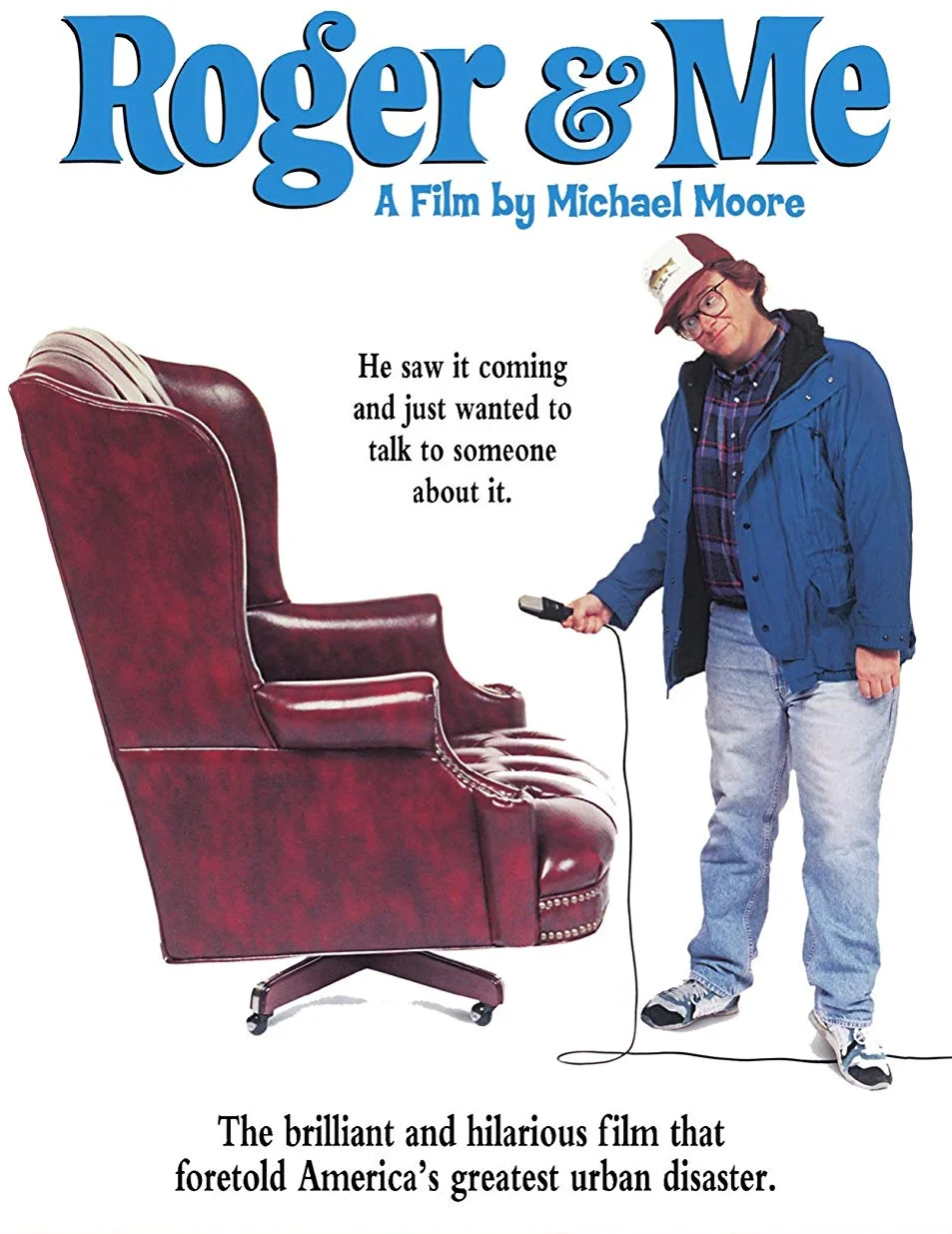
7/05:
Roger & Me is the third of Michael Moore's documentaries I've taken the liberty of seeing.
Keeping in mind of how compelling Bowling For Columbine and
Fahrenheit 9/11 were, Roger & Me is no different: arresting, bleak, sad,
fascinating, and depressing all rolled into one.
There are funny parts, not because it's a comedy, but because it paints a picture of desperate measures that people have
resorted to to get out of the rock they're under. No matter what, it's a great documentary, leaning toward the somewhat objective
journalism in the spirit of Upton Sinclair's The Jungle.
All in all, Michael Moore has become an important filmmaker, capturing a period of time in America and the price that
people pay.
3/15:
Roger & Me is the best example of the chasm between the haves and the have-nots in the United States, thanks to the spirit
of democratic capitalism.
A lot of what's shown in the documentary is funny, and of course, I don't have sympathy for the people who
lost their jobs. It's called the survival of the fittest. Be educated, develop marketable skills, move to another
location...do whatever it takes to get out of the situation. But never, ever trap yourself into buying a house
that you can't afford, producing babies at the wrong time, and/or going to college for a worthless degree. All of them
are the surest way to debt slavery.
There are many once-prosperous towns and cities that went belly-up because of the closed-down
factories and plants. That's the reality of life. Remember, the corporate America is the new Rome of today; the easiest
way to boycott corporations is to stop buying their products. When people don't, they'll continue to profit
and therefore survive longer.
Truth be told, I've never owned a GM and think the company builds the shittiest cars ever. That's why I wanted it
to go bankrupt in 2008, but the government gave them a bailout, which was a colossal mistake, and there was no
vote on it (a report says the federal government lost $11.2 billion on the investment, but GM made $22.6 billion in profits).
The deduction of one point in my rating for Roger & Me is due to not explaining what caused
the layoffs which had to be the weak quality of GM cars, the politicians involved, the fat pension plans, the controlling
unions, the overpaid lazy workers, and the exorbitant salaries these unionized auto workers were getting given their simple jobs.
All in all, Roger & Me may be a sad documentary, but I don't really care about the city of Flint and its residents.
Ronnie Coleman: The King (2018)
Rate:
7
Viewed:
1/22

1/22:
Ronnie Coleman: The King?
A broken-down king is more like it. If you worked out at the gym during the late 90's and onward, chances are you knew
who Ronnie Coleman was, having seen him on the magazine covers of Muscle & Fitness and Flex. He was
plain massive and therefore unreachable, winning eight straight Mr. Olympia contests.
For a while, everybody thought Flex Wheeler was heir apparent to the throne that was vacated by Dorian Yates who was simply
unbeatable due to his rock-solid lean mass. Flex had the symmetry and perfect physique to go along with it. Out of the blue,
Ronnie Coleman just blew him away. It was the beginning of the monster-sized bodybuilding era which isn't a positive thing.
A lot of people have said Ronnie Coleman is the best bodybuilder of all time, not Arnold Schwarzenegger. That may be true
if you have them side-by-side for comparison, but the more Ronnie Coleman aged, the worse he looked because of his pregnant
gut which is the result of HGH, insulin, steroids, and high-calorie diet. In short, aesthetics does matter. Arnold
Schwarzenegger wins on that count although many will point to Frank Zane.
Ronnie Coleman: The King is interesting for several reasons. It's a great documentary to dissuade anyone from going into
bodybuilding because the long-term risks aren't worth it. In fact, he's probably going to die prematurely. There have
been countless bodybuilders dying of either a heart attack or organ failure of some sort in their 20's, 30's, and 40's.
It has everything to do with steroids, HGH, and junk supplements they've put in their bodies for so long. When these
bodybuilders start having health problems, they either ignore them or give up working out for good. Once the latter happens,
they lose the physique and shrink so much to the point of looking normal with some body parts out of proportion. Paul Dillett,
Tom Prince (2/6/22 Author Note: he died the following month), Chris Cormier, and Mustafa Mohammad come to mind. Imagine
the amount of time and money they've wasted on their bodies.
All have said Ronnie Coleman paid the price to be the greatest. Well, I rather have my body intact into old age. I'm
probably a lot healthier than most, if not all, bodybuilders despite not having worked out much, and I don't feel
any pain. Ronnie was 53 or so in the documentary; already he had two hip replacements, at least eight back surgeries, and
a whole lot of procedures everywhere else on his body and lives in chronic pain. Currently, he's nearly paralyzed yet
still works out at the gym if that matters to anyone.
Back to the '98 Mr. Olympia, the top three were Ronnie Coleman, Flex Wheeler, and Nasser El Sonbaty, respectively. We know
what happened to the winner. Having lost the physique, Flex Wheeler received a kidney transplant and had his right leg
amputated. For the third place winner, he died in 2013 due to heart failure and kidney damage. Recently,
the 2018 Mr. Olympia Shawn Rhoden passed away of a heart attack, and he was only 46.
All in all, failing to touch the white elephant in the room, Ronnie Coleman: The King confirms everything that's wrong
with bodybuilding.
Run Ricky Run (2010)
Rate:
5
Viewed:
9/25

9/25:
Run Ricky Run is uh...unnecessary.
I acknowledge Ricky Williams was a very good running back then. Sure, he had weird issues, but that's par
for the course when it comes to the NFL. Had Ricky Williams never smoked weed and remained focused, he would've
made into the Hall of Fame. His numbers were actually excellent, hitting 10,000 yards, given
the erratic career. It's impressive because he was certainly overused in college, having carried more from
season to season for 1,064 times total.
The first ten minutes of Run Ricky Run goes well, giving a summary of Ricky Williams' accomplishments.
And then, it runs out of content. I didn't care about his psychological issues or whatever. To me, the
explanation is quite simple: weed made him lazy. That's it...you've just saved yourself the time by not
watching this pointless documentary.
All in all, instead of Run Ricky Run, 30 for 30 should've done a piece on an even
better running back from the University of Texas who was in a league of his own: Earl Campbell.
Salesman (1969)
Rate:
2
Viewed:
9/24
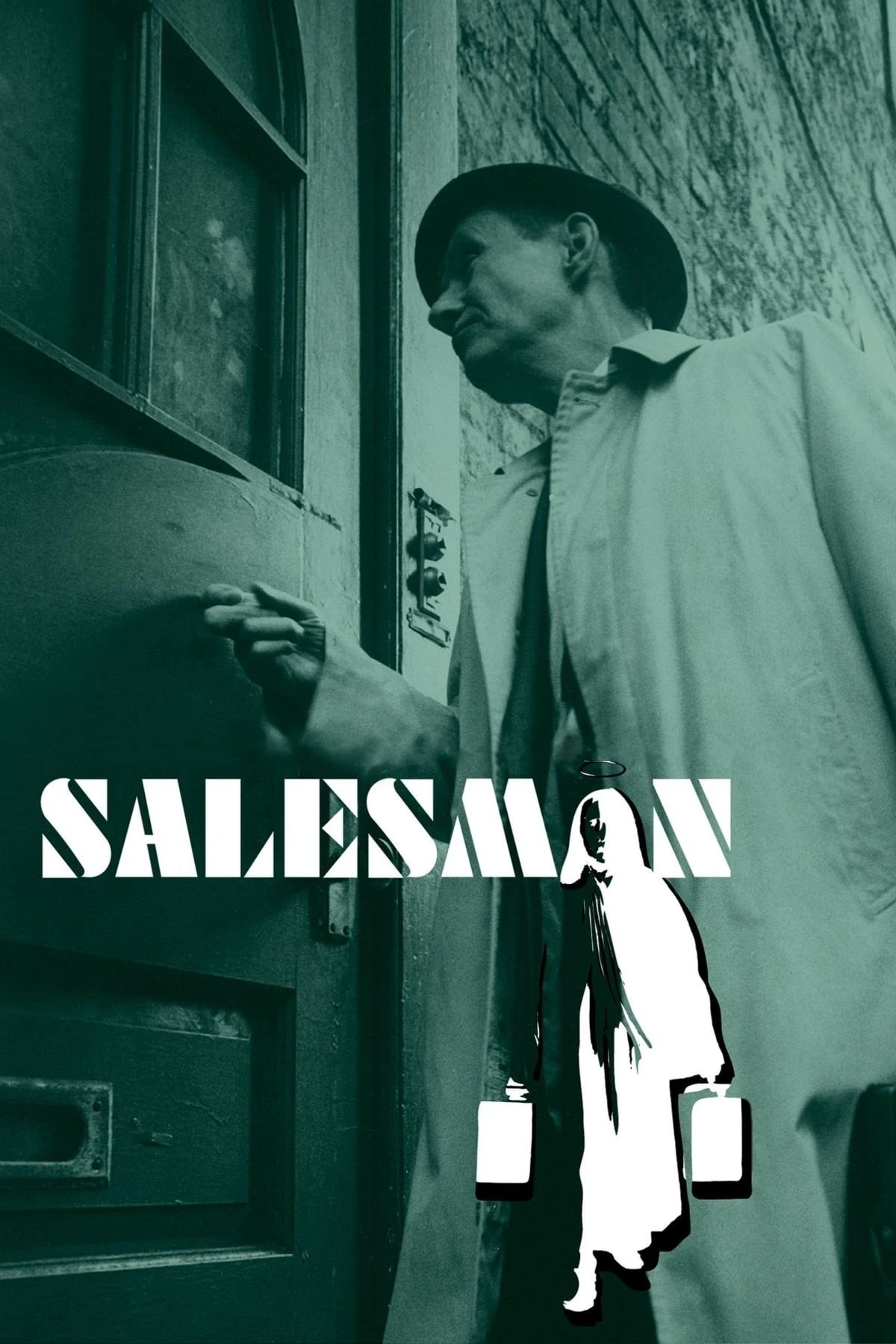
9/24:
I'm starting to hate the Maysles brothers' documentary films after I went through the awfulness of
Grey Gardens.
This time, it's Salesman which feels like an Errol Morris picture: stupid, pointless, repetitive, structureless,
and vacuous. A bunch of door-to-door bible salesmen talk all day without making an iota of sense and think they're funny
when in fact aren't.
They're, in fact, con men selling a bullshit book for $49.95 which translates to $429.14 today. No wonder why most
potential low-income customers felt so hesitant about the deal in spite of their dim-wittedness. Even they could get it
for free in hotel rooms. Given how much the salesmen smoke while being interviewed, I'm surprised to discover many of them
went on to live a long life.
All in all, Salesman is boring nonsense although it has a "Death of a Salesman meets
Glengarry Glen Ross" slant.
Scared Straight! (1978)
Rate:
9
Viewed:
11/23
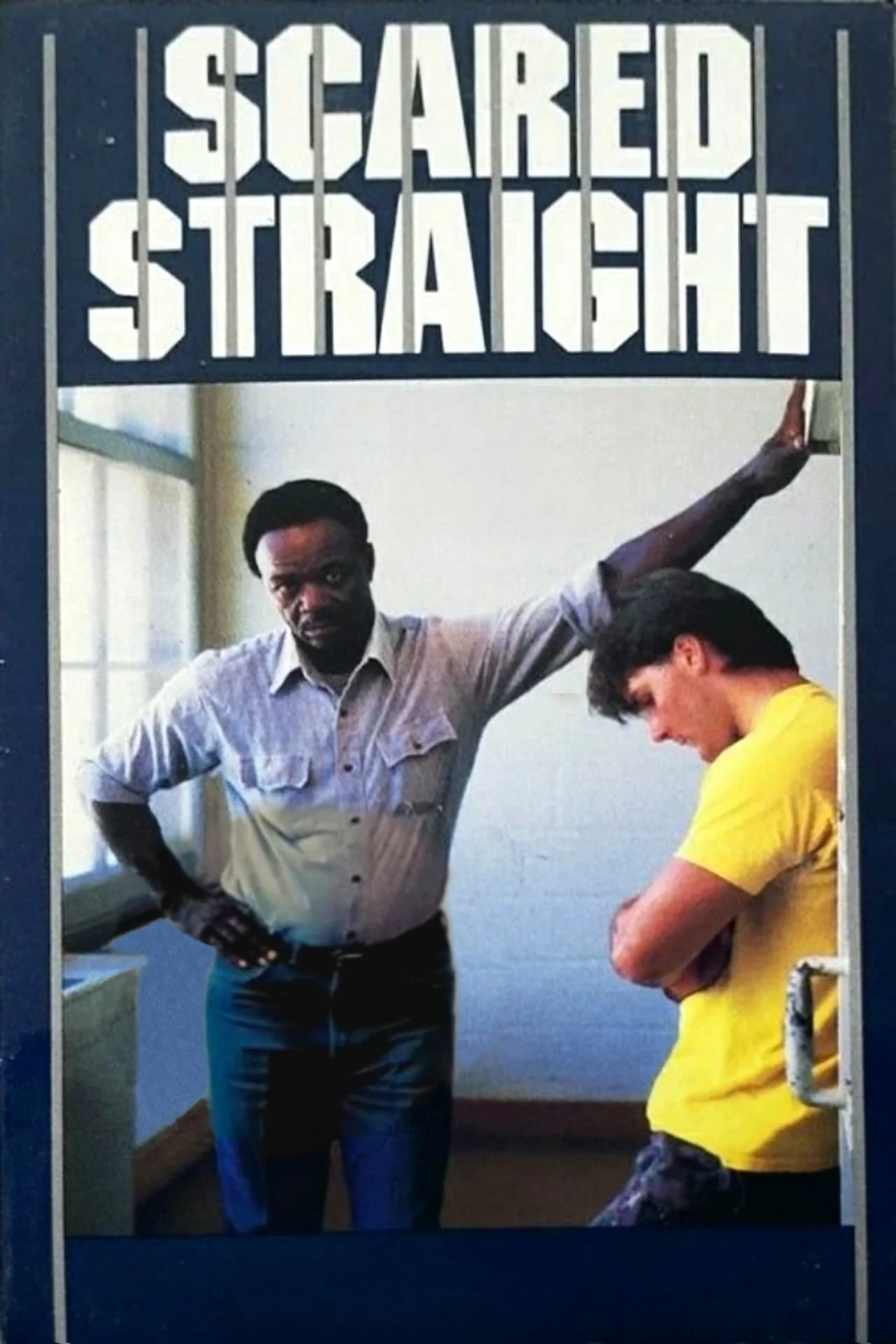
11/23:
Scared Straight! is a famous Oscar-winning documentary that presents an aggressive in-your-face intervention to wake up
juvenile delinquents through real prisoners' harsh talks before they're sent to the big house for future crimes.
I'll say, for that time, this form of deterrence seems effective, but today, I know it won't work because there's no
physical confrontation involved. Moreover, you have all the parents, relatives, teachers, police officers, judges,
probation officers, and counselors telling juvenile delinquents the same thing over and over, but nothing ever
gets through their heads. So, they end up in prison, regardless. It's been a million of chances along the way to turn things
around.
The aftermath as shown is manipulative because, in reality, the program doesn't work, producing more
harm than not, although the theory sounds great which can be successful only for the right kids with certain impressionable
characteristics. Hence, the top question to ask is: what are they?
One research paper came to this conclusion: "A nonsignificant overall effect was found (d = 0.10), indicating that
juvenile awareness programs have no effect on offending behavior and other outcomes that are related to delinquency." And
also, "the results showed that programs such as Scared Straight generally increase offending levels with a rate of 1% to 28%
in the experimental group relative to a no-treatment control group."
Why is that? Derek Gilna of Prison Legal News surmised it "may be because poor decision-making, a lack of impulse
control due to immaturity, anger problems and substance abuse issues cannot be addressed by having adult prisoners scream
threats at youths in an attempt to frighten them." Compounding the aforementioned problems are mental issues and
low IQ. By the way, Angelo Speziale, the weird-looking white Italian kid, was eventually caught decades later for a 1982 cold
rape/murder case and is currently serving life (or is he now paroled?) in the exact same prison where Scared Straight!
was filmed at.
Toward the end of the documentary, I realized something more than ever why they committed crimes which struck me as a
prevailing theme: too much alcohol and/or drug abuse. Although everybody said the guy with one eye was the scariest and did the
most to set them straight, I'll have to go with the white dude in brown hat and yellow lined shirt for making the most
sense, especially when he presented five options in terms of what to do in prison. At any rate, every inmate spoke well.
All in all, Scared Straight! is a good try, and I've enjoyed it, but sadly, the program isn't an effective crime
prevention strategy.
Seven Up! (1964)
Rate:
7
Viewed:
1/14

1/14:
The most striking aspect of Seven Up! is how well spoken the 7-year-olds were, and they sounded so
much better than any ordinary kid in high school.
My low rating for the film is attributed to a couple of factors:
First, the filmmakers didn't disclose their methodology or the name of random sampling that were used to select
the children. Is this really representative of Britain's children?
Second, the things the kids say are fairly predictable. Hence, they're boring to listen to. Their behaviors
are also predictable, but it's amusing to see they were allowed to fight like that back then.
On the positive side, I like the camera work which is avant-garde.
All in all, Seven Up! is the beginning of my journey for the Up Series, and I'm looking forward
to it.
Sherman's March (1985)
Rate:
5
Viewed:
5/25
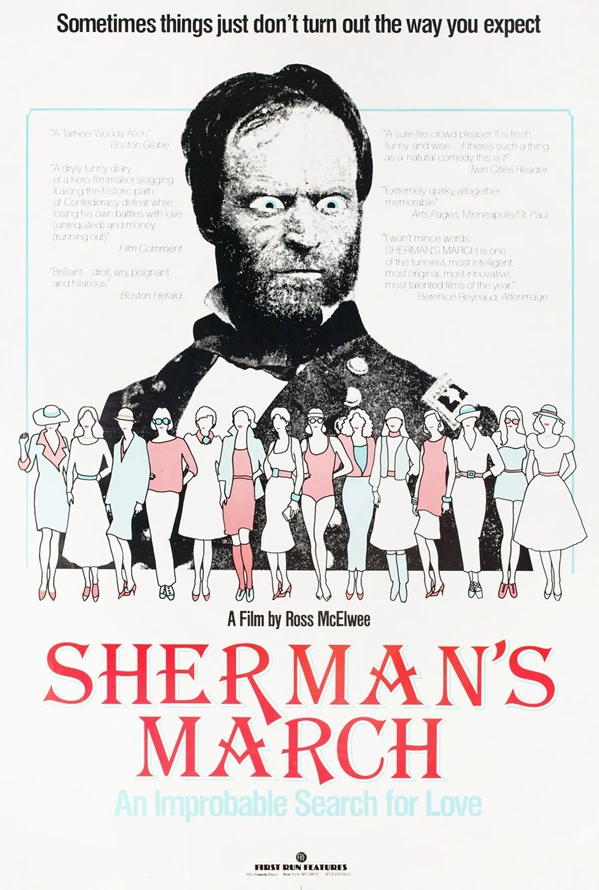
5/25:
A documentary is pointless if people talk about nothing of relevance.
Sherman's March is such that. 157 minutes is obviously too much. Instead of living up to the original
premise, Ross McElwee decides to focus on some women of the South. And why? I have no idea. Along the way,
two different Burt Reynolds are spotted: a lookalike and the real one.
At least, the women aren't boring to listen to compared to the crap spewed out in documentaries by Errol
Morris and the Maysles brothers. The winner is Charleen Swansea only because she has better lines than
everybody else. However, there's no substance in what she says.
All in all, I bet that General William T. Sherman would rather burn the South again than watch a minute of
Sherman's March.
Sicko (2007)
Rate:
10
Viewed:
2/09

2/09:
Michael Moore does it again.
Whenever his new documentary comes out, my expectations are super high. Sicko easily meets them. It's compelling stuff
and, no doubt, a sad commentary about the United States of America.
Given the one-liner comments on the DVD cover, one said Sicko was "so funny." Apparently, these harebrained critics
think being denied basic healthcare only to end up dead to ensure profitability for such companies is funny. They also think
it's comedy when a baby died just because she was in the wrong hospital due to insurance coverage. I don't get these stupid
fucks.
Unfortunately, the trouble with Michael Moore's documentaries is 99% of the audience, which includes me, loves them
but will move on with their lives. In other words, nothing is being done. Why is that? I think it's because there are too many
electronic toys to keep people lazy from doing something about the issues unless it actually happens to them.
All in all, Sicko is a must-watch about how healthcare works.
Slacker Uprising (2007)
Rate:
4
Viewed:
2/20
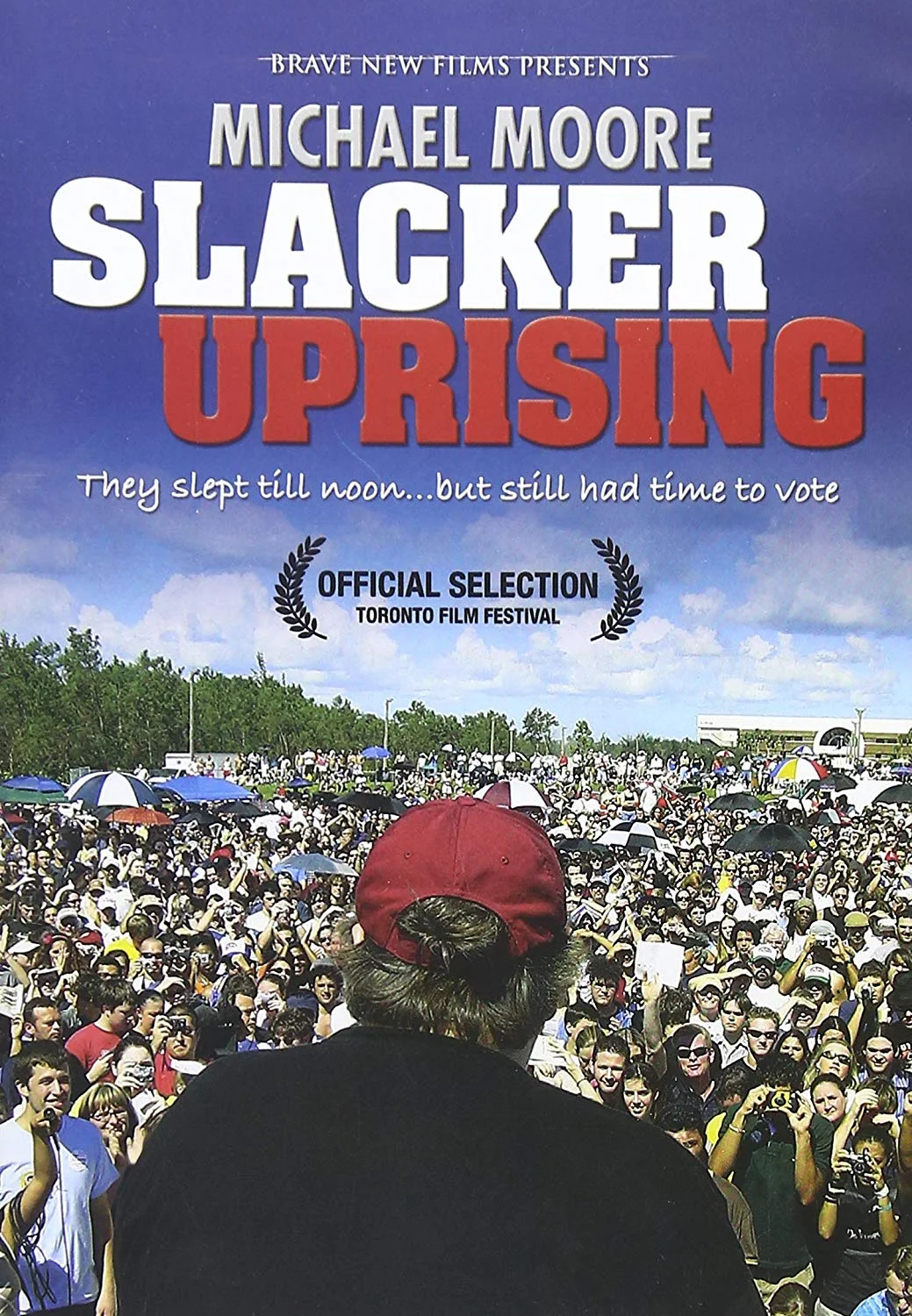
2/20:
Damn, I've never seen so many people clap in a film like Slacker Uprising.
While that's going on, it feels like a giant fucking pat in the back for Michael Moore to show how much of a hero
he is. Well, for the umpteenth time, he fails to make a difference. Uh, explain to me the logic of giving away Ramen
noodles and underwear for their voter registration. Why specifically them?
I honestly don't remember what happened during the 2004 United States presidential election because it didn't mean
anything to me. And the documentary was released three years after? Fast forward to now, people connected to the
elections either became richer, were sent to prison, or got exposed. Look at what happened to John Edwards. I'm not
sure what the point of Slacker Uprising is: just show up and vote? But I don't like anybody.
Truth be told, all politicians are the same to me and only care about themselves, their friends, and the corporations they
take money from. I don't see how citizens turning out more than ever to vote for somebody is going to change anything
except to put more money in their pockets despite being fed a neverending stream of lies, platitudes, and empty rhetoric.
All in all, saddled with low production values, Slacker Uprising's repetitious cycle of people applauding, celebrities
giving a short speech, and musicians singing a song quickly becomes an ennui.
Slaying the Badger (2014)
Rate:
9
Viewed:
3/15, 9/25

9/25:
Slaying the Badger is an absorbing documentary about the rivalry between Greg LeMond and Bernard
Hinault during the Tour de France.
Greg Lemond had been a mythical name in the lore of cycling because he was the only American who won
the Tour de France and three times at that. I followed the Tour every July since OLN (or Versus or
whatever the hell it's called now) began covering it extensively. It grew popular when Lance Armstrong
started winning consecutively.
Then, there was a lot of mudslinging going on, tarnishing Greg LeMond's image. Honestly, at the time, I
didn't know what to think since I had no facts to rely on. Toward the end of Lance Armstrong's run of seven
Tour victories, the din had gotten louder and louder that he cheated. It sounded inconceivable to me, and then,
to the surprise of everyone, the cat came out of the bag. Everything that Lance Armstrong had accomplished turned
out to be the greatest sporting fraud ever which led to the restoration of Greg LeMond's name and legacy.
After completing Slaying the Badger, I now have more respect for Greg LeMond who really did it without
cheating which is an amazing feat given the state of Tour de Farce, an event that I've refused to watch anymore
for two decades now. The story between Greg LeMond and Bernard Hinault is quite interesting to listen to.
All in all, Greg Lemond is a true champion while Lance Armstrong is the biggest fraud ever.
Smash His Camera (2010)
Rate:
4
Viewed:
8/13
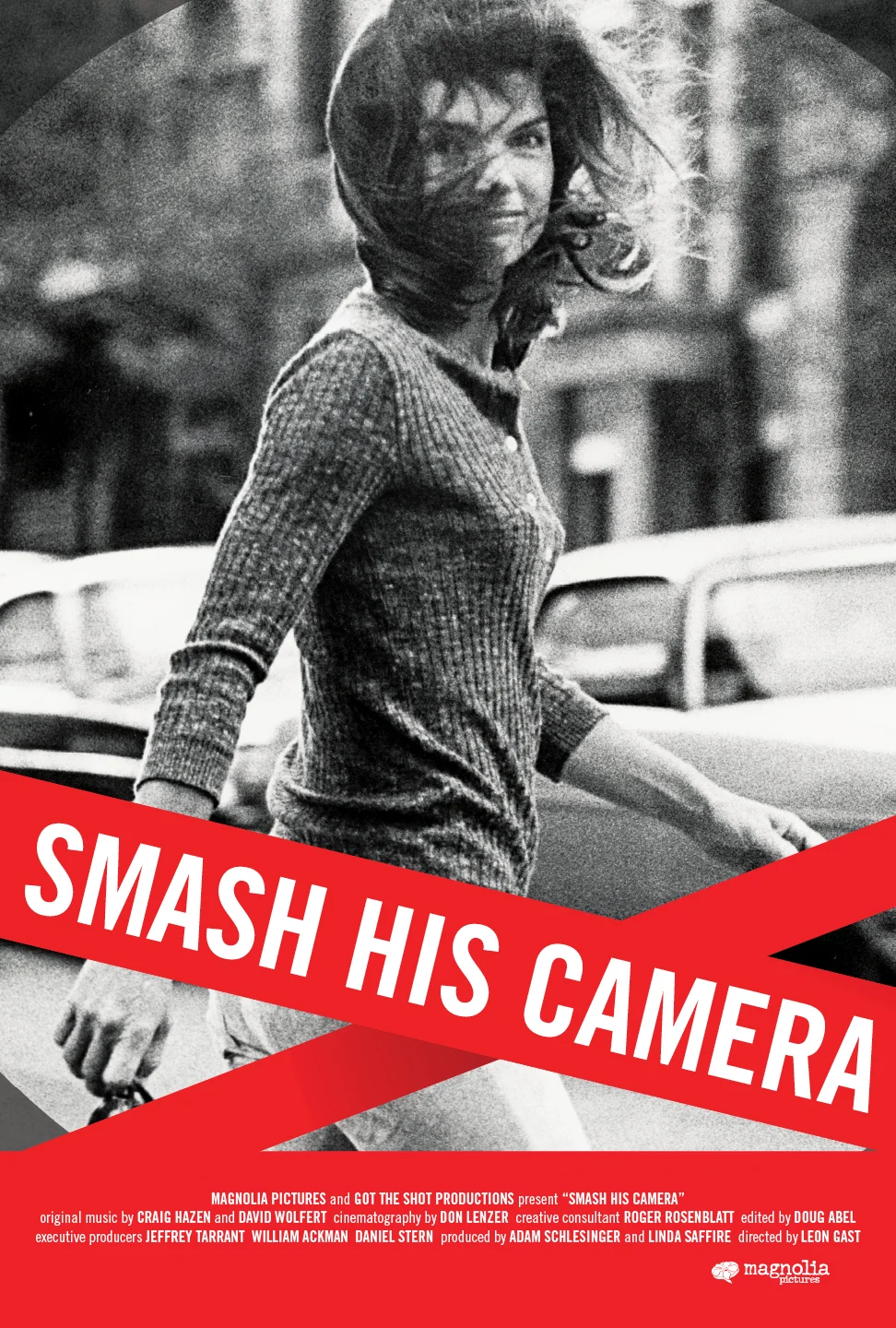
8/13:
Smash His Camera is an uninteresting tale about a paparazzi loser who's obsessed with Jackie Onassis, an ugly,
worthless wafer-thin socialite.
The rest of the film adds nothing much ado. However, the guy took nice pictures, but who cares? I like the story of
Marlon Brando punching the loser in the face, breaking his jaw and knocking out five of his teeth. It's a victory for mankind.
All in all, I just witnessed a tale of a sad man who wasted his life for nothing.
Sound and Fury (2000)
Rate:
10
Viewed:
4/08, 7/11

4/08:
Sound and Fury is a major improvement over the idiotic
In the Land of the Deaf which doesn't speak for the wide spectrum of deaf people.
There are numerous reasons to like the powerful documentary which consists of an open, healthy clash between two
polarizing groups about cochlear implants. The segment from 28th to 40th minute is brilliant and absolutely fundamental
to the debate. What's essential comes down to the parents deciding what's best for their child.
My issue with the deaf world is the backward, negative, and close-minded culture. It doesn't value or provide quality
education and job opportunities that are taken granted by hearing people nowadays. Standards are absymally low because deaf
people don't interact with the outside world. They look down on anyone who aren't deaf enough to meet their criteria.
The Alexander Graham Bell-Edward Miner Gallaudet debate has been going on for a long time. It starts with this
question: what's the best mode of communication for the deaf? Is it oral or manual? A mix of both? Which comes first:
English or American Sign Language? What are the long term advantages and disadvantages?
Whatever the answer is, the net result isn't pretty because the median level of reading, writing and arithmetic skills
among the deaf is 4th grade which has stayed stuck for decades. That's why doctors are hopeful about the future because
of what cochlear implants can bring to the table. It's the basis of Sound and Fury.
By the way, when the hearing mother described the struggle to justify her decision of having her child
cochlear-implanted, she said the others' reactions were similar to taking her baby away and protecting it in the
deaf world. Does Rosemary's Baby ring a bell?
All in all, Sound and Fury is one of the best documentaries I've seen.
7/11:
Sound and Fury is a definite '10' because it perfectly describes the longstanding conflict that began
with the 19th century clash between Alexander Graham Bell and Edward Miner Gallaudet as described in Richard
Winefield's book Never Shall the Twain Meet.
During the 70's and 80's, it was a period when cochlear implants were first developed to enable deaf children to
hear more clearly than hearing aids, yet there was a low rate of success because the technology was too new and
a lot of kinks had to be worked out. It was common to see large scars behind their ears but no cochlear implants.
Today, cochlear implants have improved to the point that there are relatively few problems, technology-wise. However,
it's not a be-all-and-end-all quick fix. There's a lot of work to be done afterwards as it involves intensive parental
support, speech therapy, and mapping of sounds. After a decade or so of persistence and hard work, successful outcomes
can be reached.
Looking at the deaf people's reactions to cochlear implants in the documentary, it's obvious they were thinking
about what happened when the success rate was low, having already formed their ironclad opinions. Let's face facts:
cochlear implants are in, the deaf world is out. It's thankfully on the decline as evidenced by low student enrollment
in historical residential schools for the deaf with many of them shuttered.
As people, deaf and hearing alike, try to control the fate of deaf children, the further the debate goes on, the more likely
their lives are irrevocably ruined in the long term. What matters the most is the window of opportunity during
the first five years of their lives, and it needs to be capitalized right away.
Anyway, I feel bad for Heather Artinian, but the good news is that she eventually got cochlear implants and
is now a success story, having been accepted at Georgetown University in Washington, D.C., this upcoming fall. Her path
is much easier and less fraught with stupid, time-consuming obstacles many deaf people had to go through prior to the turn
of the century.
Cochlear implants, although hearing aids can also do the same but not to a great extent, allow deaf children the opportunity
to speak and hear as well as their hearing counterparts and interact with them. This way, their world opens up more;
otherwise, restricting them to the deaf world won't broaden their horizons, and job and education opportunities will
be severely limited.
It's the narrow-minded, pro-deaf individuals who can't see it this way because they have virtually zero experience in the hearing
world and will try to ruin the lives of many by telling the parents of deaf children what to do. Well, this strategy has failed,
and that's why the deaf world is getting smaller annually.
All in all, Sound and Fury, without question, does an excellent job of showing what's going on in the deaf world.
Sound and Fury 6 Years Later (2006)
Rate:
7
Viewed:
10/16

10/16:
Following up the story of Heather Artinian and her cousin (who didn't appear in the original) after what happened in 2000,
Sound and Fury 6 Years Later feels incomplete, biased, and one-sided.
I feel torn by the statements made by the grandparents that Heather needed to be cochlear implanted so she could meet
the hearing world on its terms. However, it's what Heather wanted all along.
For every success story of Heather Artinian, there are many failures. Being cochlear implanted is neither simple as it sounds
nor the panacea to deafness. These kids have so many underlying problems that impact their language acquisition.
It's not their fault or due to cochlear implants; learning a spoken language in the absence of sound is a
difficult task. The problems can be easily compounded by additional disabilities; low IQ; lack of parental support;
delayed language learning, identification, and/or amplification; lack of support from school, etc. Being able to hear
clearly for the first time doesn't automatically make up for these deficits; in short, there's still a long
journey to go, and it entails a lot of hard work.
To succeed in the hearing world, the deaf individual has to be persistent in making through.
Parental support goes a long way, and it remains the single most important component of success for a deaf child.
The harsh reality is that not many deaf children are like Heather and only few have supportive parents like hers.
I wasn't concerned about Heather's decision to be a "hearing" person which is evidence enough that the deaf culture
is slowly fading away due to rapid advances in cochlear implant technology. Rather, I was interested to see if that's
what she wanted all along. It appears to be so, and that's that. There's no argument from me, and I have no reason to be
negative about it.
All in all, Sound and Fury 6 Years Later is a disappointing follow-up to the original documentary and paints an
inaccurate picture about cochlear implants.
Spaceship Earth (2020)
Rate:
8
Viewed:
2/25

2/25:
If not for Bio-Dome, I would've never heard of Biosphere 2.
Hence, I took a gander at Spaceship Earth and learned more. The beginning was interesting because that's
the point of intersection with Charles Manson and the Family in San Francisco and the whole New Mexico communal
thing as shown in Easy Rider. One thing led to another and then another.
After the success of their shipbuilding project, they decided to create something huge that's similar to a
geodesic dome and called it Biosphere 2.
The goal was to have humans living in a "virtually closed system with plants and animals and atmospheres all
inside," and the experiment would last for two years. Naturally, it failed, negating the idea of a possible
life on the moon or Mars. As neat as the idea sounded, I questioned everybody's thinking. Now, suppose
the project was a success, how would the materials and, most of all, heavy machinery be transported to outer
space? It's going to take thousands of rocket launches and untold trillions of dollars to make that happen.
Given Biosphere 2 cost at least $150 million, why didn't they take it slow? That is, they could experiment
for a month, see what went wrong, and make modifications. Then, everything would be repeated at set timelines
of three months, six months, one year, and two years. In other words, why two years right away? It's not like
everybody needed to be in a hurry since it took billions of years to get to this point. Because they decided to
cheat, the grand experiment was no longer valid. Why didn't they stop it and make adjustments before starting all
over again? It would've prevented the project from becoming a national laughingstock.
The documentary didn't address a lot of things. What's the average intake of calories per person? What were
they eating? Was that the same thing over and over daily? What about animal protein? Why not store prepackaged
and canned food? How did the lavatory system work? What kind of data were they looking for? Why did they need so
many plants and animals, especially snakes and spiders? How about keeping it simple and going from there? Why were
there five different areas based on biomes? How did the HVAC system work, and would that still be feasible in outer
space? What about electricity? Who controlled them: those from the inside or outside? Was everything 100% airtight?
How did they know that?
Biosphere 2 was the largest closed system ever built, taking up three acres. But to me, it's still not good
enough. The biggest question was: how many acres on average would one person require to maintain homeostasis?
Whatever the answer was, that's how you go from there to decide how many acres overall was needed. But the
documentary didn't mention that most of the plants and animals and virtually all pollinating insects died by the
end while there were many unwanted insects surviving. They overstocked the ponds with fish which led to their
deaths. The rainforest overgrew, blocking out the sun for other plants. Even the filtration system was constantly
clogged. There was another go at the experiment in 1994, but the documentary decided to omit it completely.
Somebody said, "It's an ethnically diverse group." Ha! Everybody was white. One woman made an excellent
point, "What we're upset is that there's no multiculturalism inside. I would like to know what a young black
woman from Brooklyn would do in a biosphere, huh?" Another went further to say, "This is an excellent model
for the future, but it won't work. People are too mean. People are too abusive, yeah. People abuse our world.
Our world's going down the tubes." And that's exactly why Biosphere 2 failed horribly.
All in all, forget Bio-Dome; Spaceship Earth is the one to see.
Spellbound (2002)
Rate:
7
Viewed:
6/05
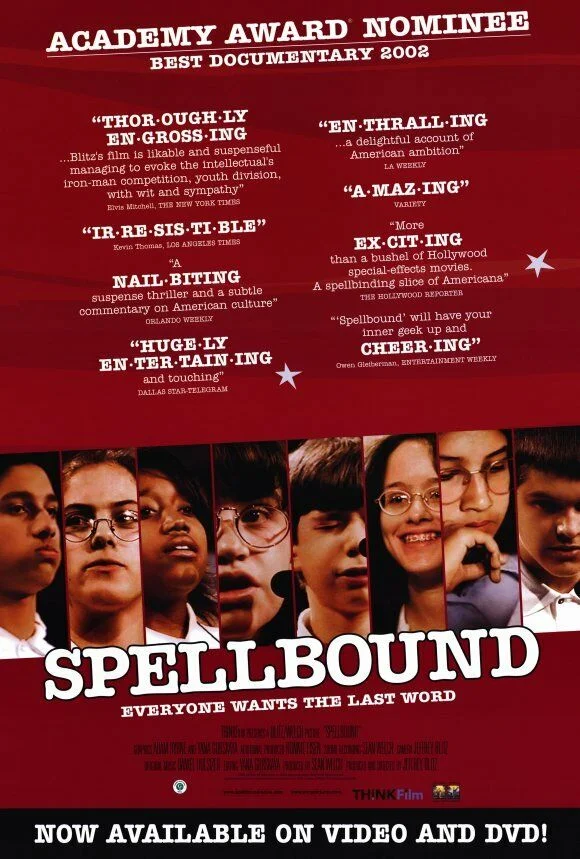
6/05:
Compelling but somewhat long-winded, Spellbound is a documentary about the participants of the National Spelling Bee
competition.
A couple of people are likeable: Neil's father and Nupur. Ashley and her mother seem real, but the rest aren't. If
there's a hall of fame for the absolutely obnoxious pipsqueaks, then a plaque should be made ready for Harry Altman. What
a fucking idiot he is.
Thinking about the contest, I'm impressed with the high level of sportsmanship displayed. It isn't about the contestants
trying to one-up each other in dirty ways. On the contrary, they understand that failure will happen but strive to be the
best as they can.
Of course, the whole thing looks hard. But I think these participants wasted too much time memorizing the dictionary
when they should have fun being kids. Childhood only lasts so long. Who even speaks these ridiculous words in daily
conversations? Many aren't English. It's just useless trivia, making the spelling bee an exploitative contest.
All in all, Spellbound is nice and all, but the National Spelling Bee needs to go permanently.
Stevie (2002)
Rate:
8
Viewed:
2/06
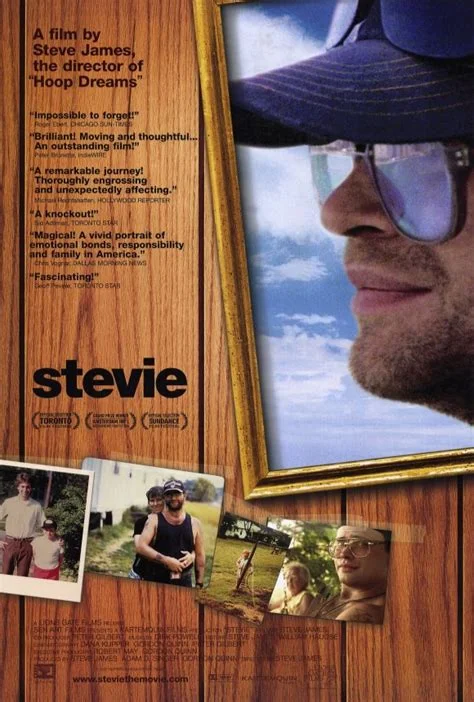
2/06:
Directed by Steve James of Hoop Dreams fame, Stevie isn't compelling.
Tough childhood, I get it, but I don't give a fuck about the loser. In many ways, it's an exploitative, full-of-holes
documentary that forces me to ask: "Why do I need to see this?"
All in all, although Stevie is well-done, it doesn't make for a necessary viewing.
Stoked: The Rise and Fall of Gator (2002)
Rate:
7
Viewed:
12/07, 1/20
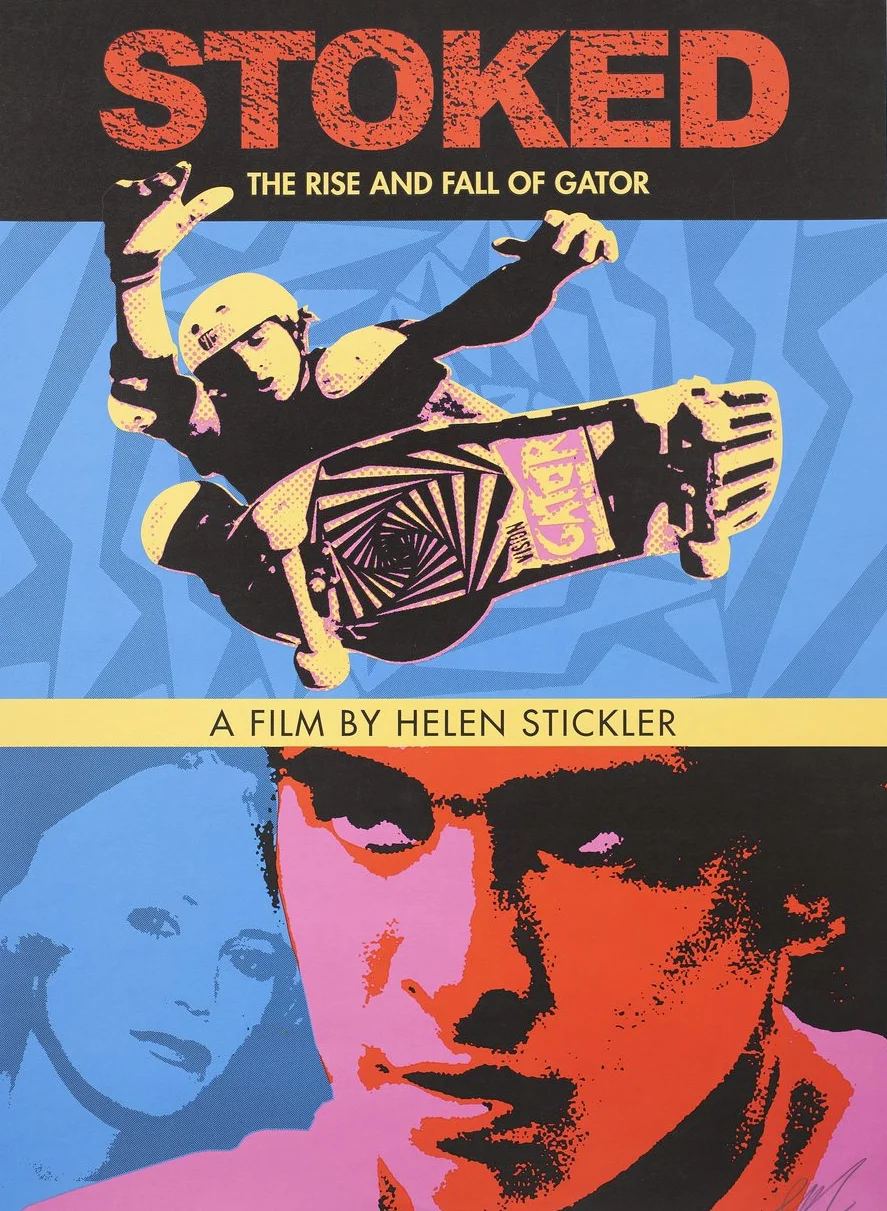
12/07:
Before I begin to discuss Stoked: The Rise and Fall of Gator, I'll like to be nostalgic for a minute.
During most of the 80's, part of my childhood was being around the skateboarding culture. It was Airwalk this and that,
Thrasher magazines, Vision and Powell-Peralta street wear, and ramps.
During that time, when I leafed through Thrasher magazines, I couldn't help but be impressed with the pictures. Yet I
didn't know who the guys were until I saw Stoked: The Rise and Fall of Gator.
In other words, I had no idea the pictures were of Mark "Gator" Rogowski. While watching the documentary, I realized how
artificial the photo shots were of the vert skaters because when they did it for real, I was surprised to see how ordinary they
looked.
Anyway, it's a good, objective but unfulfilling documentary about what happened to Mark "Gator" Rogowski. There are a lot of
questions I have, but not much is revealed about his childhood life or his parents. When the murder happened, the explanation
is somewhat confusing.
All in all, Stoked: The Rise and Fall of Gator is a trip down the memory lane for anyone who was associated
with skateboarding during the 80's; other than that, there's no need to bother with it.
1/20:
Stoked: The Rise and Fall of Gator brings back memories for me because I was part of the skateboarding culture in the
80's.
As for the story of the murderer himself, Mark "Gator" Rogowski, I didn't know who he was, but his face
was highly familiar to me in Thrasher magazines. After seeing the documentary of what happened, it still feels
unfulfilling. Most of Gator's skateboarding career is covered, but little is touched in terms of who he is, his
family life, and what happened during the murder.
The last time I saw the documentary was about twelve years ago, and I hadn't been up to date with the
new developments until now. Looking up the internet, it appears Gator had been recommended for parole which is subject
for review by the board and then the governor after approval. In all honesty, he doesn't deserve to be released given the
heinous nature of the crime, and it's only happening because he once had a skateboarding career.
All in all, Stoked: The Rise and Fall of Gator is first nostalgia and second the story of a murder.
Super Size Me (2004)
Rate:
8
Viewed:
10/04, 6/05

6/05:
Yep, there are millions of obese people all over the United States.
The rate is around 60 percent. It wasn't like that a decade ago and certainly not twenty years ago, either. The sight
of an obese person would have to be very rare. I'll never understand how they can build so much bulging
fat all around their legs, arms, and neckline. It's truly amazing.
One of the biggest culprits is the engineered junk foods which are heavily processed which are a little more than refined
ingredients that's mixed in with additives. Cheap, long-lasting, and tasty, they cause overeating. Fast food restaurants are
guilty of this, and McDonald's is one of them.
I don't have anything against Super Size Me, but it can be misleading at times. Morgan Spurlock's intentions
are good, but the problem is much deeper than what's shown in the documentary. Eric Schlosser's book
Fast Food Nation: The Dark Side of the All-American Meal is a good start. From there on, a couple of published works
about the obesity epidemic will suffice.
At any rate, Morgan should be congratulated for his courage by turning himself into a lab rat. Again, it's just one case
study. More people are needed to justify the results, but it doesn't matter: there's too much evidence and they're
all around us in plain view. (2017 Author Note: Morgan lied the whole time that he never drank; it turns out he's
been an alcoholic since age 13, hence his liver issue.) (2024 Author Note: He died at age 53, probbably from drinking.)
All in all, Super Size Me is a simple low-calorie way of making a point, but leave that to the scientists, because of their
rigorous training, to validate the results.
The Thin Blue Line (1988)
Rate:
4
Viewed:
3/15

3/15:
Let's get this out of the way to understand what happened: one year after The Thin Blue Line was released,
Randall Dale Adams was set free due to a series of technical errors during the trial after his case was reviewed.
In all probability, David Harris shot Robert Wood, a Dallas police officer, during a routine traffic stop on
November 27, 1976. Sitting on death row for eighteen years for an unrelated murder, he was executed in 2004.
Although free, Adams lived six years longer than him.
Since the propaganda piece called Paradise Lost: The Child Murders at Robin Hood Hills
left my head shaking, I've been leery of falling into the same trap again because the problem is: I'm not in possession of all
facts of the case. Only members of the jury have them, and they're the only ones who can make an informed decision.
The artful skill of editing can move somebody into thinking in a certain way by giving support to one side. If
there's a documentary that's all in for the convicted killer's case of innocence, it can be countered by another
documentary that makes an equally compelling case of his guilt; the race is then on in terms of who makes a better case
based on how well the film is made. Well, that's just wrong; it's what courts are for.
Again, I don't have all facts of the case, so I'll refrain from making a comment about it. Hence, I'm going to shift
my attention toward the technicalities of The Thin Blue Line. It's one of the worst documentaries I've ever seen.
However many re-enactments of the crime are shown, it's never been so confusing and incoherent. At first, I see the police
officer walking toward the blue car during a routine traffic stop before being shot; hence, I'm left with the impression
that's exactly what happened.
Yet there's another re-enactment, presenting new information that shows a car driving past the spot of the eventual
murder. Okay, I have to change the picture mentally of how it went down. Then later, there's another re-enactment, showing
a second car driving past. Oh, my goodness gracious! Can Errol Morris just fucking show one and only one re-enactment of
the crime from start to finish for the sake of completeness?
It's amusing to see the minutiae details to be inconsistent with the actual facts of the case. When the milkshake was thrown
in the air and it was strawberry flavor, the police report said it was chocolate. One of the interviewees mentioned
it came from Whataburger, yet it's Burger King in the re-enactment. None of the two cops in the re-enacted scene of
crime looks anywhere near the likenesses of Robert Wood and Teresa Turko.
The most infuriating part is Robert Wood was briefly mentioned as the slain cop. There are no more details
about him thereafter. It must have felt like a huge slap to the face for his family, especially when David Harris' childhood
pictures were shown. Let's not forget Robert Wood died in the line of duty as service to his community.
Inappropriate are the shots, which are usually done in close-up, of an ashtray, a timepiece, a milkshake, a siren, etc.
For a documentary about murder, you just don't make a mockery out of it by taking the MTV-style route. Meanwhile,
none of the interviewees is labeled; it's hard to know who they are which is like watching a parade of nameless characters who
happen to have some information about the case.
All in all, most murder cases are straightforward which can be summarized in thirty minutes or less, but the story told
in The Thin Blue Line is too stretched out, incomprehensible, chronically out of place, repetitive, and full of
technical annoyances.
The following link is the best explanation of the case:
The Longest Ride of His Life.
This Is What They Want (2013)
Rate:
8
Viewed:
3/15, 9/25
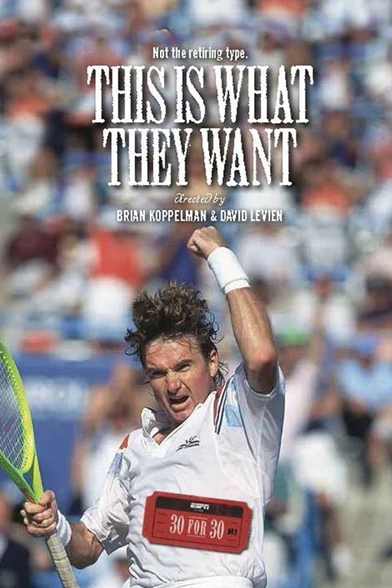
9/25:
Tennis was popular back then because it had stars.
Among them were John McEnroe, Jimmy Connors, Björn Borg, Andre Agassi, and Pete Sampras. I saw Jimmy Connors
play, and what set him apart from others was his passion for the game. That's why I was a fan of his style.
I gave up watching tennis not long after Jimmy Connors retired. It became a boring game of stiffs except Andre
Agassi did revive the game for a bit while. Believe me, John McEnroe was the most hated player of the era, but
I never saw that way for Jimmy Connors.
The documentary of the '91 US Open run is excellent. I saw some of the matches back then. What Jimmy Connors
did that year remains among the best of professional tennis. And poor Aaron, he seems like a nice kid. I
was surprised to hear that they never remained in contact afterwards.
The deduction of two points in my rating is due to the outsiders. Did they really watch these matches? I
don't think so. Instead, it's a lot of silly purple prose. The interviews should've been confined to those
who were actually there or saw the events unfold.
All in all, This Is What They Want is a time capsule for anyone who has never seen Jimmy Connors play.
Thursday's Children (1954)
Rate:
5
Viewed:
5/19

5/19:
Before making his name in This Sporting Life, Lindsay Anderson, along with Guy Brenton,
directed an Academy Award-winning documentary short called Thursday's Children.
It's a twenty-minute look of deaf children learning how to speak and speechread at The Royal School for the Deaf in Margate,
Kent, England which permanently closed in 2015 after more than 220 years in service. As a bonus, the whole thing is
narrated by Richard Burton.
I'm sure the subject was something new for many viewers in 1954, but today, it's dated and plodding. There's too much dead
time, and Richard Burton should've supplied more information about the background of the deaf children such as cause of
their deafness, age of identification, length of time in the gap between identification and education, other existing
disabilities, language issues, parental involvement, etc.
The educational methods of that time no longer apply, and hearing aids and cochlear implants have become a large
part of auditory-oral deaf education. Richard Burton mentions one in three deaf children ever learn real speech
(by the way, what exactly does that mean? Like hearing people's speech or the kind of speech that's at least intelligible?),
but I think it's much lower, more like 10% to 20%, especially among the profoundly deaf children.
All in all, Thursday's Children is a nice time capsule of oral education for deaf English children during the 50's.
The Times of Harvey Milk (1984)
Rate:
8
Viewed:
4/22

4/22:
The name Harvey Milk wasn't familiar to me until recently despite having lived through the 80's, so I thought of
checking out The Times of Harvey Milk to catch up.
One thing is for sure: the documentary does an excellent job of explaining Harvey Milk's political stances. There was
one impactful scene when an Asian couple was stopped and the guy wanted to explain what's going on. Almost
all documentaries touching on politics never do that, having always been about garnering support and winning elections.
Whether or not Harvey Milk was gay is irrelevant to me. If he represented his constituents exactly how they want to be,
then that's the ball game. On the other hand, it's a tragedy that he and San Francisco's mayor George Moscone
were assassinated by a fellow politician on November 27, 1978. Even worse is the fact that Dan White was found guilty of
"manslaughter" and served only five years. Only a clean-cut, all-American white man would have it so good. He thankfully
killed himself in 1985.
If there's anything I'm disappointed with, it still doesn't answer the question: why did
Dan White do it? What an insensible thing to do. Then again, listening to him, he was full of contradictions. There's
also the lack of analysis in hindsight. The other is not presenting enough substance or background info
in regard to Harvey Milk. In reality, he only had the elected job for eleven months before the fateful day. If you
look up the biography of Harvey Milk, it's clear the documentary is missing a lot of stuff. There are several instances
of what the interviewees were saying that didn't make sense.
Playing the "what if?" game, I wonder how Harvey Milk would've handled the AIDS crisis had he lived. The most controversial
topic during that time was the operation of bathhouses. Would he have voted to keep them closed? In my opinion, I say he'll
do it. By the way, it's the first time I saw Bill Kraus in the flesh, having read
And the Band Played On by Randy Shilts. A central figure of the book, Bill played a big part in San Francisco
politics during the late 70's and the early 80's. Diagnosed in 1984, he died two years afterwards from complications of AIDS.
By the way, here's an interesting tidbit: Vincent Bugliosi, the prosecutor of Charles Manson and his Family, was asked
by Dan White's friends from the San Francisco police department to defend him, but he refused to, not wanting this on
his conscience. He left the Los Angeles County District Attorney's Office in '72, switching to the other
side. Cases which involved the truly innocent who were accused of serious crimes only interested him.
All in all, The Times of Harvey Milk is an excellent historical piece of work but can use more substance.
Trekkies (1997)
Rate:
8
Viewed:
6/14
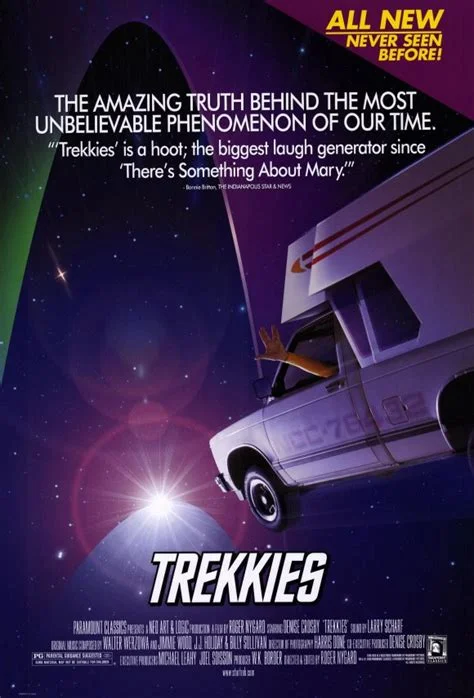
6/14:
Initially, I planned to laugh a lot while watching Trekkies, but surprisingly, it turned out to be good.
If there's anything positive, I now have respect for the Star Trek fans although I find a couple in the documentary
too odd for my liking. The good news is I'll take the time to watch the original show in the future.
Some of the stories, especially Jimmy Doohan's suicide one, are interesting. What I didn't realize
is the tie-in with science back then because of the Sputnik Era. For me, living through the 80's and 90's, it was
Quantum Leap and MacGyver, so I understand and appreciate the sparkplug for creating interest in the
field of natural sciences, computers, and mathematics.
All in all, although it runs a bit long, Trekkies is enjoyable.
Tricked (2013)
Rate:
7
Viewed:
3/15
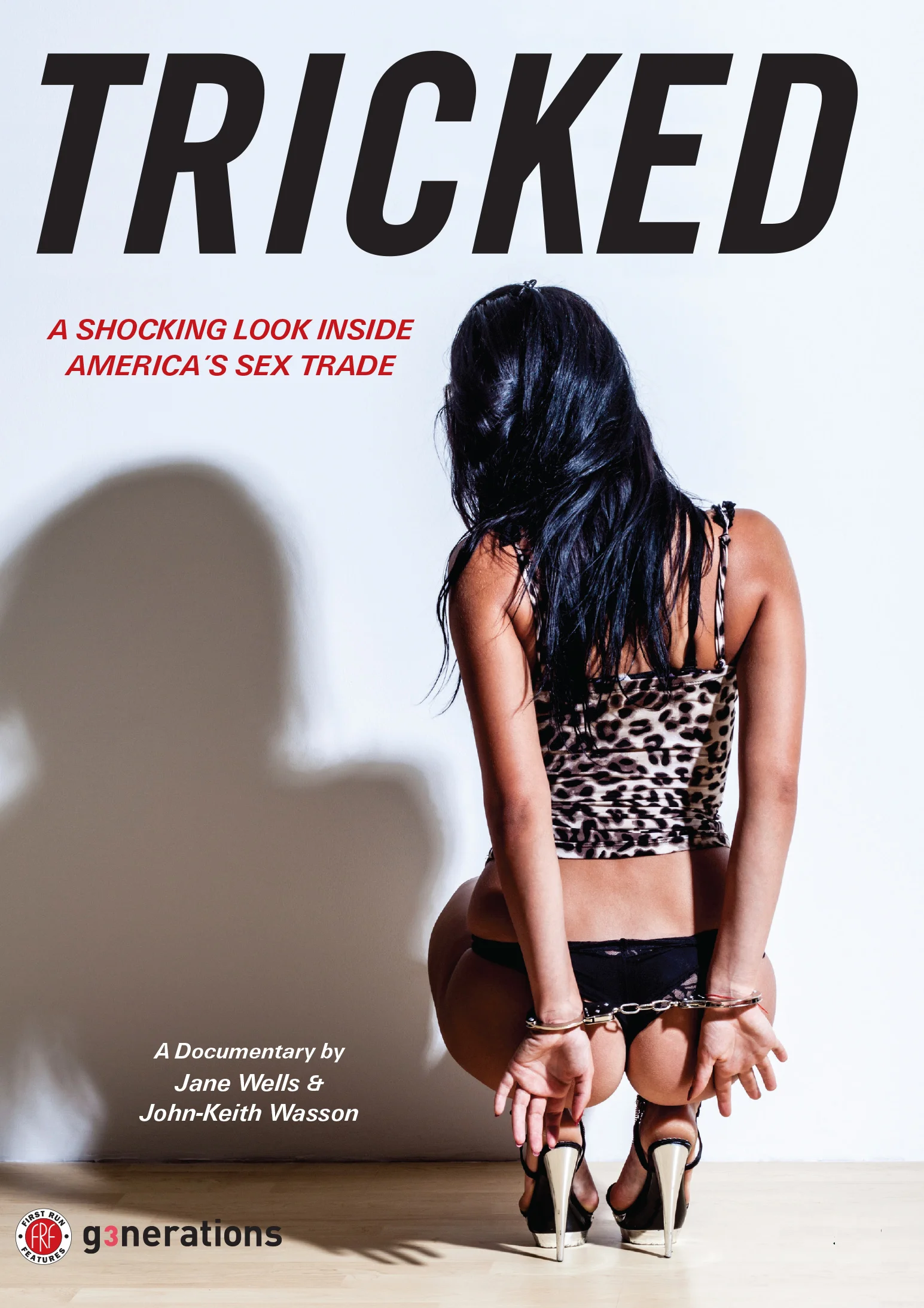
3/15:
I won't go so far as to call Tricked shocking; in fact, prostitution is a centuries-old trade that'll never
die out as long as people are alive.
As there are females portrayed in the film as victims, males are also victims. Children, no matter how young they
are, are also victims. Even the rich exploit the poor. There are stories of highly paid important people who take advantage
of prostitution for their pleasure.
Males usually rationalize the situation by saying, "You know, we are just having fun," "I am sure they like it,
too," "We aren't hurting anyone," or "It is a service," clearly have no idea what they're talking about.
The psychological impact that prostitution has on sex workers is far-reaching and damaging. They've lost their
souls to the pursuit of moneymaking and the false glamour of living the life. Most don't enjoy what they do and
start to develop lifelong severe problems after a lot of time and work have been put into it.
Obviously, one answer is to toughen up the laws on sex trafficking and pour more money into the budget to combat the problem.
But this calls for more taxes which is exactly the last thing people want to hear. Unless the country as a whole chooses
to fight the situation, not much will change.
All in all, Tricked is a worthwhile documentary but fails to cover other grounds such as early family problems,
drugs, incest, etc., to be more complete.
Triumph des Willens (1935)
Rate:
10
Viewed:
2/09

2/09:
No question, Triumph des Willens (Triumph of the Will) provides a rare insight into Nazi Germany at the
height of its nationalism.
It's a powerful documentary. The parades are overwhelming and neverending. So is the sea of swastika flags.
Thousands and thousands of Germans throw their arms up in the air just to salute one person and the leader of it all:
Adolf Hitler. Quite a spectacle is the Nazi architecture which were probably envisioned by Albert Speer.
It's also fascinating for numerous people associated with the Nationalist Socialist Workers Party. Some
scenes are brilliantly shot with one of them breathtaking which is the funeral of the Field Marshall Hindenberg.
Yet I find the whole display mindless. It's the same thing over and over. Sometimes, I've longed
for color, some kind of variation. Still, the documentary is an historical piece of work.
All in all, Leni Riefenstahl was the D.W. Griffith of documentary filmmakers, deserving her rightful place in the history of
cinema.
The Two Escobars (2010)
Rate:
9
Viewed:
4/13

4/13:
Well, finally...here's a good documentary from the 30 for 30 series: The Two Escobars.
It avoids the ESPN-esque flash and the shallow retelling of a story from limited perspectives that most of the
other similarly produced documentaries have fallen prey to. As a matter of fact, The Two Escobars is
the gold standard of how they should be measured against.
The documentary is good, informative, and thorough with many witnesses from both sides of the story to speak about
what soccer was like in Colombia during the 90's. Additionally, it's impressive to see a lot of reel footage shot during
that period of time. The structure of the storytelling is A plus, grabbing my attention from start to finish.
All in all, The Two Escobars puts many 30 for 30 documentaries to shame.
Untold: Johnny Football (2023)
Rate:
6
Viewed:
8/23
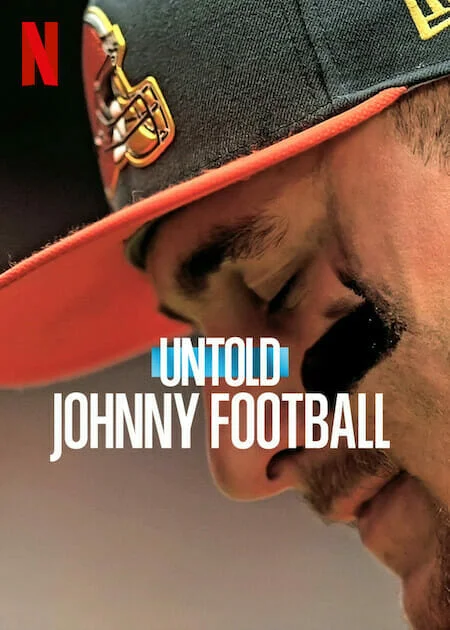
8/23:
Untold: Johnny Football.
What's there that's been untold? Yeah, Johnny Manziel drank, did drugs, and beat women. It's not exactly news.
Texas A&M University's association with him, regardless of the Heisman Trophy win, is an embarrassment.
The New England Patriots scouting report on Johnny Manziel revealed the following:
"From the vibe of online articles, father seems a little too involved and overstepping his boundaries. Vibe on
this guy keeps getting worse. Support staff members are sick of him and ready for him to go. Described as a
cocky, me-guy. Loves football, FBI [football intelligence] is high as well. Everything has been pretty
well-documented in online articles about the kid, but sources say he's a spoiled brat (grandfather gives him
allowance, father bought him luxury car). Comes from 'outlaw bloodlines,' mom moved the family to Kerrville to
get away from father's wild family. Father's family is said to be very shady people, always into something, they
are the root of Johnny's personality."
The only surprise (maybe not) is the Cleveland Browns drafting him in the first round. It shows how stupid the
organization is. Since 1999, they've had 34 different starting quarterbacks. The current starter is a sex predator.
It's unbelievable. A big part why Johnny Manziel did well at Texas A&M University is Mike Evans. He was actually
the best offensive player on the team. Currently, Mike Evans is going strong, recording nine straight seasons
of 1,000 plus receiving yards. He'll be in the NFL Hall of Fame one day.
Johnny Manziel was the biggest joke for a long time. It was like the hype got to be too much. Then, all of a
sudden, he disappeared from the news, and there's been nothing about him thenceforth. During this period, I was
thinking of the NFL's first superstar, Joe Namath, and how well he handled the limelight. The difference? Maturity.
And he was a damn good quarterback who lived up to the hype.
All in all, Johnny Manziel has exposed himself as a fraud in Untold: Johnny Football, but I knew that
already.
Val (2021)
Rate:
5
Viewed:
10/21
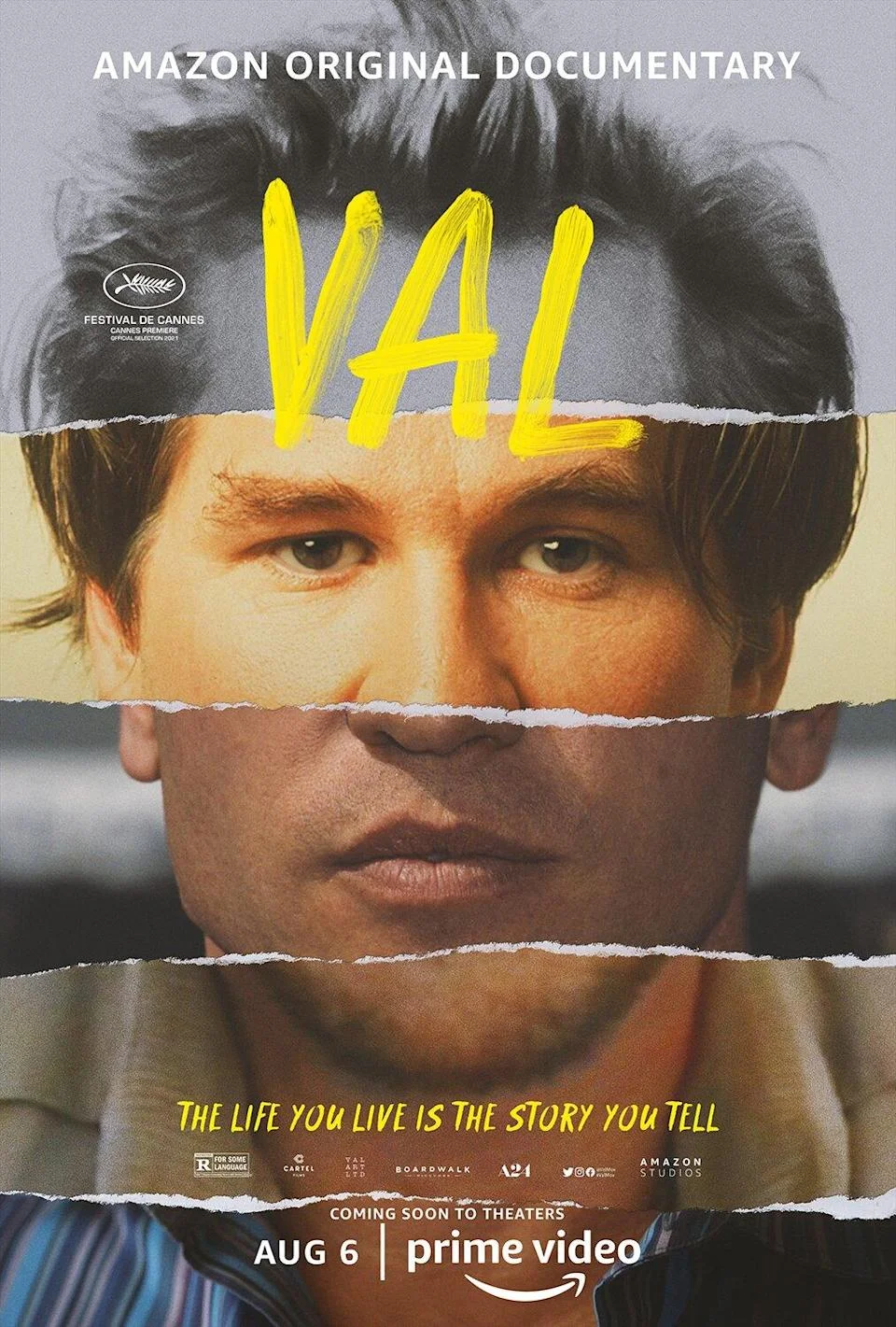
10/21:
What the heck happened to Val Kilmer?
He did a couple of terrible comedies during the 80's until Top Gun completely changed the
trajectory of his career. The first half of the 90's was the best run for Val Kilmer, but everything started to go south big
time when he appeared in The Island of Dr. Moreau. Things were never the same again.
I saw in the news some years ago that Val Kilmer might be dying and that he looked drastically different. At first, he
denied the rumors, but it was apparent he had throat cancer as confirmed by Michael Douglas who's also a survivor. Now, Val
Kilmer can't speak without pushing a button on his throat.
Lot of what I said is covered in Val. The broken-down actor touches several films for insights, but most of the time
is spent on his scrapbook that's culled from art work, home videos that can fill a warehouse, and travels. It's interesting at first,
but the documentary loses focus and has many stretches of meaningless segments which can be sometimes awkward to watch.
Val Kilmer mentions one brother who died at 15 but says nothing about the other surviving brother. So, what's that about? How
about his failed marriage to Joanne? Maybe he's really gay after all. Val Kilmer even admitted in the news
he hasn't had a girlfriend in over twenty years.
Despite some worthy footage, the whole thing is ultimately disappointing. I'll like to hear more about Val Kilmer's
work in depth for various films, most especially Thunderheart,
Tombstone, The Island of Dr. Moreau,
and The Ghost and the Darkness. Also, Val should've explained why he was so
famously difficult to work with.
All in all, I hate it when celebrities either release a book or a movie but barely talk about themselves or their body of work,
hence the need for an independent biographer who's brave enough to reveal everything.
Vernon, Florida (1981)
Rate:
2
Viewed:
4/15
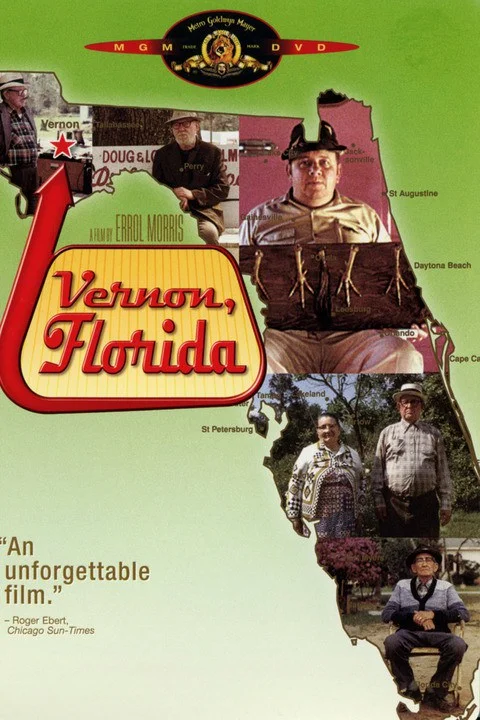
4/15:
A small, unheard-of Florida town called Vernon was once known as "Nub City" to insurance companies during the
50's and 60's.
The story is some town residents made a bundle of money through the loss of limbs by shooting themselves or
having an accident on purpose. Even one guy bought insurance with nearly thirty companies which earned him
over a million of dollars. Eventually, they wised up and stopped selling policies there, and the claims
slowly faded away. All of this sounded interesting to Errol Morris who set out there in an attempt to make a
documentary about it.
Unfortunately, some resident got wind of his plans and threatened to kill him. So, he rescinded the original idea
and decided to do a different kind of documentary. Hence, Vernon, Florida is about eccentrics who
narrate tales which are among the most boring drivel I've heard in my life. Some reviewers said they were funny
while others thought of them as quaint, but I've found them to be, quite frankly, frightening.
All in all, Vernon, Florida is a genuine waste of time.
Waiting for Superman (2010)
Rate:
3
Viewed:
4/23
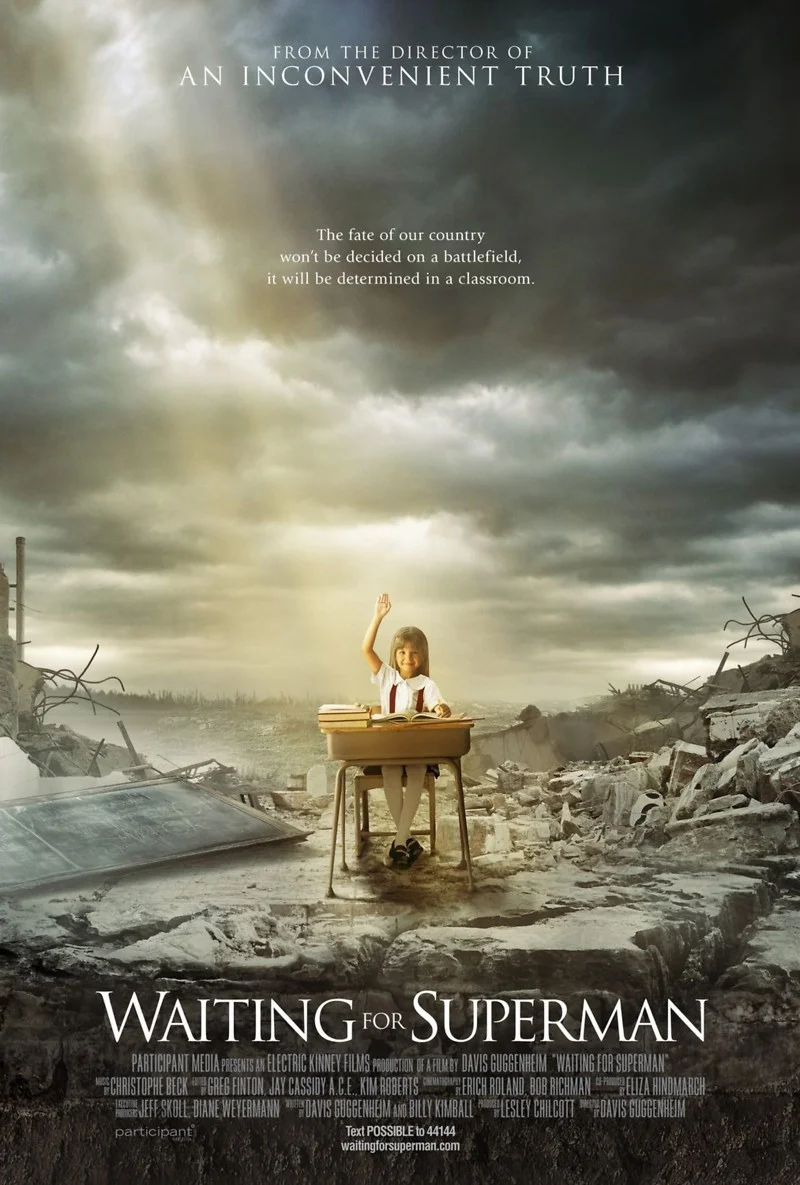
4/23:
I don't think Waiting for Superman had a thesis.
It touches on a lot of things about the education system and therefore offers a shaky solution or two. Most of the talk has
been either misleading or not quite correct while failing to bring up the white elephant in the room. The viewpoints
are also limited in scope.
Sure, the education system sucks today. It has sucked for a long time. A lot of things were working out well for
decades until ed schools and liberals entered the picture in a significant way. Since then, things have gone completely south.
One of the biggest changes is access to education for all people including minorities and people with disabilities. That's
the good news, but it has made educating them very challenging.
IQ doesn't lie. It's the best predictor of academic success as well as everything else in life. Liberals hate IQ because
it's so final; they want to believe there has to be more than that, so they waste billions of dollars on unproven
fads and fixes such as Head Start programs, student-centered learning, differentiated instruction, etc. Well, there's
no way of going around IQ.
IQ is largely the reason why some people become doctors, scientists, professors, and so on and work in high cognition
jobs. To get into the game, high IQ is the prerequisite, and the rest of the equation is hard work. The only way to prove this
theory is to test randomly selected students for IQ when they're young, hide the results, see how it goes, and then compare the
results when all has been said and done by the time they're past 30 years old. Remember...school buildings don't make great
students; it's the IQ, stupid.
Race also plays a factor not because it's racist but it's been historically proven. Asians make the best students with
whites coming in second. One standard deviation below whites on the bell curve are blacks with Latinos faring
a bit better. Time and time again, through various standardized tests, have shown this to be true.
One strong reason why this is so is: culture plays a role. Asians and Jews are smart because their culture centers
around academic success; it's important to them, and therefore, they read books and study mathematics consistently.
However, it's not true of blacks and Latinos; in general, they don't care. Okay, Finland...liberals always love to point it out.
If they can, why can't we? It's simple. Finland is a country of almost 100% white people.
The problems of education in the United States boil down to three things: IQ, behavior, and administrative support. Forget the
unions; they have no impact...really. When students misbehave, the learning atmosphere is disrupted; as a result, the teacher
has to pause instruction and spend time dealing with it. Throwing them out of class and then school altogether isn't an
option because the liberals will fight for their right to be educated. Hence, teachers are stuck with the bad apples, no matter
what. So, the misbehaving students understand this very well and therefore do what they want. Then, the parents get into the act
as well. Administrators leave all of them to the teachers and look the other way. That's why most of them got out of the
teaching business as quickly as possible; in fact, many have never taught in a classroom before and won't know what being
in the trenches means. Discipline went out of the window a long time ago, too.
Charter schools sounds like a fancy solution. But they're no better than public schools. Teachers hired there are
often paid substantially less and forced to work long hours, even on Saturdays. As a result, they either become
dissatisfied or burned out and leave within a year or two. Hence, these schools have a high turnover rate. Today,
and this applies to schools of all kind, most are desperate for teachers and can't find anyone; so, they resort to
substitutes and uncertified teachers to babysit classes. Hence, there's no real learning going on. Applicants for graduate
schools to become teachers are down big time as well because it's not an attractive profession anymore due to many reasons
including low pay and abusive working conditions.
The feminist movement during the 70's was a big factor, too, because it opened doors for females that were never
there before. Hence, the teaching profession lost the best and brightest to better paying jobs with none of the abusive
working conditions that exists in schools. All that's left are mediocre teachers and worse. No wonder why there's an
annual rise in sex crimes among them. Also, be careful when a private or charter school boasts of stellar academic
achievements; it's most likely either the majority of the student body was selectively collected, was almost all white, or
had no interfering disabilities. Otherwise, the worst performing students were told to stay home or were excluded from the tests.
Academic cheating isn't out of the question, either, as it happened during Michelle Rhee's tenure which ended with her
"resignation."
All in all, if the problems of the education system are talked about without addressing IQ, there goes the credibility.
Wal-Mart: The High Cost
of Low Price (2005)
Rate:
9
Viewed:
6/07
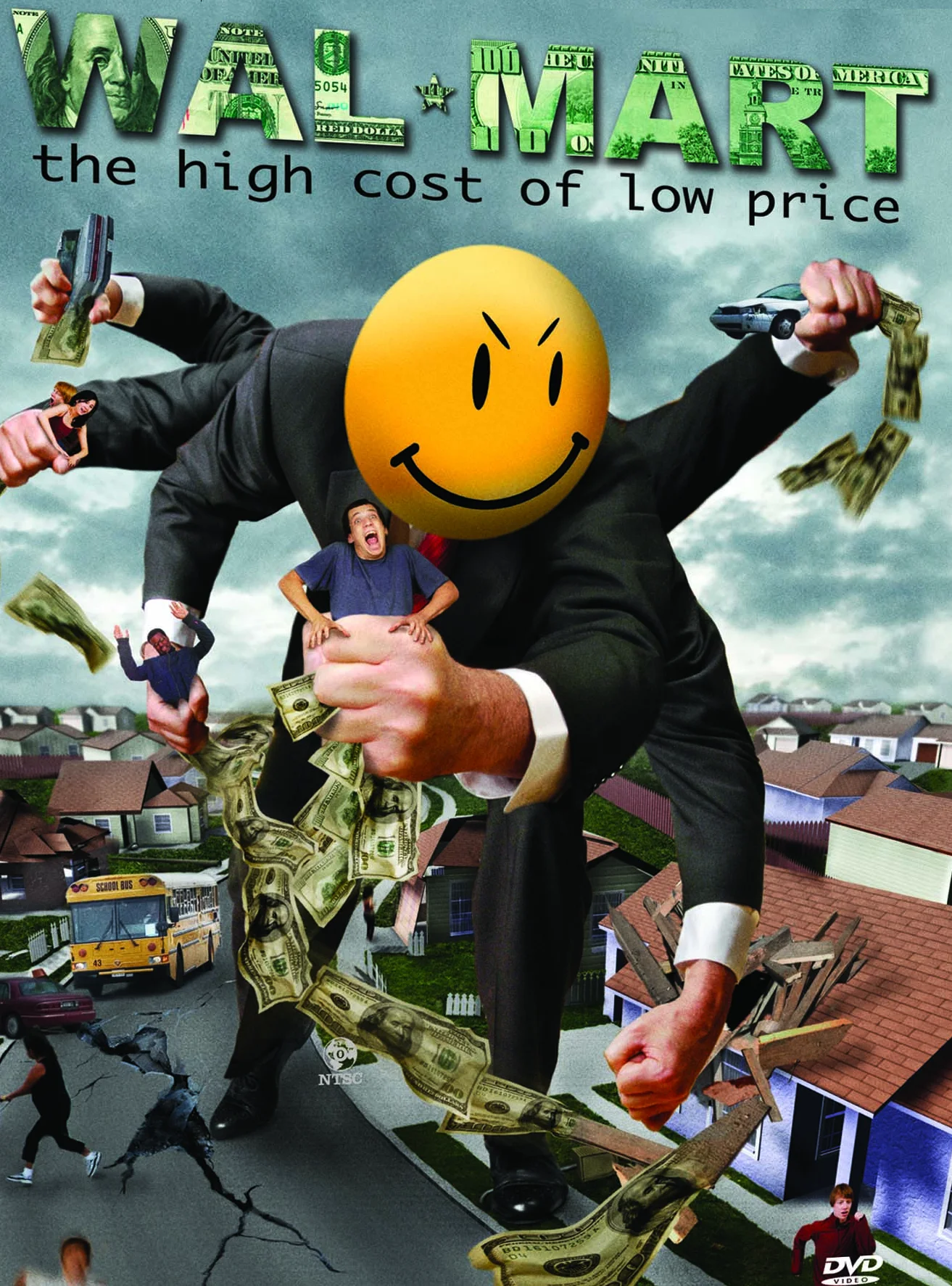
6/07:
Provocative, effective, and interesting are the adjectives to describe Wal-Mart: The High Cost of Low Price.
Small businesses have been going out of business en masse since the late 90's because they can't compete with the low prices
set by Wal-Mart. However, that's not the interesting part, but rather, it's this: do people care? Of course not.
Saving money has always been their number one priority.
A big flaw of the documentary is the lack of analysis for different stores such as Target, Home Depot, Best Buy,
etc. Are they any different from Wal-Mart? That's why it has been a mostly one-sided perspective.
I've known just about everything that's been said in Wal-Mart: The High Cost of Low Price because I used
to work there. So, I'm not surprised at the level of greed. If there's anything that's most bizarre about
the job, it's being asked a bunch of weird questions during the job interview process such as:
"What would you do if you stole a can of soda?"
"How did you feel when you smoked weed?"
"What would you do if you saw a co-worker stealing merchandise?"
Once I passed the screening test before being offered a job, my answers to several questions got flagged, and the assistant
manager wanted to do a follow-up by hearing my explanations to why I chose the particular answers. It's only because
I couldn't agree with any of the answers which were four in total and I went with the least evil.
Another weird part about working there is the indoctrination of why unions are bad. Of course, the film was trying to
convert me into a boycotter of Wal-Mart stores, but it's impossible. It's where the food is. If there's another supermarket
that sells the same food at low price, I'll gladly shop there. However, the quality of food, especially in produce and meat,
at Wal-Mart is mostly terrible, so I shell out more elsewhere. Some day, Wal-Mart will face the same fate like Sears by being
replaced by another competitor, and it's probably going to be Amazon which is just the result of supply and demand.
All in all, I will laugh if I ever see Wal-Mart: The High Cost of Low Price for sale at a Wal-Mart store.
The War Room (1993)
Rate:
3
Viewed:
5/21
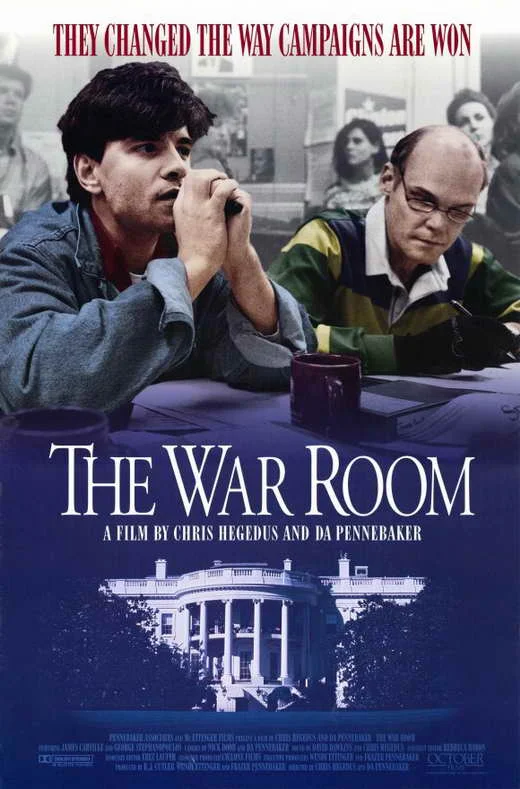
5/21:
The War Room is like Chisholm '72: Unbought & Unbossed: random political talk
about this and that with no specific explanation of the candidate's platform.
Bill Clinton won the 1992 election in a landslide: 370 to 168. Looking presidential,
he was an easy choice during the time because of his charisma. Never mind that Bill Clinton was a serial womanizer and that
he was impeached for it, the decade did turn out well which became one of the best of the 20th century.
George Bush was an out-of-touch racist elitist who lied constantly, was a wimp, and used ad hominem attacks
frequently because he had nothing else to work with. Finally, the straw that broke the camel's back was his infamous
six-letter promise: "Read my lips: no new taxes," and then...he just did it!
I give credit to Ross Perot for putting on a strong showing as an independent candidate, capturing 19% of the
popular vote, almost half of what Bush received, but none from the Electoral College. What helped Perot the most
is he talked about the issues, most notably the reduction of the national debt. Of course, people chose
to make fun of him based on how he looked. His biggest mistake was dropping out in July and then reentering the race in
October. That wasn't a presidential thing to do.
The War Room captures none of them well. Instead, it's mainly focused on James Carville and George
Stephanopoulos making small talk as they go through the election year. A lot of the content concerning the race
is missing. Both were unsuccessfully sued by Gennifer Flowers for defamation, but it turned out
her story was true after all. Interestingly, as George Bush attacked Bill Clinton's character, he also cheated on his
wife Barbara for many years with Jennifer Fitzgerald and others.
All in all, the most The War Room can offer is a glimpse of how young these people looked back then.
When We Were Kings (1996)
Rate:
10
Viewed:
7/21
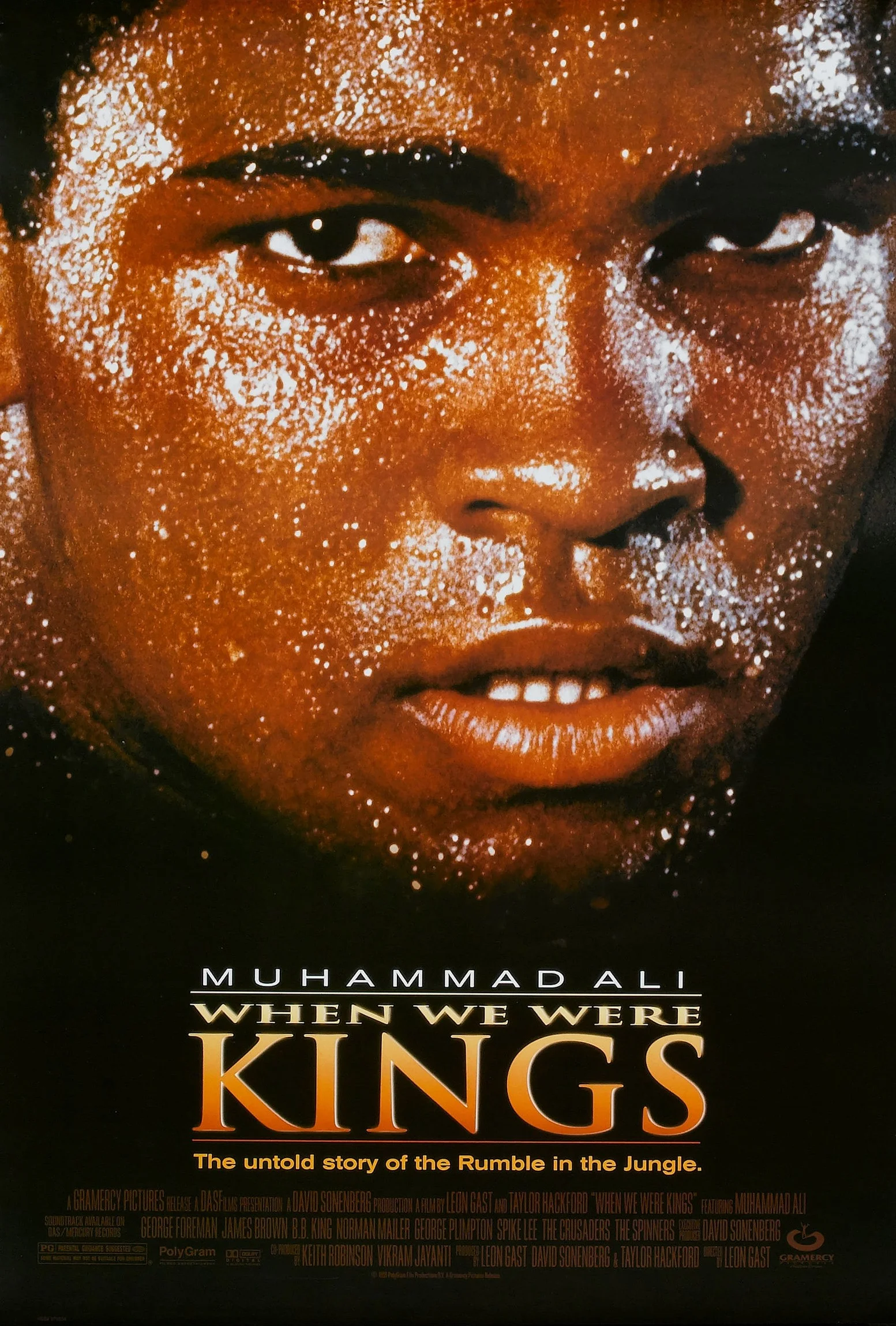
7/21:
I'm kind of curious: who is "we," and since when were they "kings"?
If it's in reference to the boxers, um...okay. If it's the Africans, then that's laughable. Anyway,
When We Were Kings relives the famous boxing match that took place in Congo on October 30, 1974:
Muhammad Ali versus George Foreman aka "The Rumble in the Jungle."
Over one billion people worldwide, which was 25% of the total population at that time, saw the fight which
began at 4 AM, local time, to accommodate the American audience. Using the "rope-a-dope" tactic, Ali was on the
ropes much of the time while Foreman hammered away until he got tired and was subsequently knocked out in the
8th round.
Why the match took place in Congo (it was called Zaire back then) is Don King promised $5 million to each
fighter, but the boxing association wouldn't let him stage it anywhere in the United States. And the rest is
history. Ali was a heavy underdog because he was worn out while Foreman was seven years younger who's much
stronger and fresher.
Well, it's a fascinating piece of documentary with rapid editing. Everybody explains clearly the significance of
the event. Then, the fight is broken down in terms of what's going on. Of course, Muhammad Ali was larger than
life, and I didn't realize George Foreman was intelligent for a boxer. Lots of music (which occurred a month
prior to the actual fight because George Foreman sustained a cut on his right eye that had to be healed first
before the fight could take place) are played with plenty of African culture in between.
All in all, if you missed "The Rumble in the Jungle," When We Were Kings will make up for it.
Where to Invade Next (2015)
Rate:
5
Viewed:
8/16
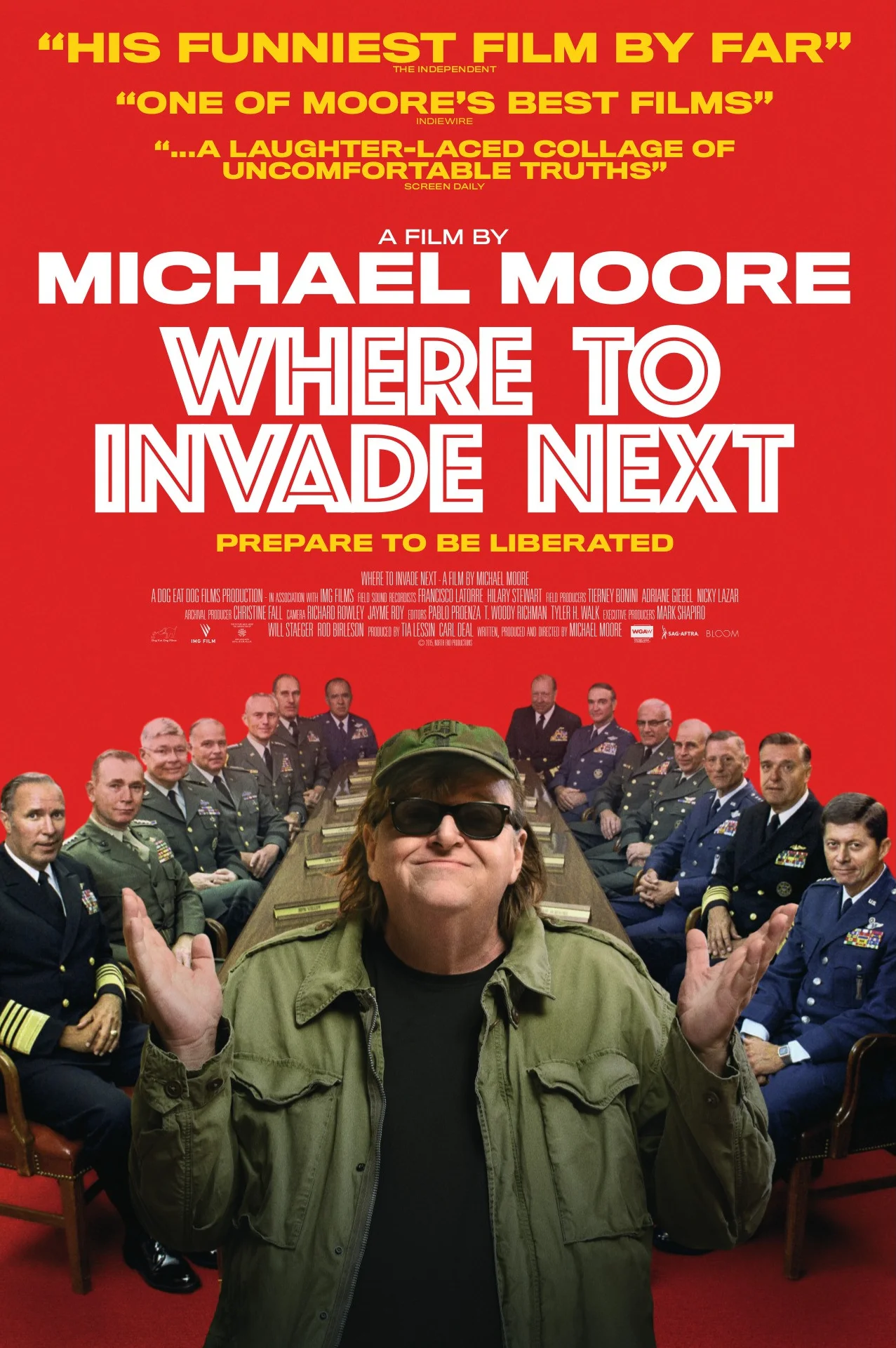
8/16:
Where to Invade Next is the worst documentary yet by Michael Moore.
Don't get me wrong. I like his stuff, and they're compelling, informative, and interesting. But this one, it's the
most cherry-picked piece, leaning heavily to the viewpoint of white people. All I saw is white, white, white, white...no
blacks, Latinos, or people with disabilities.
I'm familiar with the education system in Finland and the United States' international standing
for reading, science, and mathematics. There's so much myth surrounding around them.
The first problem is the population total and the demographics of both countries. Finland inhabits 5.5 million people which
ranks in the middle of the pack among states in the U.S., a country of 319 million people which includes 39 million blacks
and 55 million Latinos. Finland? Although no official data exists, the number of black people is reportedly to be around
20,000 with almost no Latinos.
Finland has a national curriculum which includes specific objectives for each grade level that all schools must follow.
But the U.S. doesn't have it, just something vague that's individually created by states. Most classes at the same grade
level are different from each other. So, whatever the child is learning in one class of a particular subject won't match
what his brother is learning in another class with a different teacher.
Why the Finnish can succeed under the model it currently has in place is due to homogeneity of the student population.
They all share the same set of values, beliefs, culture, and language, and the students are pretty much white. This makes
education easy to accomplish. All sorts of behavior problems are literally vanished. The same can be said for
most European countries which are inhabitated by 743 million people including 7 million Blacks that's roughly 1%
of the total population. The United States doesn't have the same luxury; it has one of the most heterogeneous population
in the world.
The implication is the teachers are stuck with blacks and Latinos and they're difficult to teach due to
their language, behavior, intelligence, and cultural issues. Yet public schools are legally required to provide education
to all students, regardless of their color and behavior issues.
The fact that the Finnish teachers come from the top 10% and have a master's degree is irrelevant. Working with
white normal students will make any teacher's job super easy. But place these Finnish teachers in the U.S.'s Title I urban
schools, many will quit within one year and be desperate enough to work in schools that reflect the color of
their skin and their set of beliefs, values, and culture.
Although IQ is the most direct cause, poverty is the number one factor of poor academic achievement among black and
Latino students. They're just not cut out for learning. Approximately 20% of the students live in poverty. Finland?
It's just scanty 3%. Yet when you take away the international test scores of students living in poverty, the United States
is actually, on average, far away the best in the world for reading and math. Henceforth, it's true the U.S. has the best
schools, especially in postsecondary education, in the world, and many students from foreign countries flock to them.
However, not everything is rosy in Europe. Xenophobia, racism, racial discrimination, and related intolerance remain huge
problems in European countries. Compared to them, the United States doesn't have a racism issue; a lot of it is
largely exaggerated by the media which likes to exploit outliers that are never reported within the context.
Italy's unemployment rate has been around 11% to 12% for years, and it's steadily increasing. The United States?
It's 4.9% and decreasing. Free universal medicare and college tuition in Europe? They're paid for by exorbitantly
high tax. Sure, it costs money to receive them in the U.S., yet the Americans enjoy one of the lowest tax rates among
developed countries in the world. Most European countries take advantage of it by not spending money on military defense
that's provided for free by the United States around the world. That's why it's been relatively safe compared to
the others.
Americans won't take kindly to the idea of a murderer or a rapist going unpunished because
it creates the idea of him getting away with the crime. That's why the country locks up so many people which meets the
definition of punishment: doing time the hard way. Yet what people do not realize the U.S. is a country of second
chances. Many get them all the time which goes back to the beginning of elementary school, and once they're adult
enough to face the music, it's the final time before they're sent to prisons.
The United States is among the best countries to live in the world. It has one constitution, compared to France
which had seventeen, that has been in existence for 226 years. There have been only 27 amendments.
Social advancement is based mostly on meritocracy, not nepotism, lordships, or titles. The color of the skin
has nothing to do with it. People work hard to get what they want. The rest suffer because they don't want to put
in the effort. It's simple as that.
If Michael Moore thinks this country is so bad, why doesn't he pull up examples of countries from other continents such as
North America, South America, Asia, Africa, and Australia? How about North Korea, Russia, Iran, Iraq, Afghanistan, El
Salvador, Haiti, South Africa, etc.? Who the hell wants to live in these shitholes given their deplorable conditions?
By the way, if everything is so good in Europe, why doesn't Michael Moore move there? Oh, right. He's a millionaire (net worth: $50
million), and he doesn't want to pay the high tax rate. What a hypocrite. He's just a capitalist trying to sell socialism.
All in all, Where to Invade Next is an embarrassing propaganda that's insulting to my intelligence.
Where's My Roy Cohn? (2019)
Rate:
7
Viewed:
4/20

4/20:
To understand Donald Trump is to begin with Roy Cohn.
Honestly, I didn't know anything about him until I recently saw the fantastic biopic
Citizen Cohn starring James Woods. It shows you how much this guy has
fallen out of the public's consciousness.
Describing him, Victor A. Kovner said, "You knew when you were in Cohn's presence you were in the presence of
pure evil." No matter how much the evidence was stacked up against Roy Cohn, his strategy was "to deny
everything, never apologize, never back down, and attack your accusers with maximum force." Does it sound
familiar right now?
Where's My Roy Cohn? does okay by recounting his life but omits a lot of details. Hence, it plays out
like a Trump propaganda piece. I think the filmmakers were either too young or immature to handle such details.
Even Roy Cohn himself would've insisted on them doing a better job. Yes, I was left thinking, "Why didn't anyone
put him away for life?" Eventually, as a consolation, AIDS claimed Roy Cohn.
All in all, minus the Trump references, Citizen Cohn covered more aspects
of Roy Cohn's life, painting him as an evil man, compared to Where's My Roy Cohn?
Woodstock (1970)
Rate:
10
Viewed:
2/25
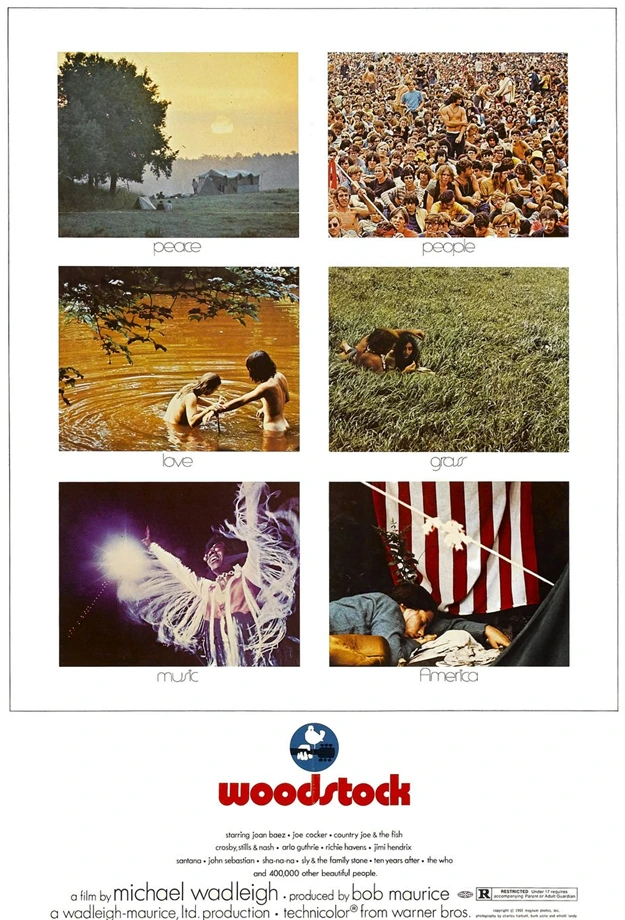
2/25:
If you missed Woodstock in Bethel, New York, from August 15 to 18, 1969, because you weren't there at
the time or hadn't been born yet, there exists a documentary called Woodstock to help you catch up.
There are a lot of versions, and this review is based on the 25th Anniversary Director's Cut that came
out in 1994. The latest is the 40th Anniversary Edition which is longer by including more performances.
While the opening and the closing acts remain the same, all performances in between are out of order. Some of the
best are Richie Havens, Joe Cocker and the Grease Band, Santana, and Crosby, Stills & Nash. The worst is
John Sebastian who was obviously wasted, but to be fair, he, a member of the audience, helped out by filling in
an empty slot. Rivaling him is Ten Years After. It's simply bad music.
Some viewers may be wondering, "Where's Grateful Dead? Creedence Clearwater Revival, the top band at the time
and the first to be signed for Woodstock? Why didn't The Doors show up? How about the Beatles? What's with Janis
Joplin singing poorly?" First of all, there were a lot of delays due to traffic. Therefore, the bands got forced
to wait for their turn. Second, by the time some of them played, it was like 3 o'clock in the morning. Third, let's
keep in mind that thirty-two acts showed up to fill in three days of music. Fourth, if you were unsure of
what Sha Na Na, a 50's-like group, was doing there, some of the scheduled bands were either late or
refused to play during the rain, so it became available.
When Janis Joplin arrived at Woodstock for the first time, she couldn't believe the size of the crowd, which was
estimated 400,000 strong compared to the organizers' initial expectation of 50,000, and grew nervous. To calm down,
she drank a lot of alcohol all day and shot herself up with heroin before getting called at 2:00 AM and played for
an hour. A couple of turns later, The Who started to play which was 5 AM, hence the rising sun.
As for the Grateful Dead, they performed in the middle of heavy rain, and there were electrical shocks
on their instruments. Then, their amps blew out. Hence, the band didn't perform well and later requested not to be
included in the documentary. Ditto for Creedence Clearwater Revival who came out right after them. They
played to a very low-energy crowd who had already fallen asleep, especially due to the 40-minute song by the
Grateful Dead, and it was after midnight.
The Doors was still dealing with the fallout of the notorious Miami incident which occurred in March and was
on the verge of breaking up. Jim Morrison wasn't keen about playing outdoor concerts and thought he would
be assassinated. Ray Manzarek also said, "We never played at Woodstock because we were stupid and turned it down.
We thought it would be a second-class repeat of Monterey Pop Festival." The Beatles was willing to play only
if a slot could be granted to Yoko Ono's Plastic Ono Band, but the organizers said no.
There were between fourteen and eighteen video cameras at Woodstock, resulting in fifty miles of film that
led to the split-screen technique. The whole thing was a nightmare to edit. Some of the songs just went on and
on, and the sound was hard to sync. That's why Thelma Schoonmaker, helped by a team of six editors,
was given an Academy Award nomination which is a rarity for a documentary film.
All in all, the organizers should be thankful for Woodstock because it literally made their money
back and more.